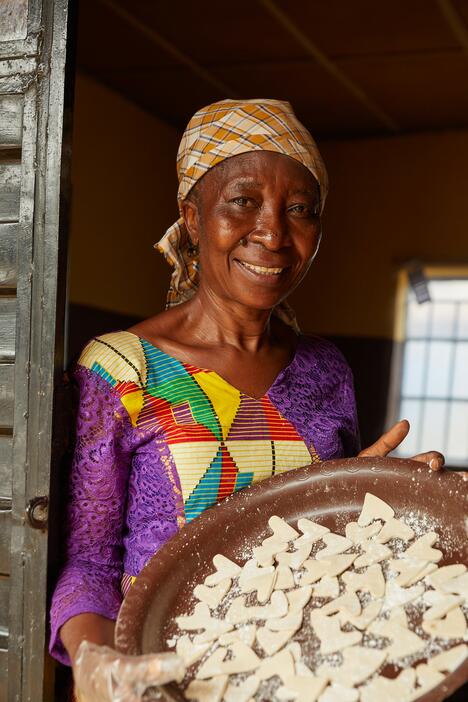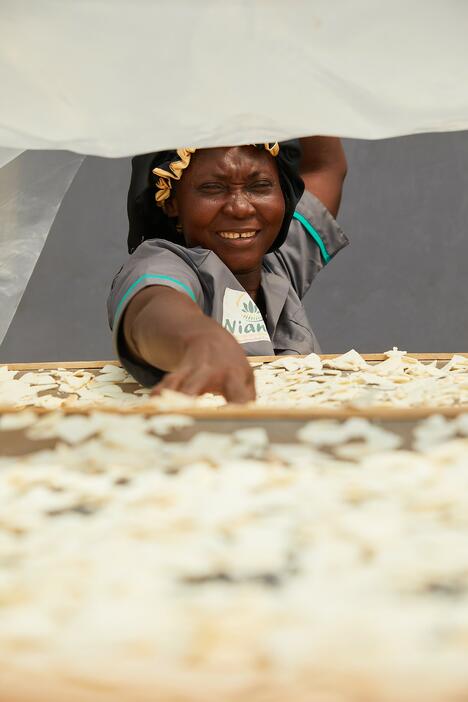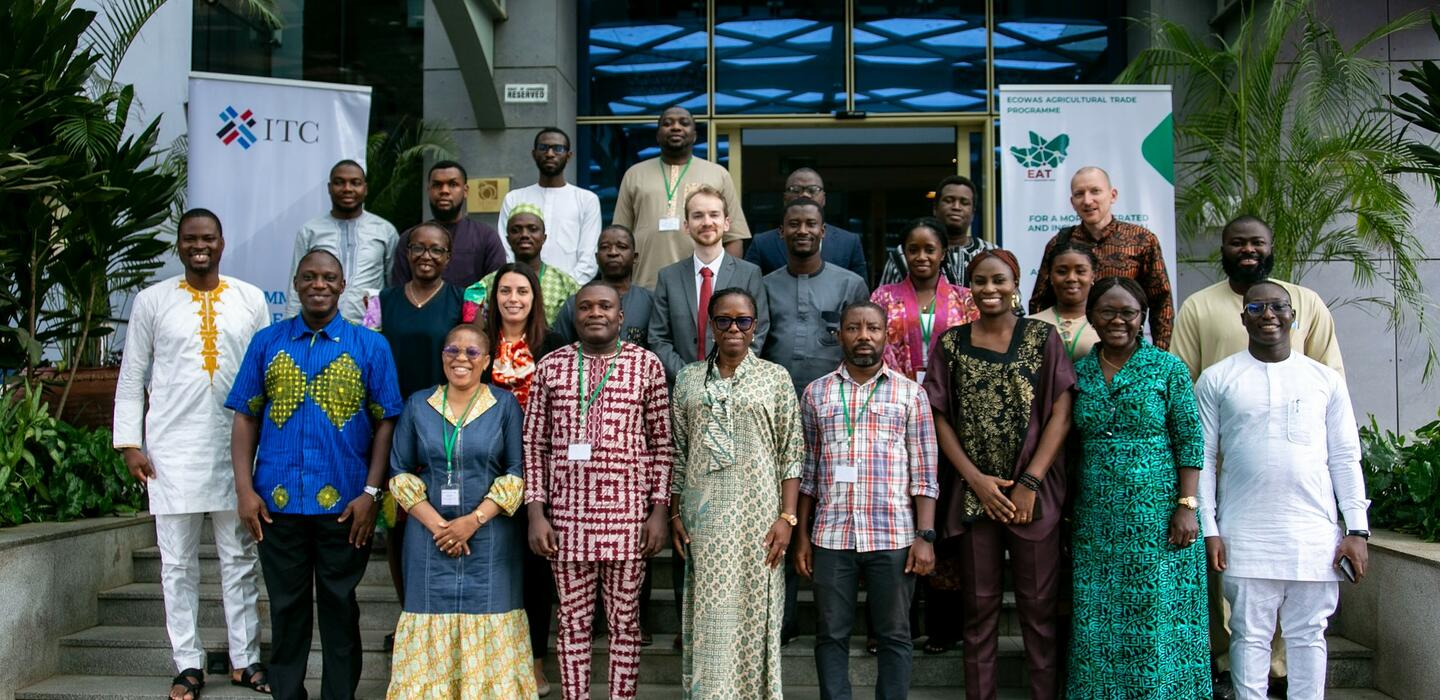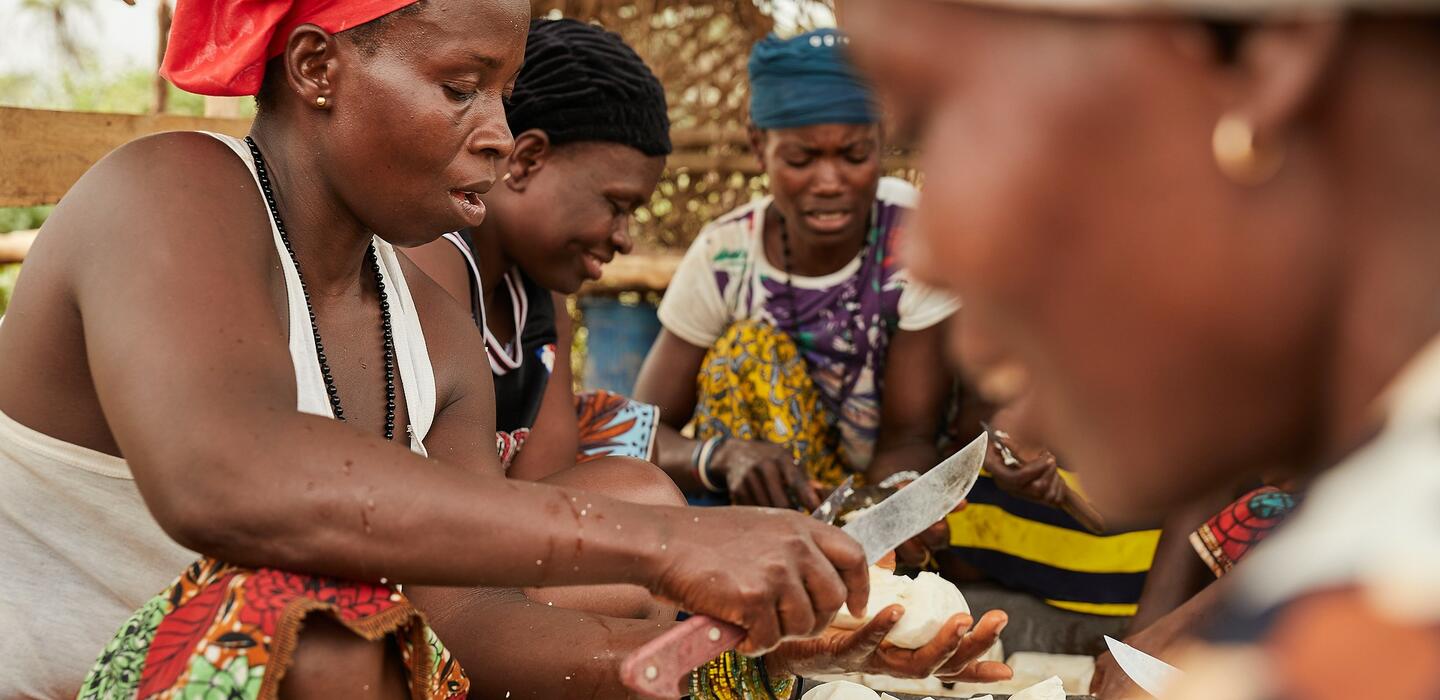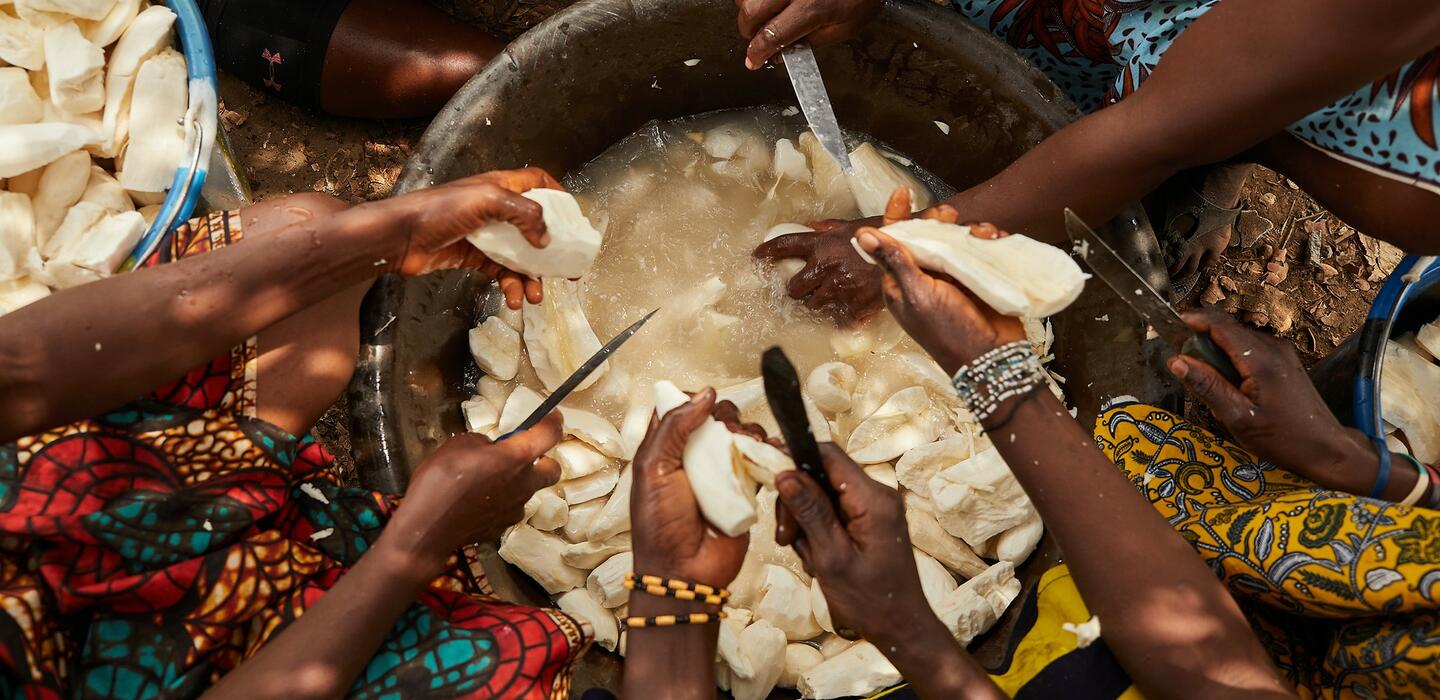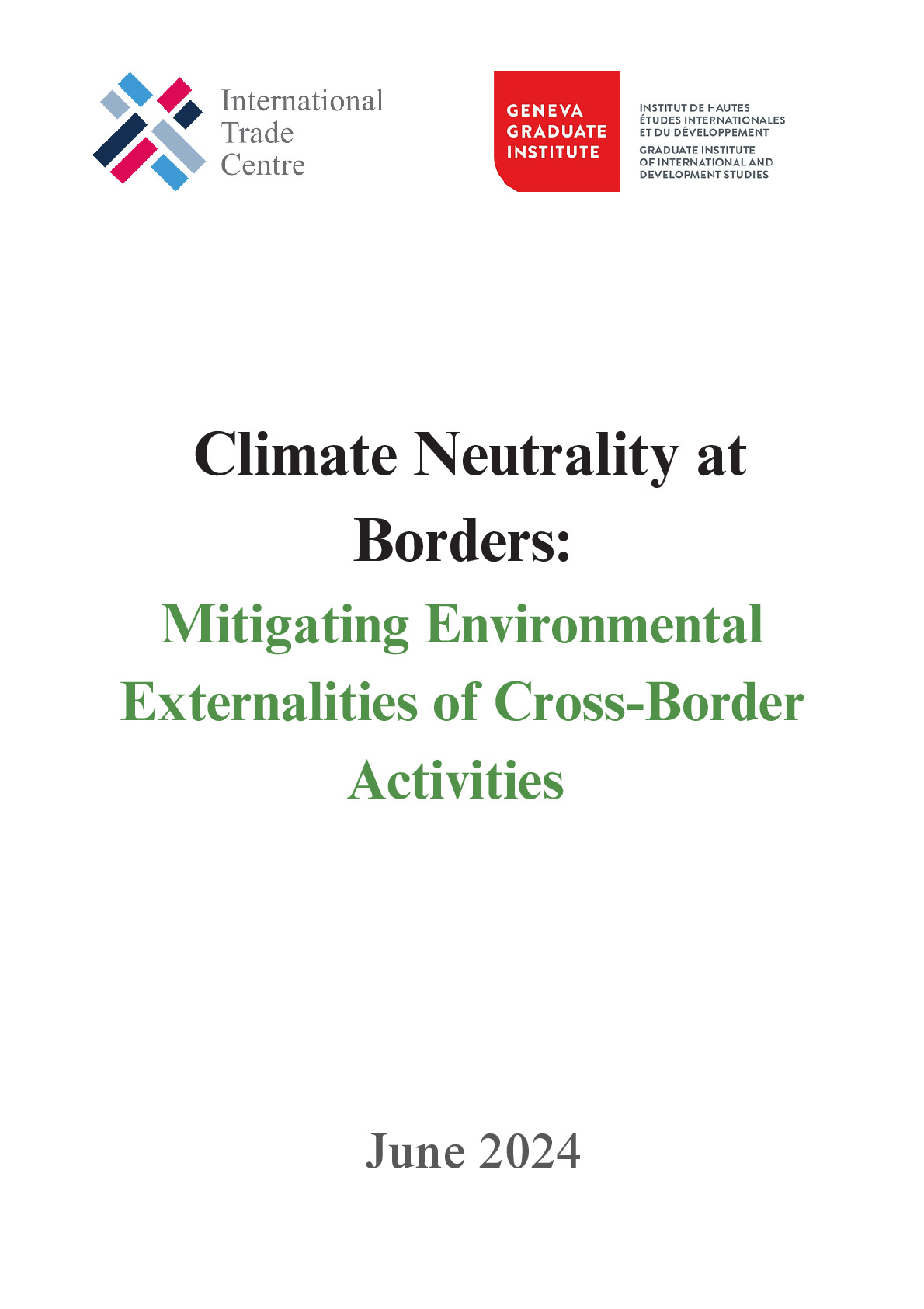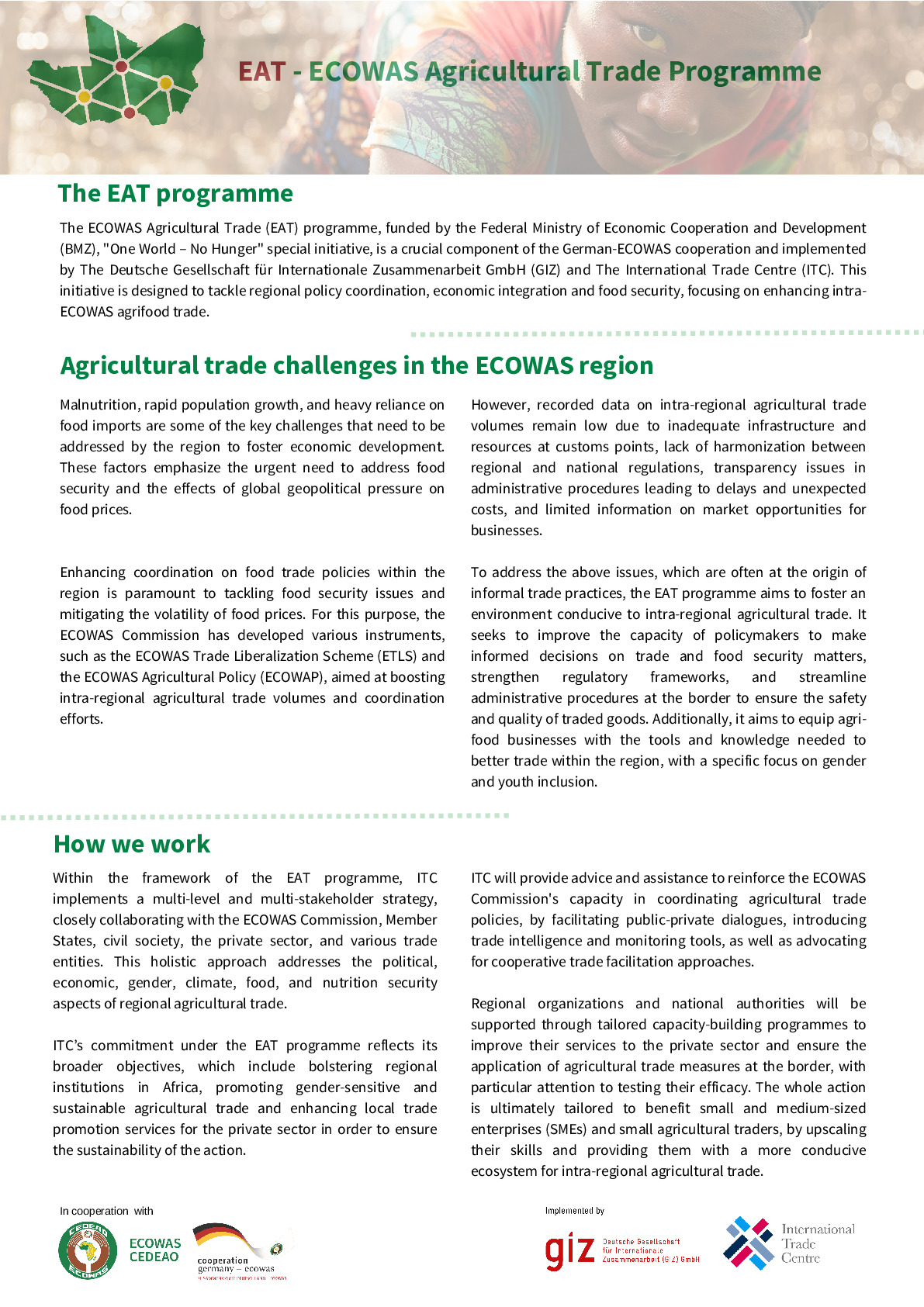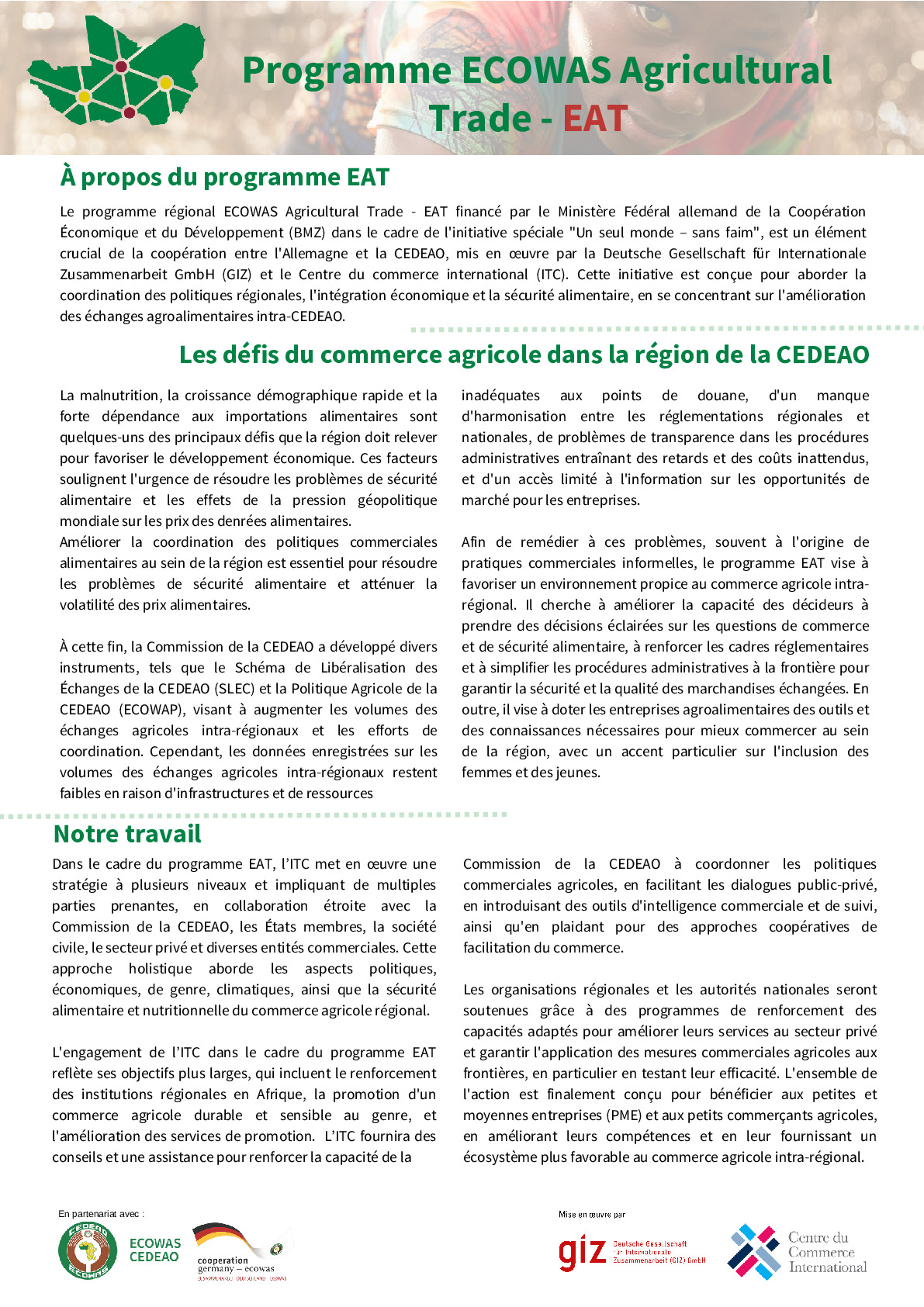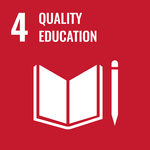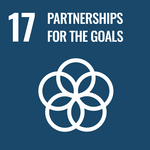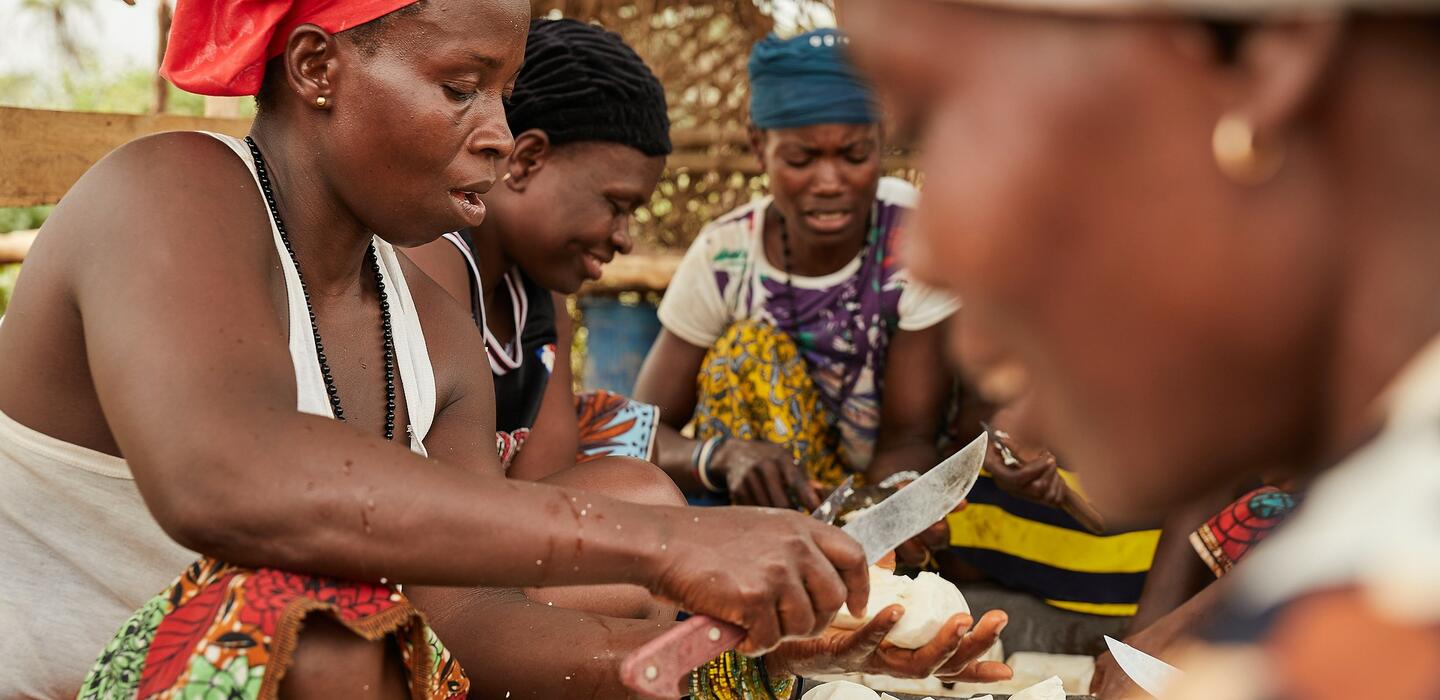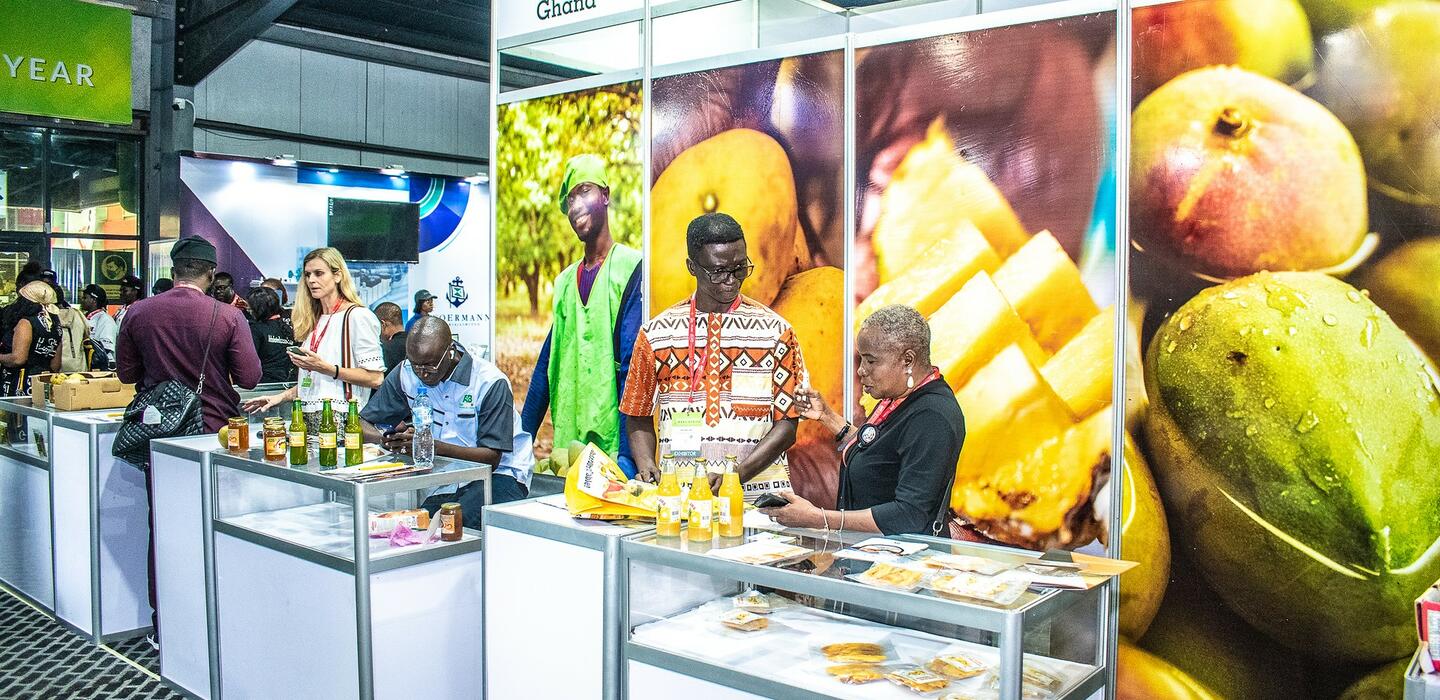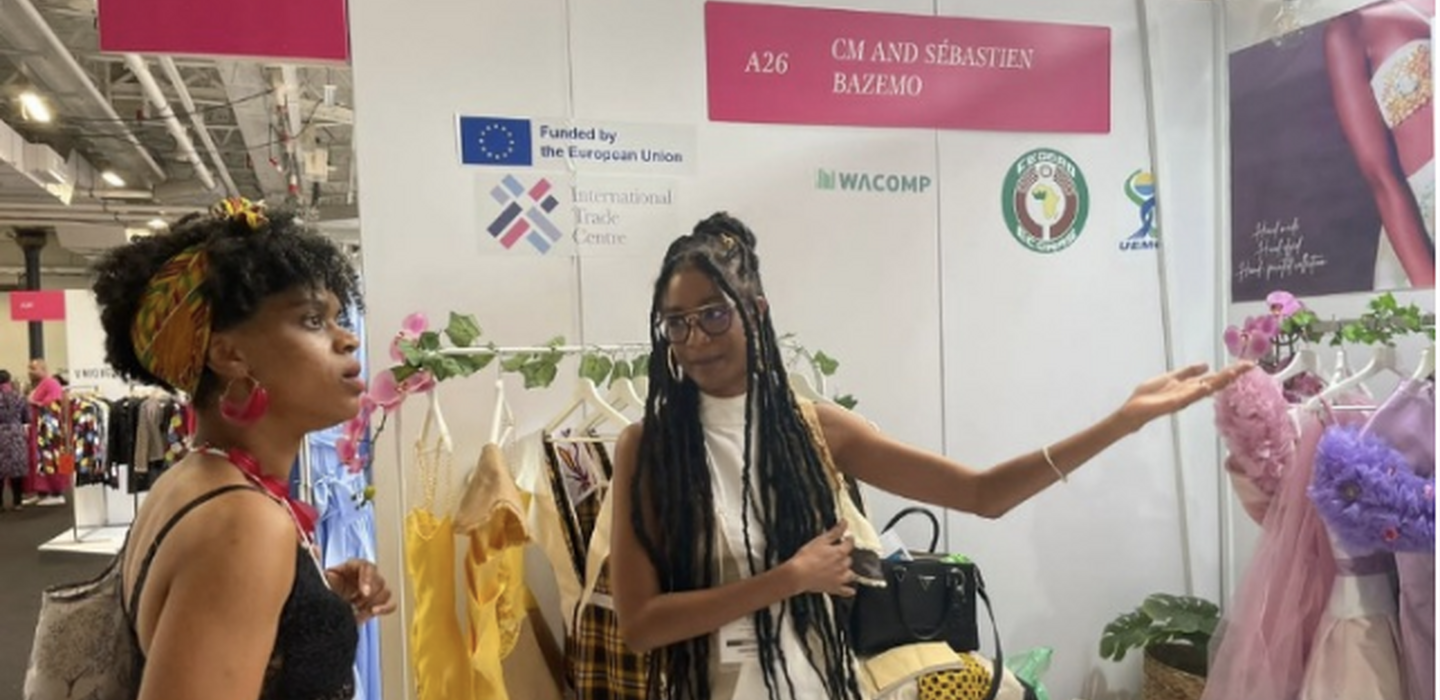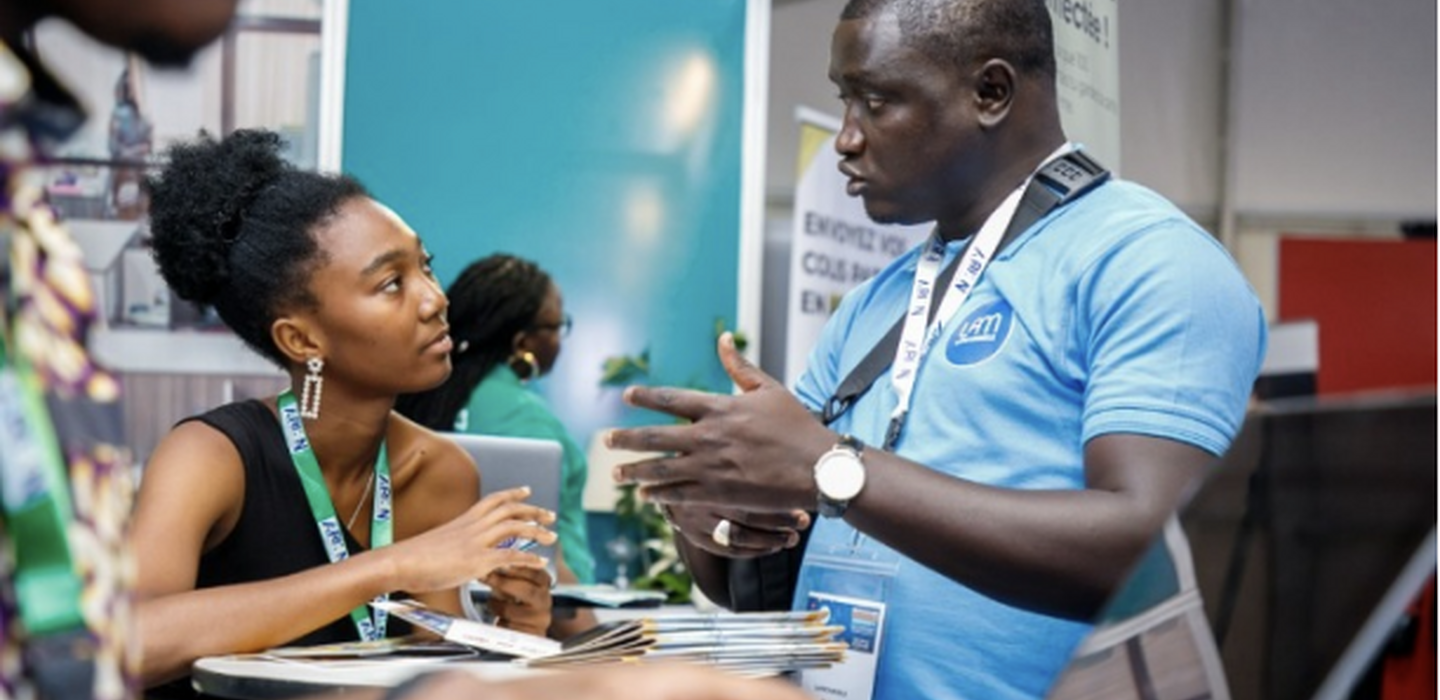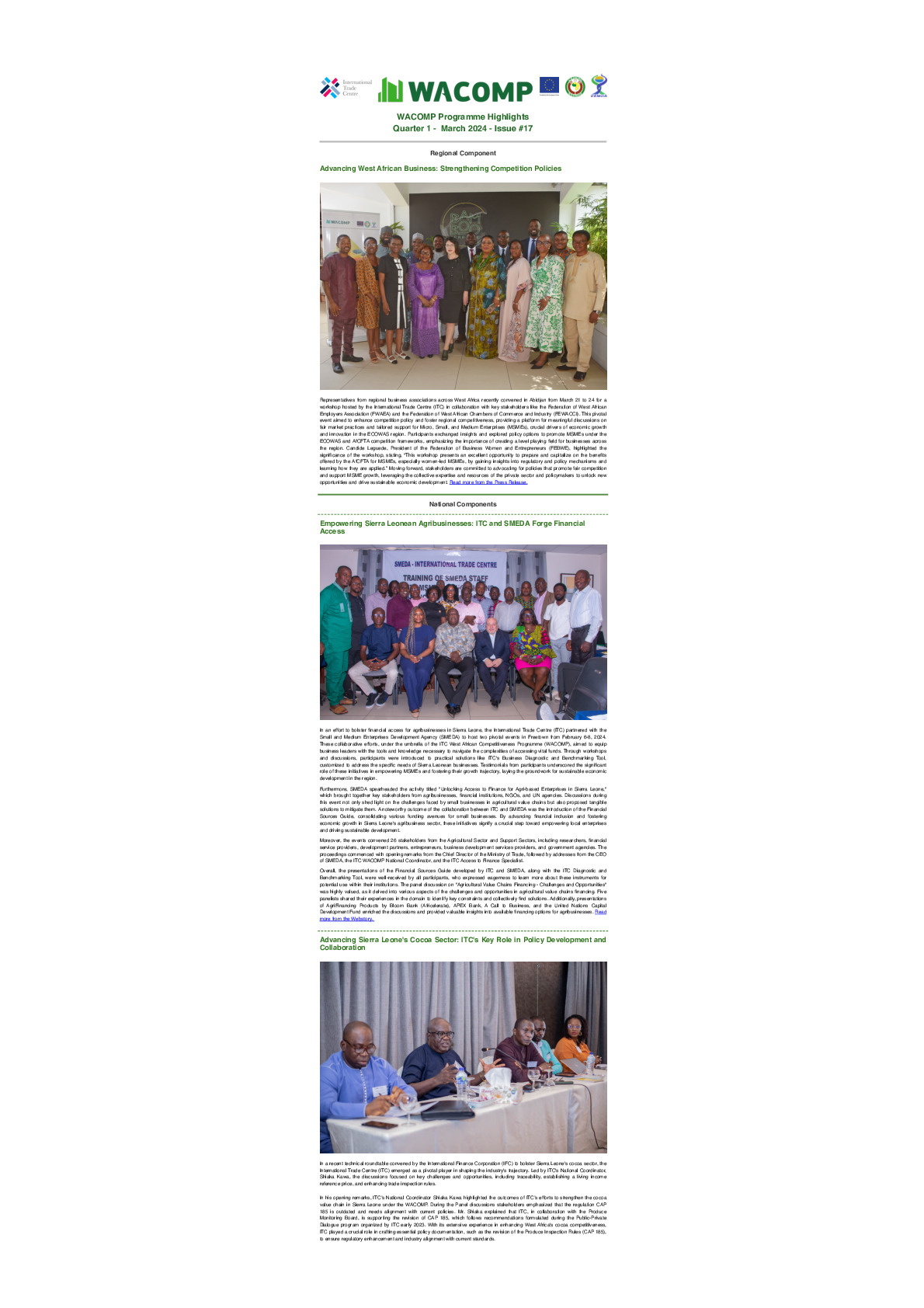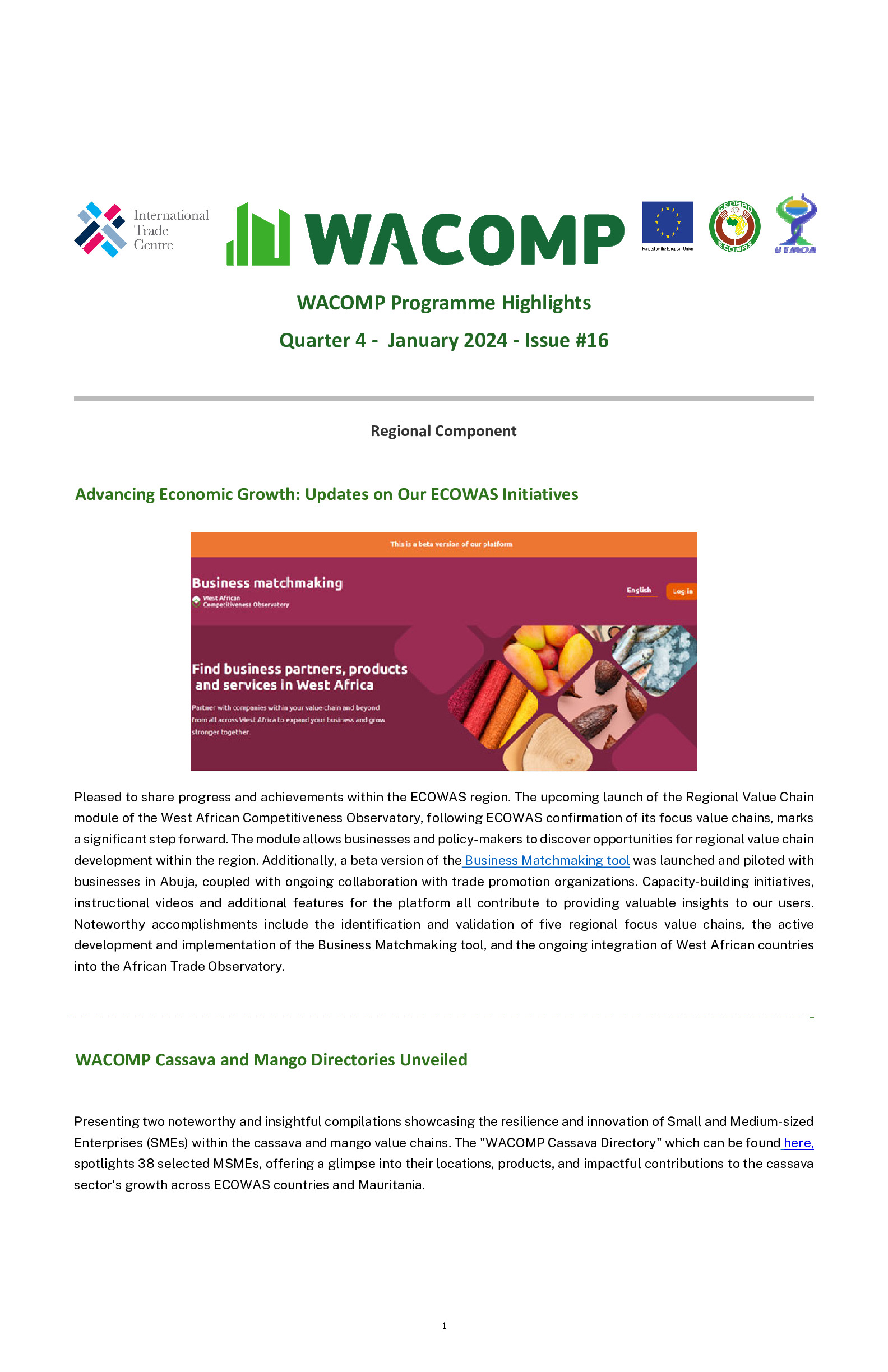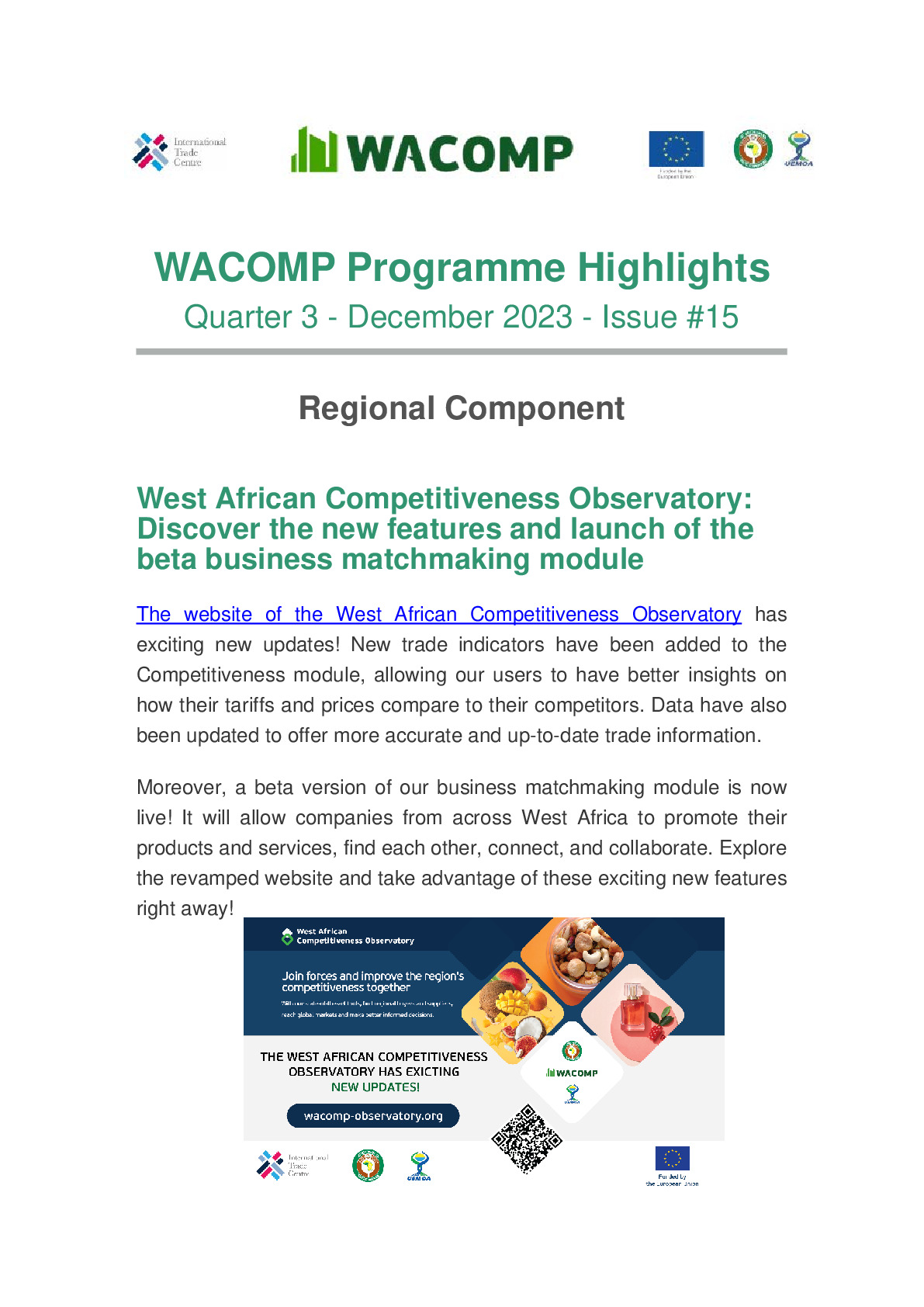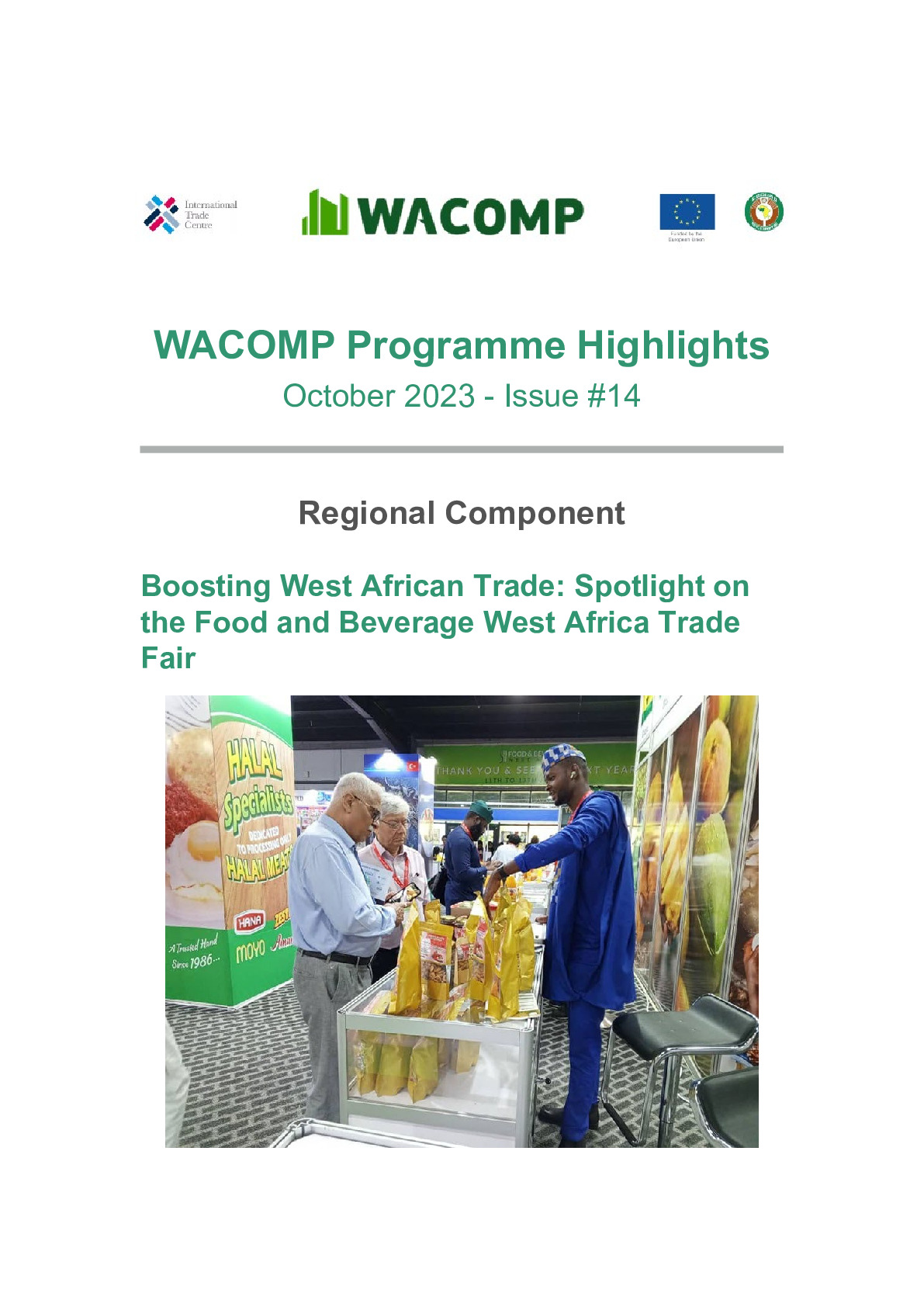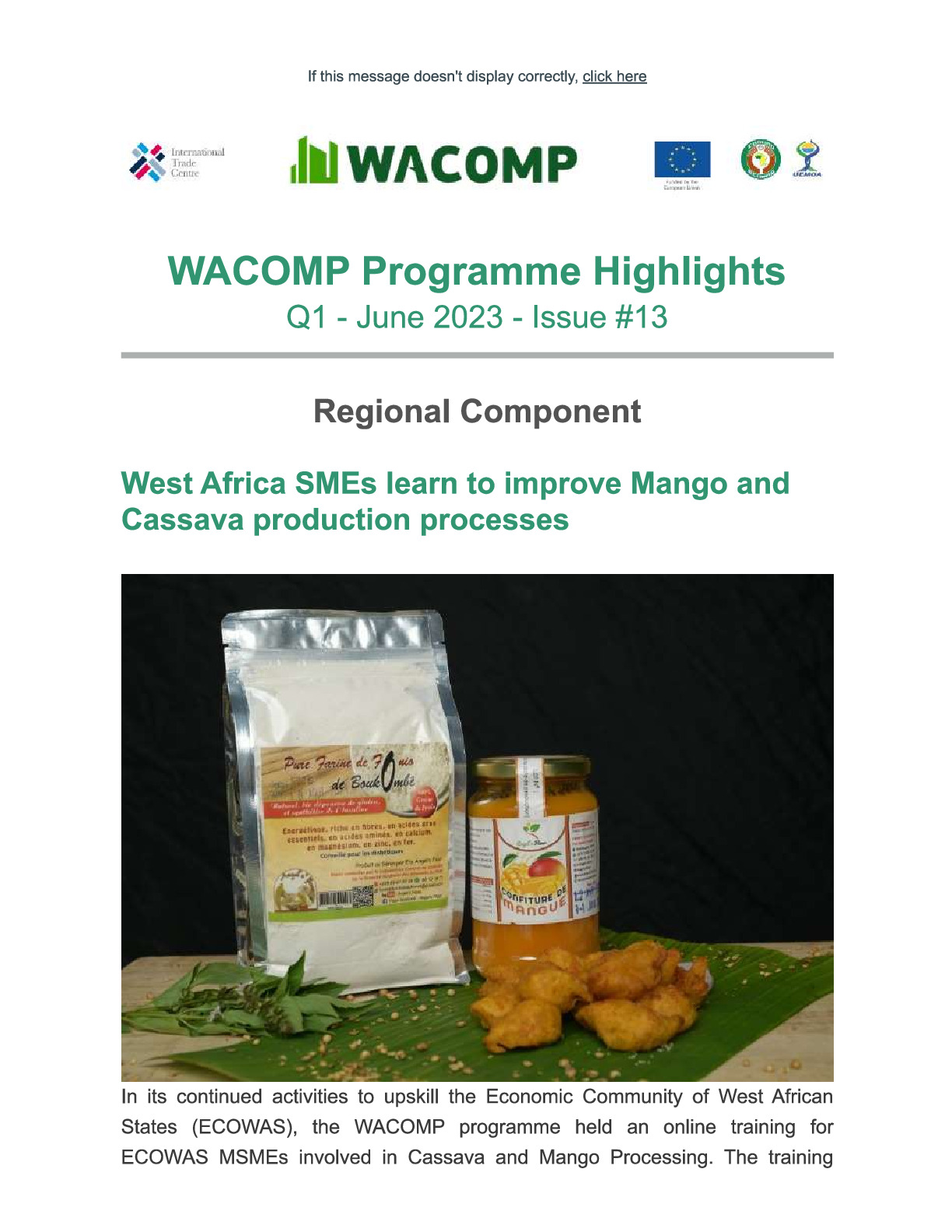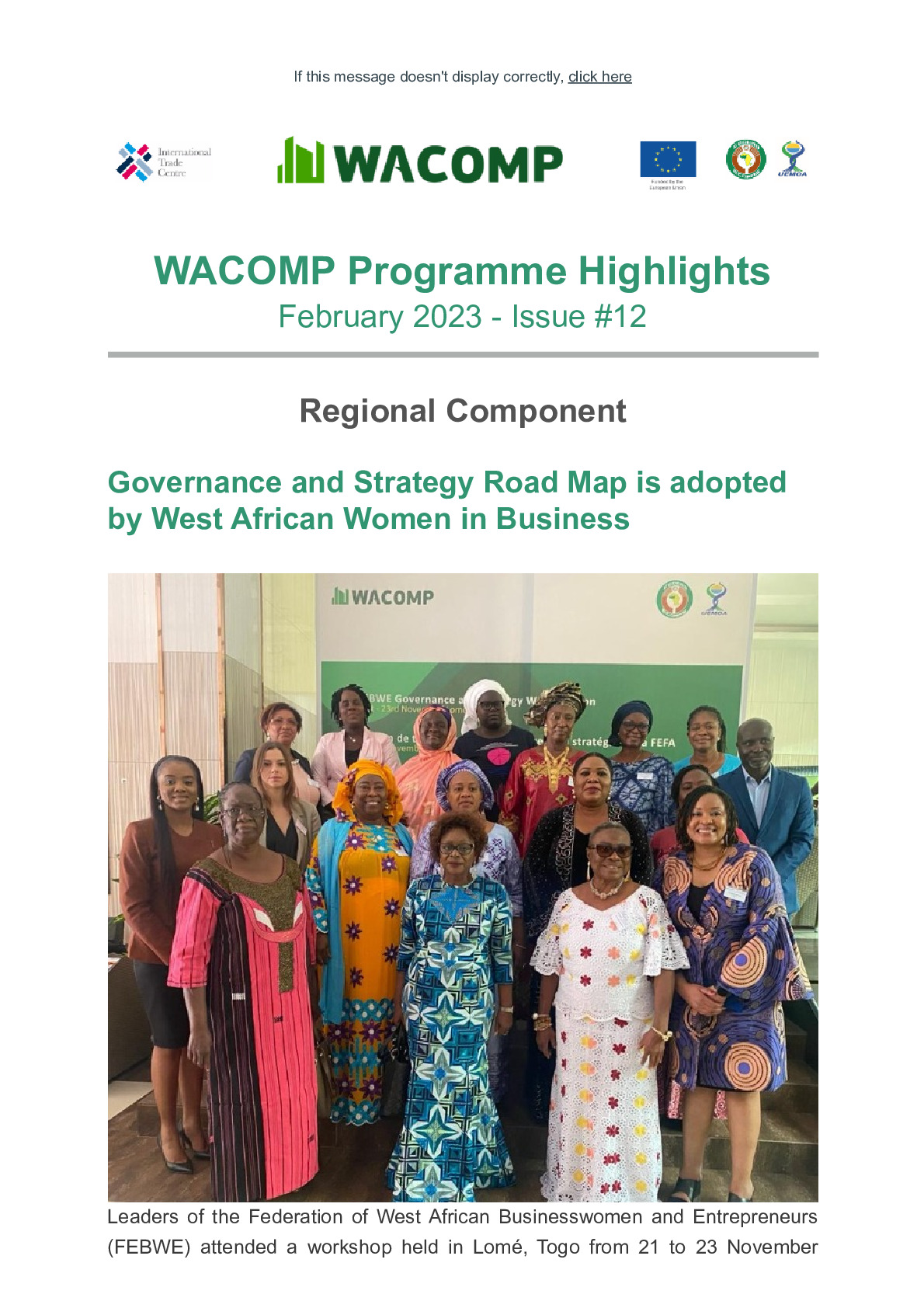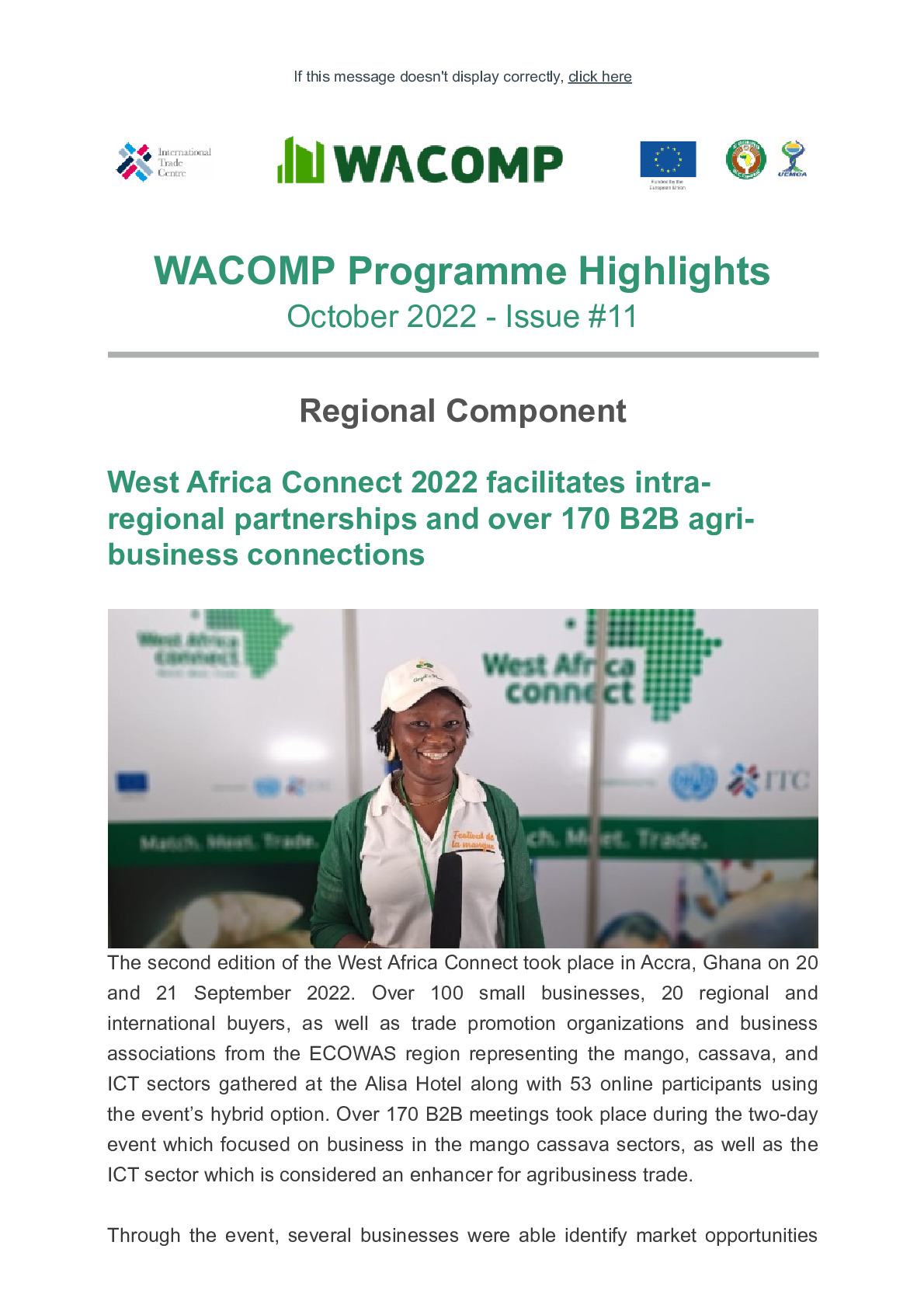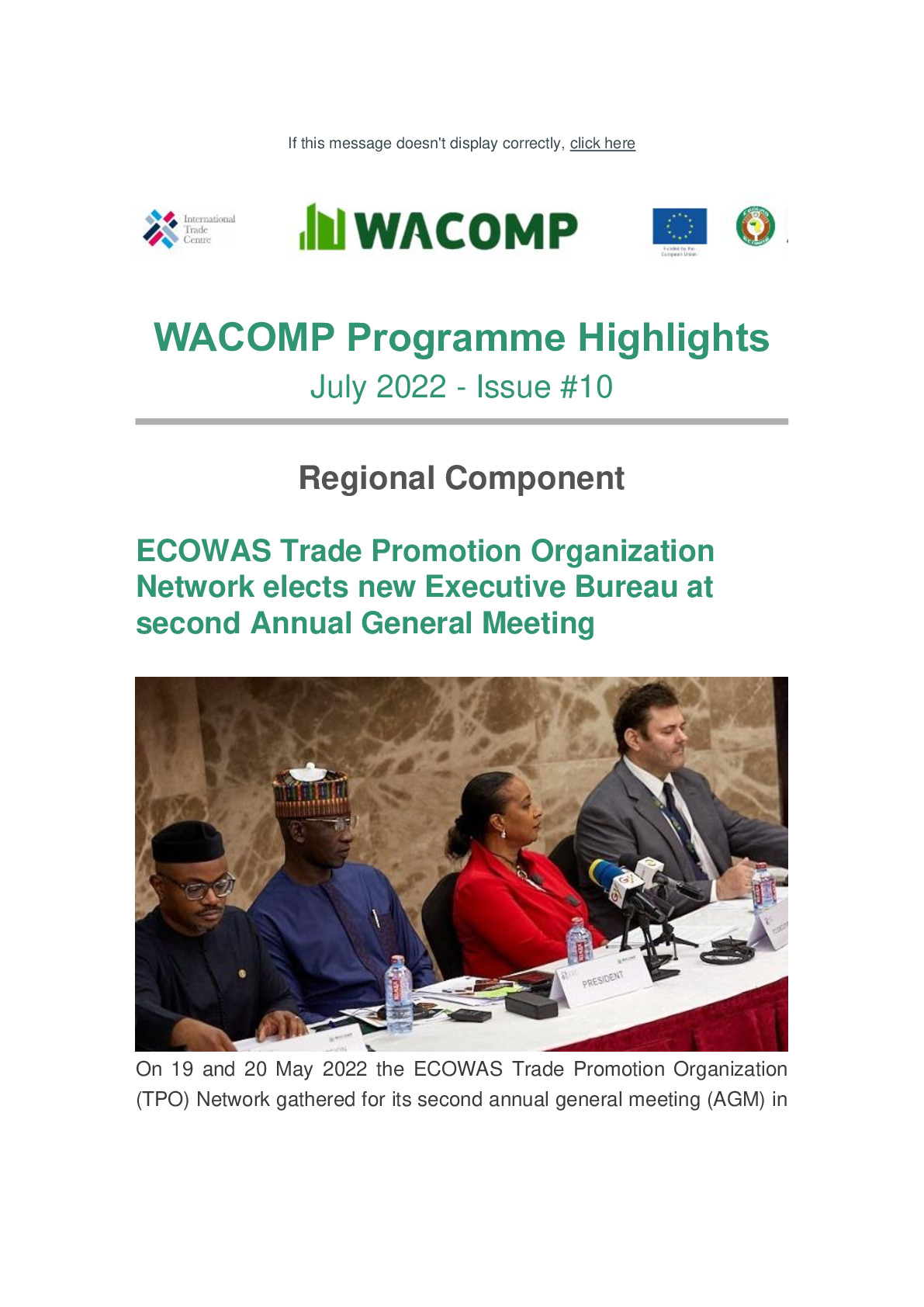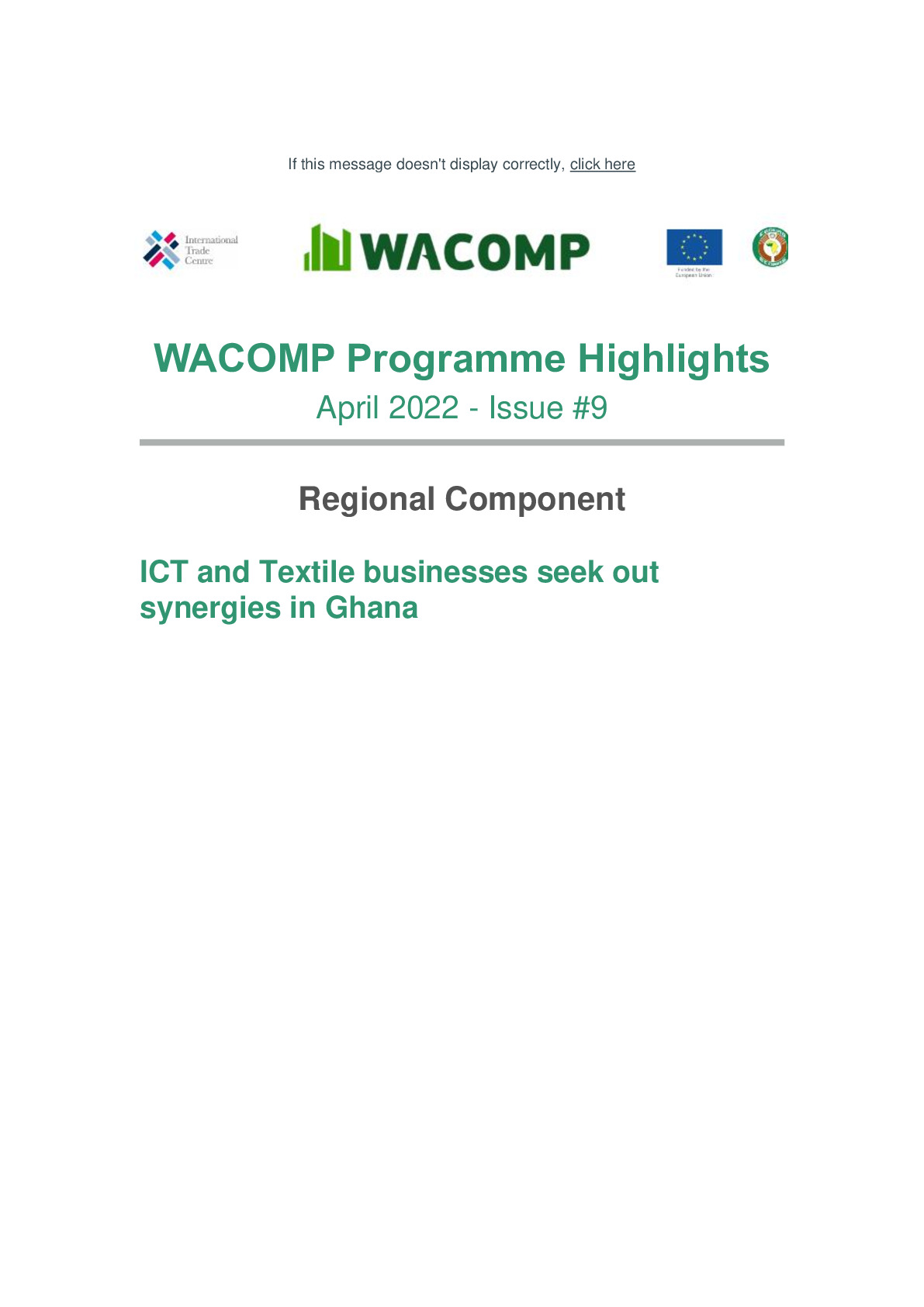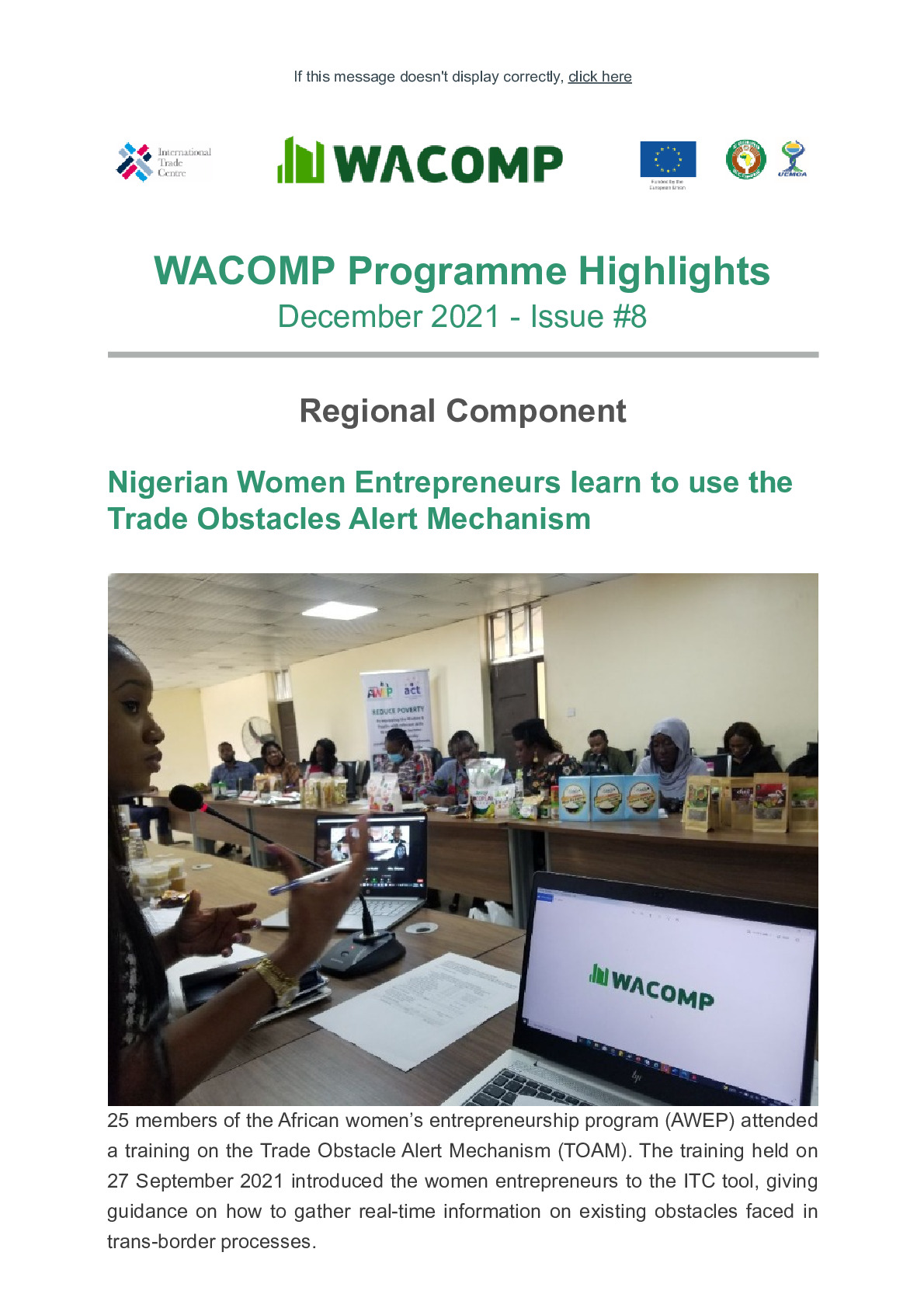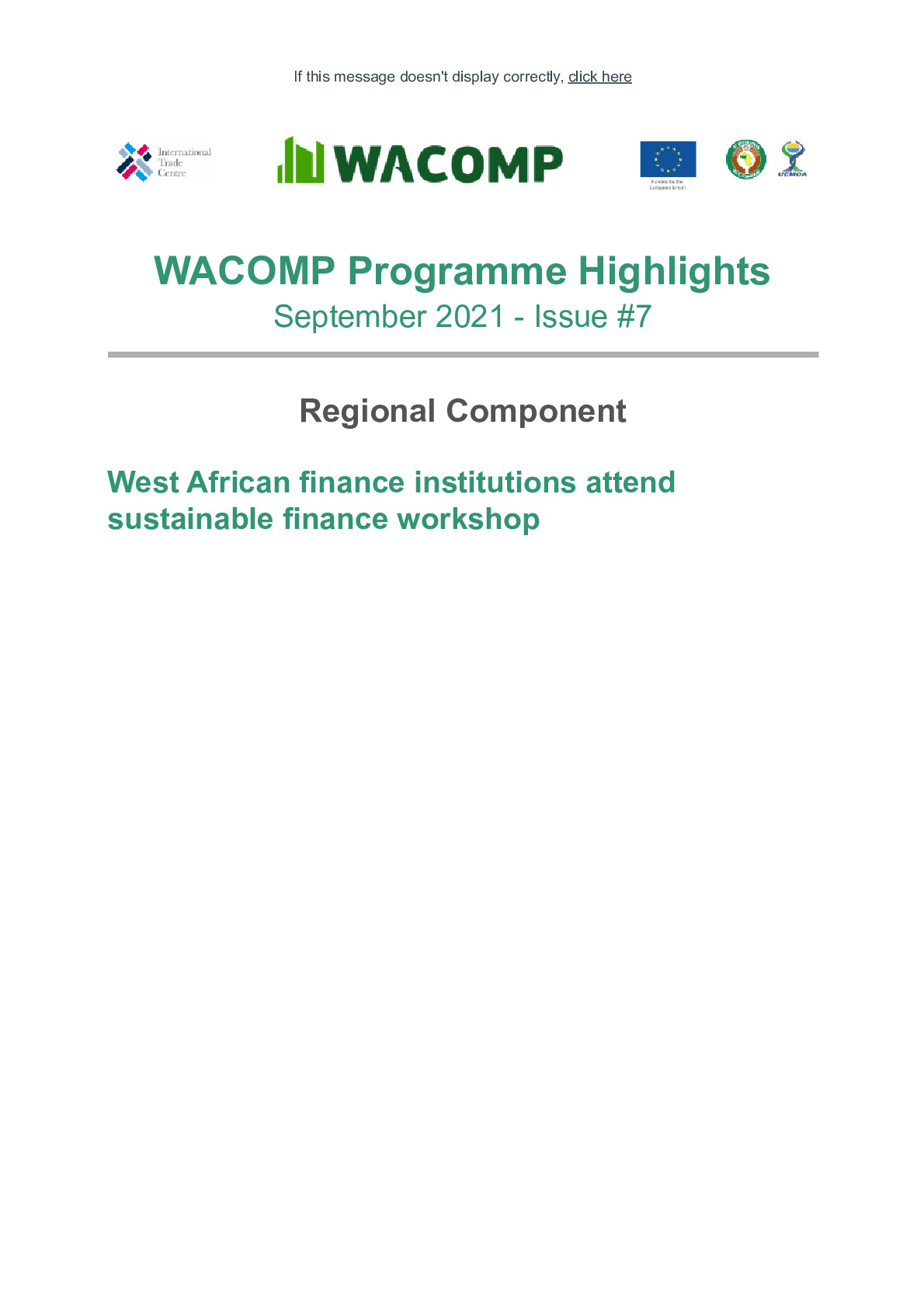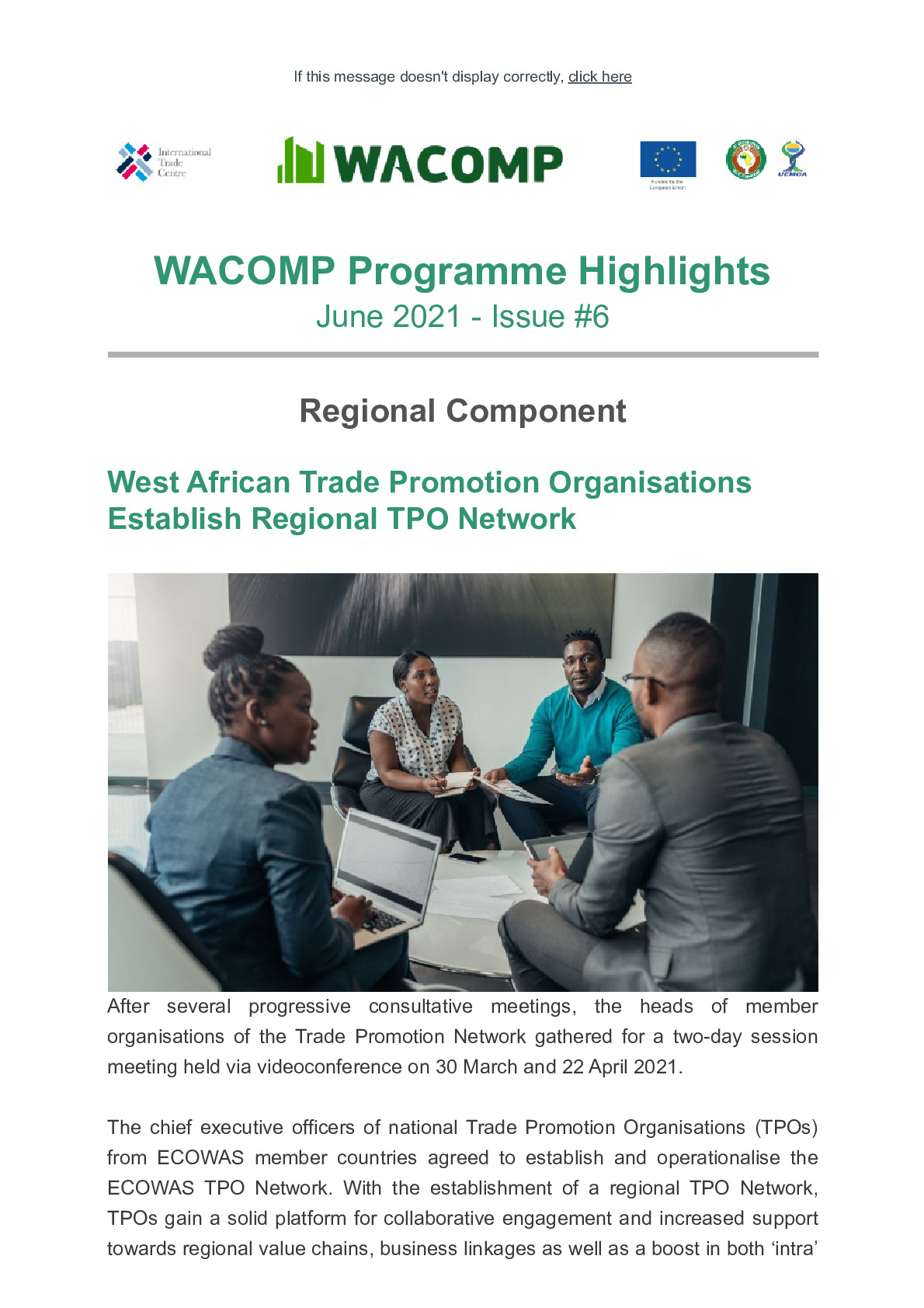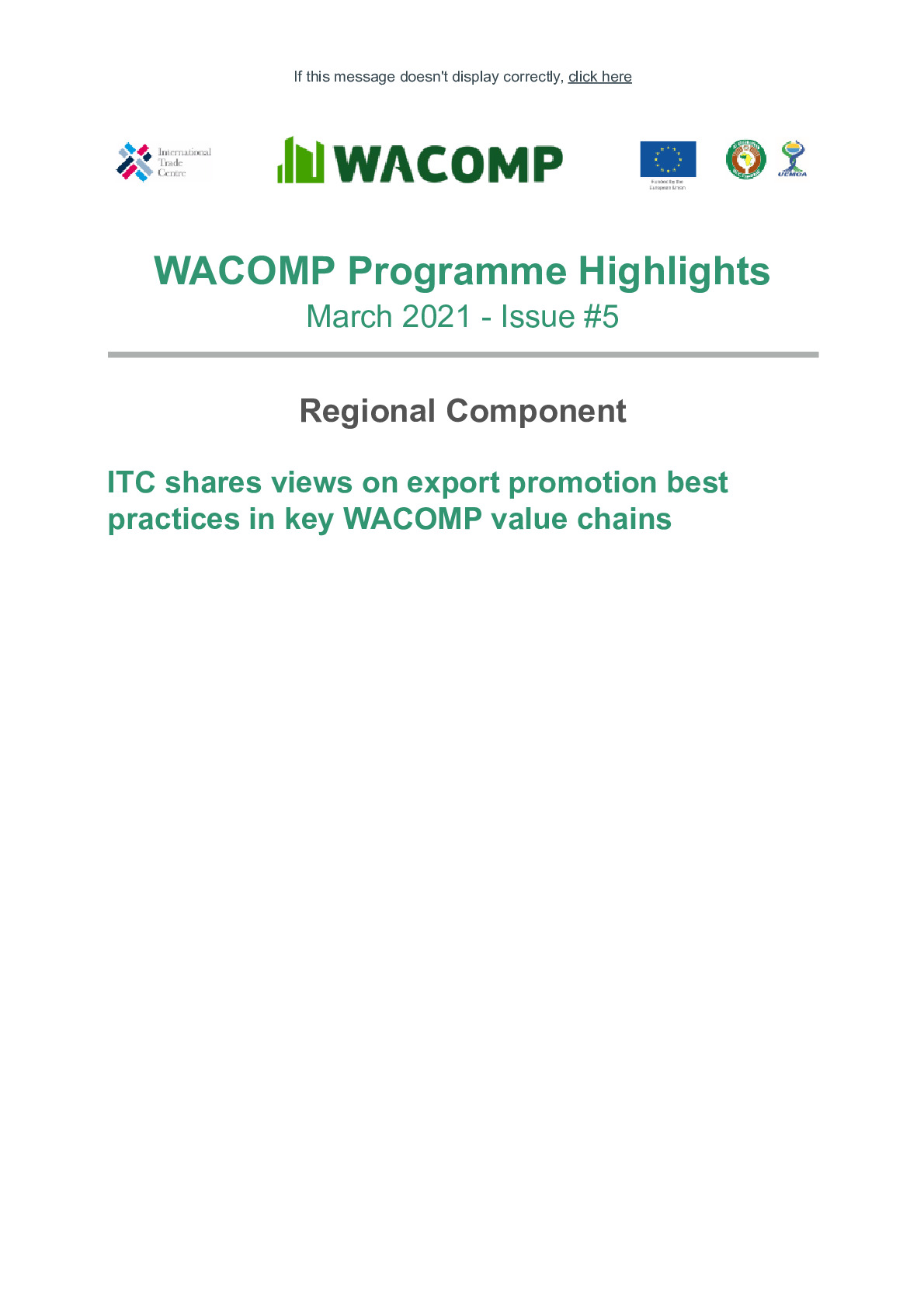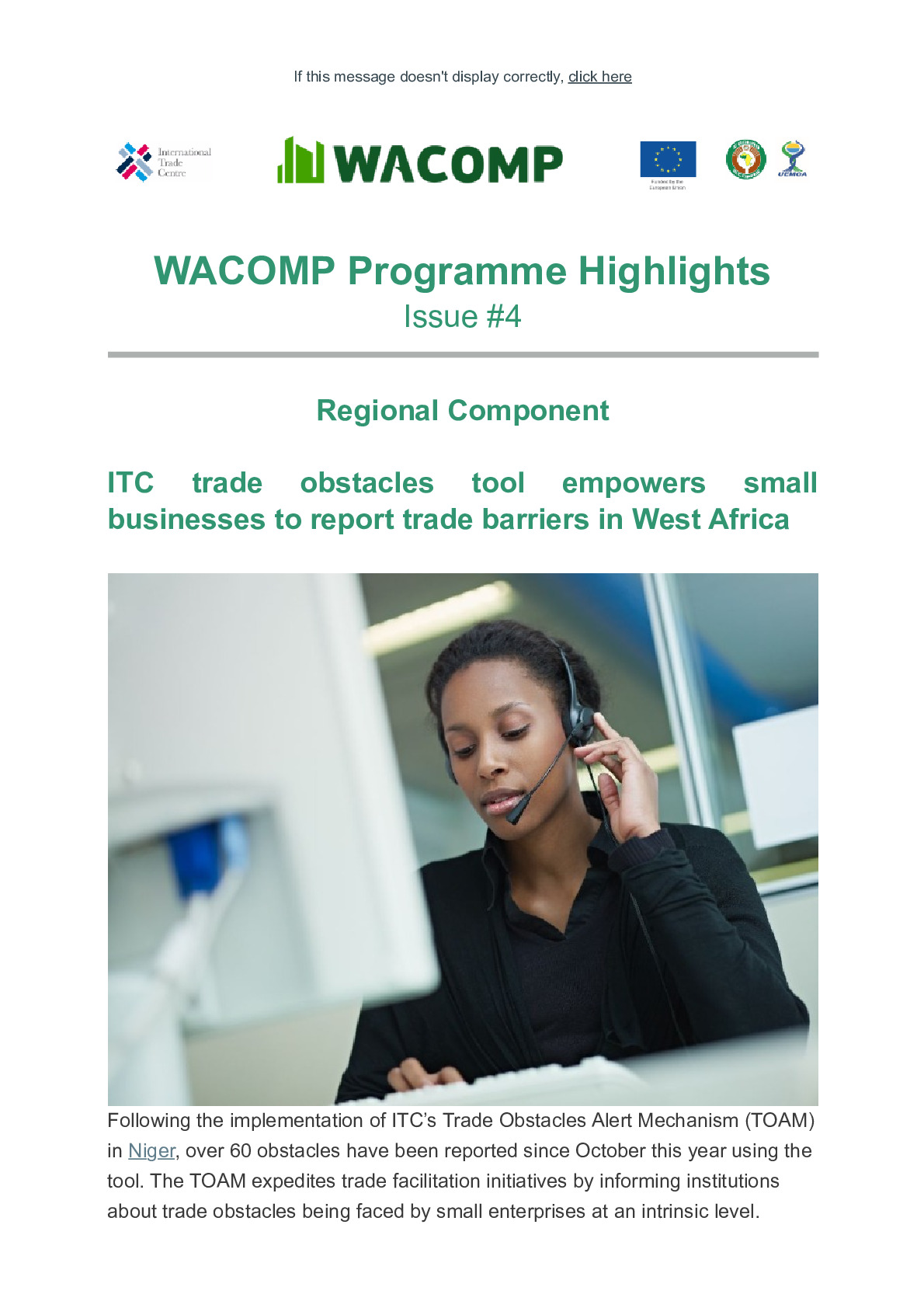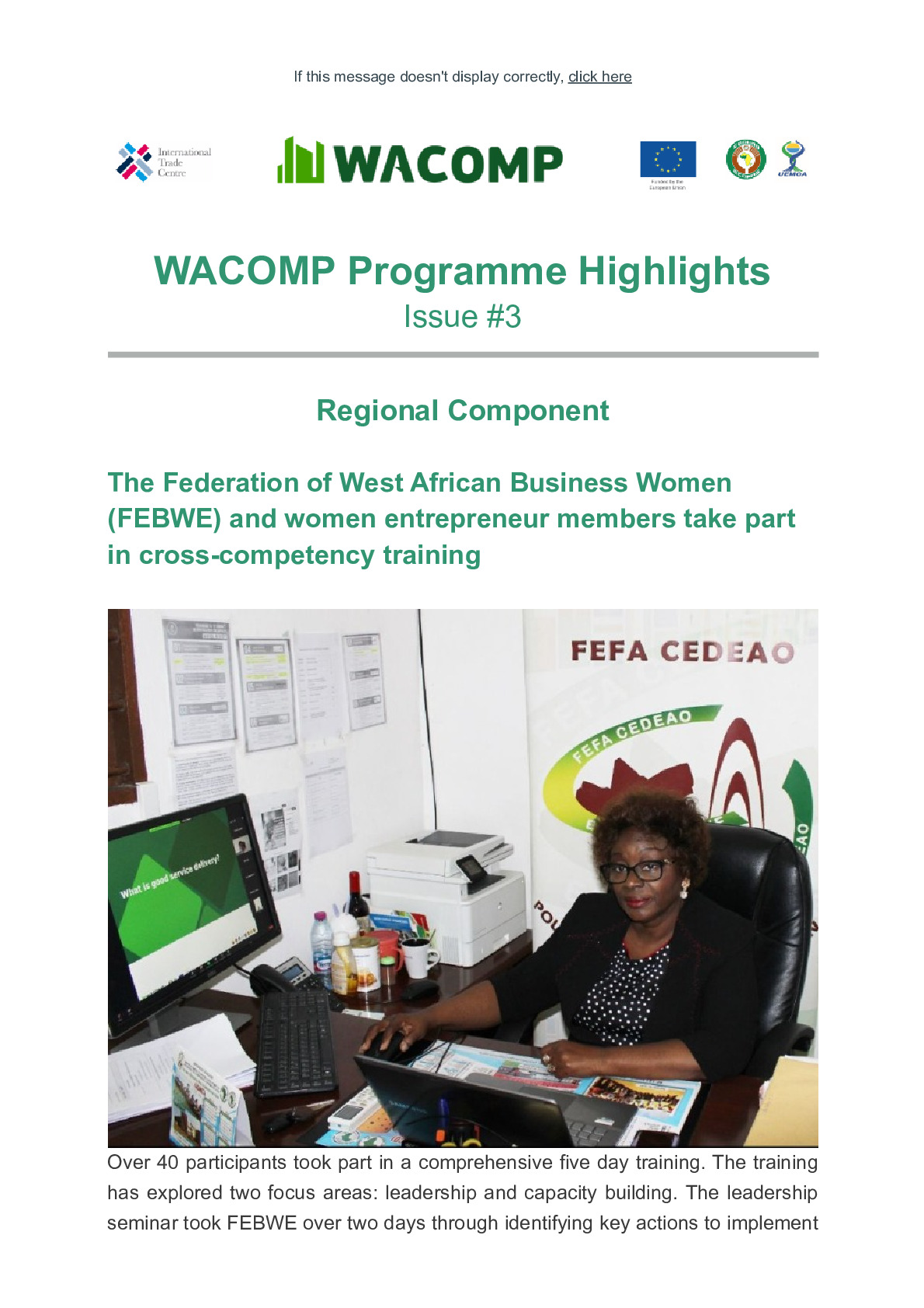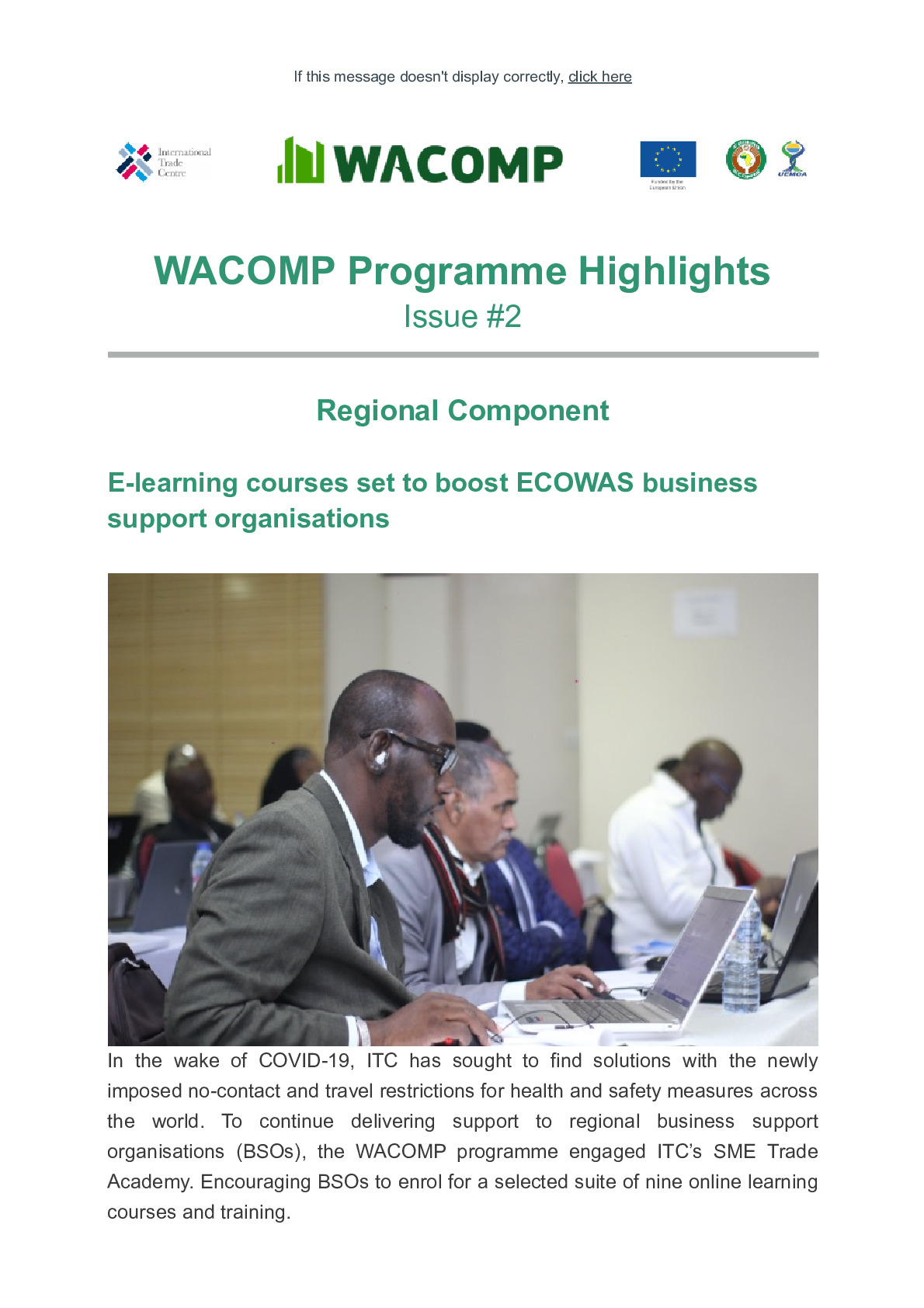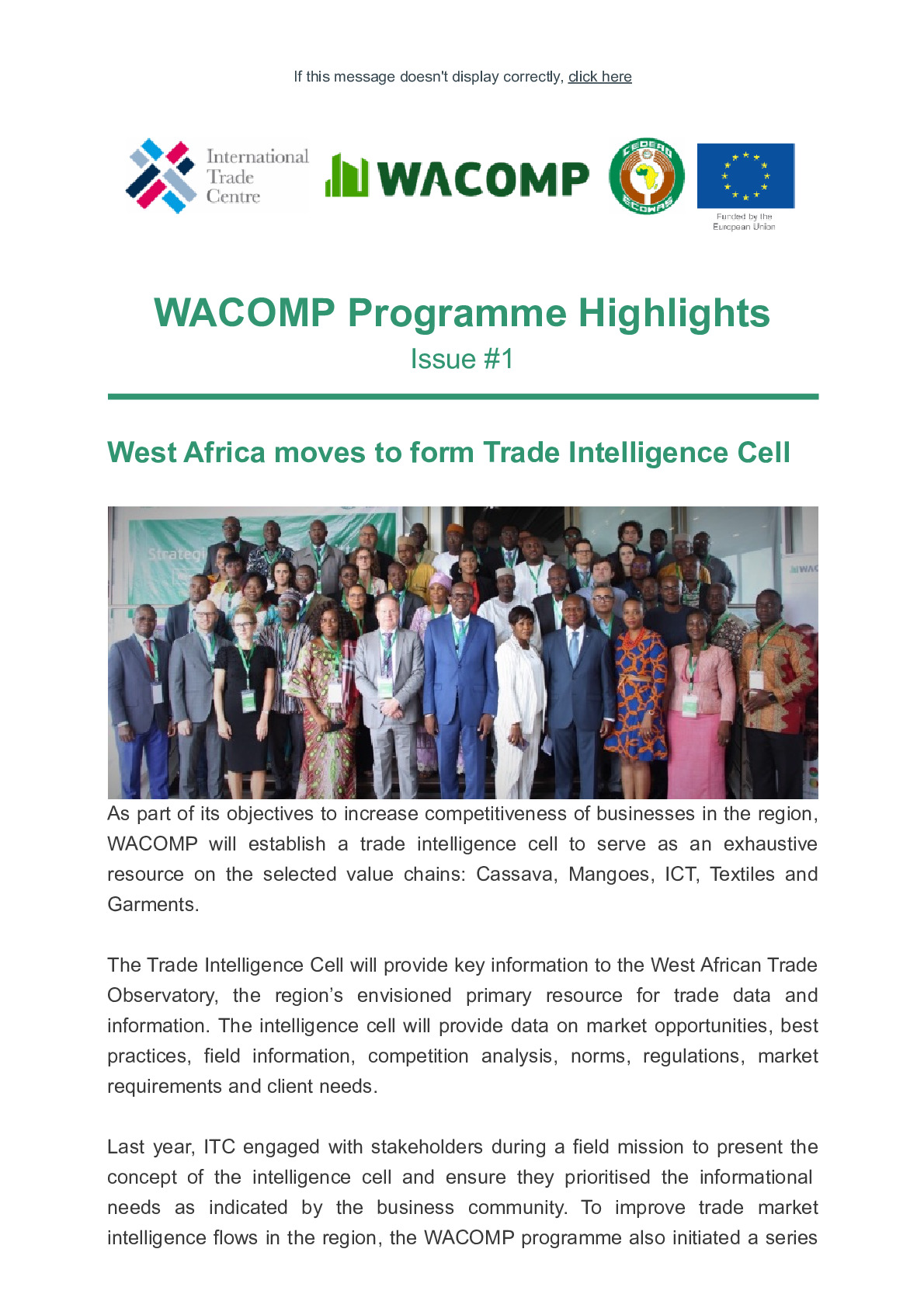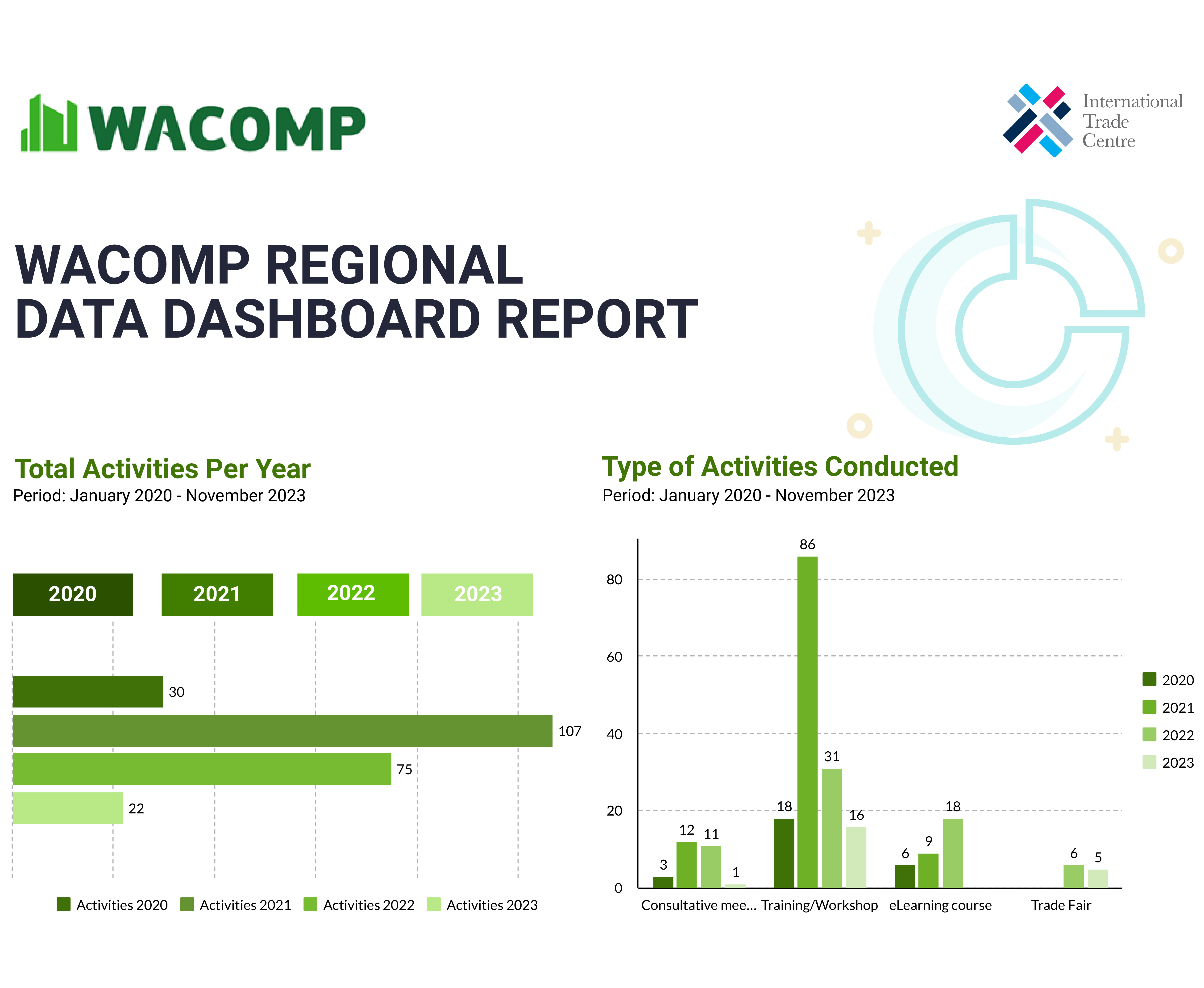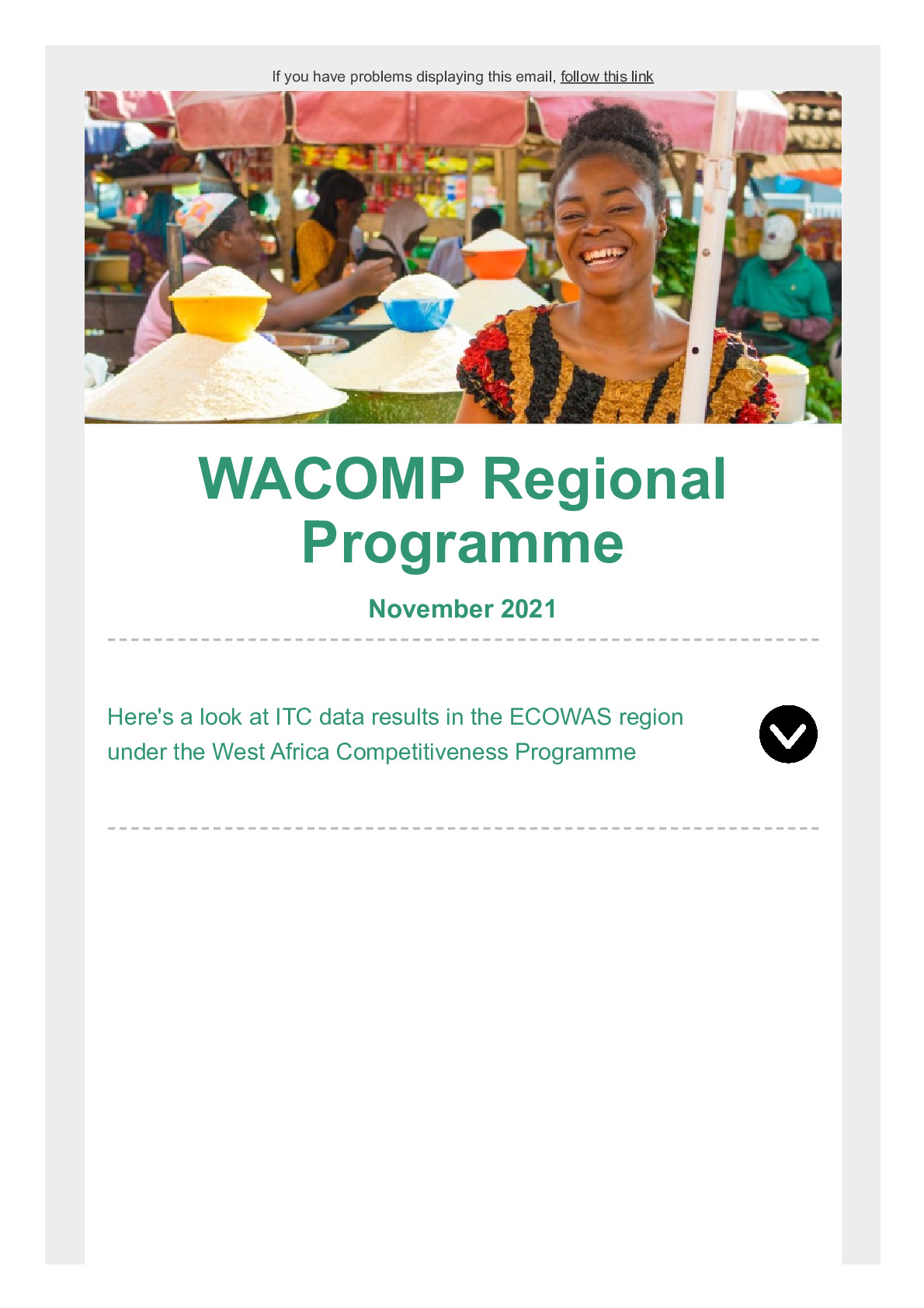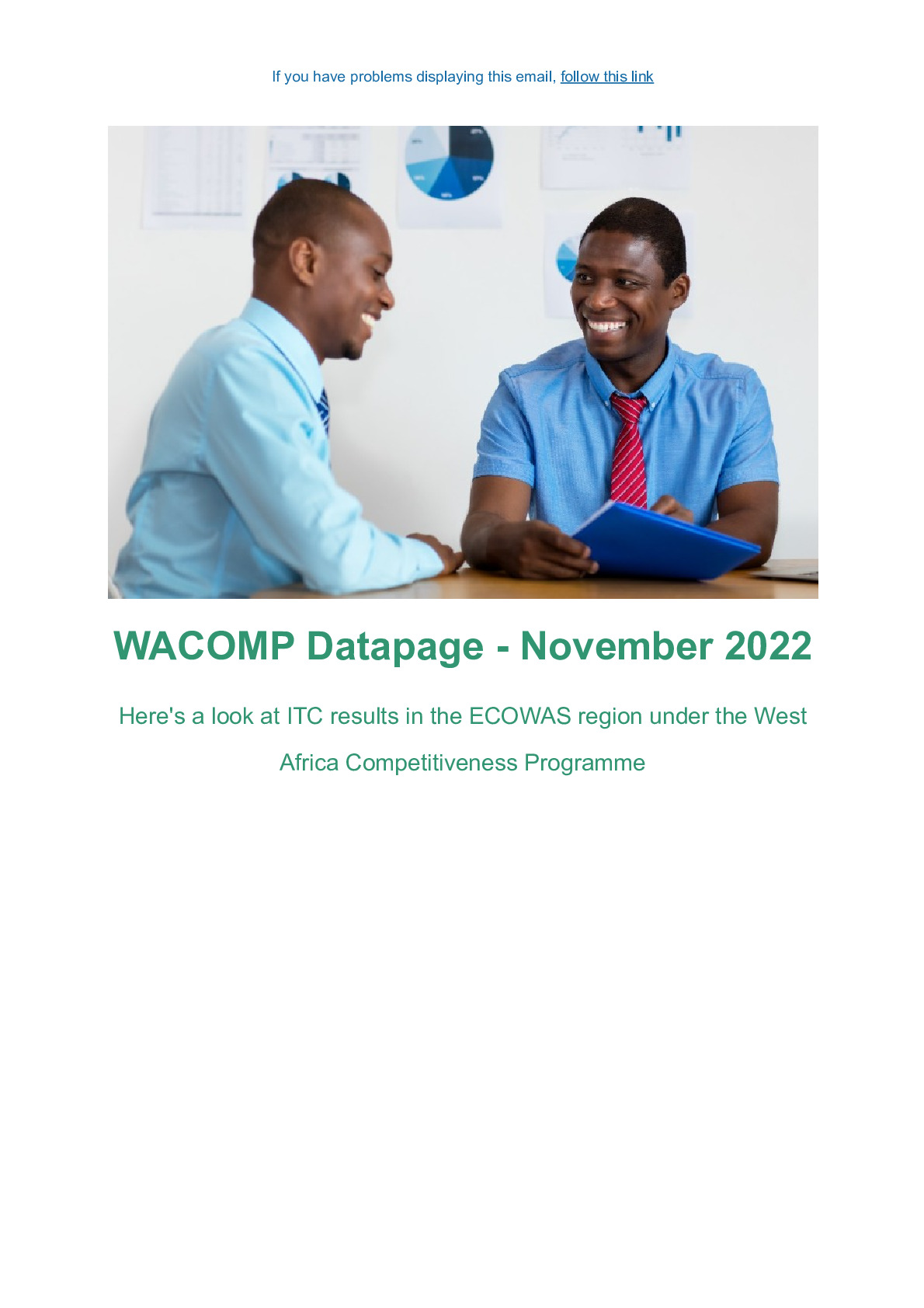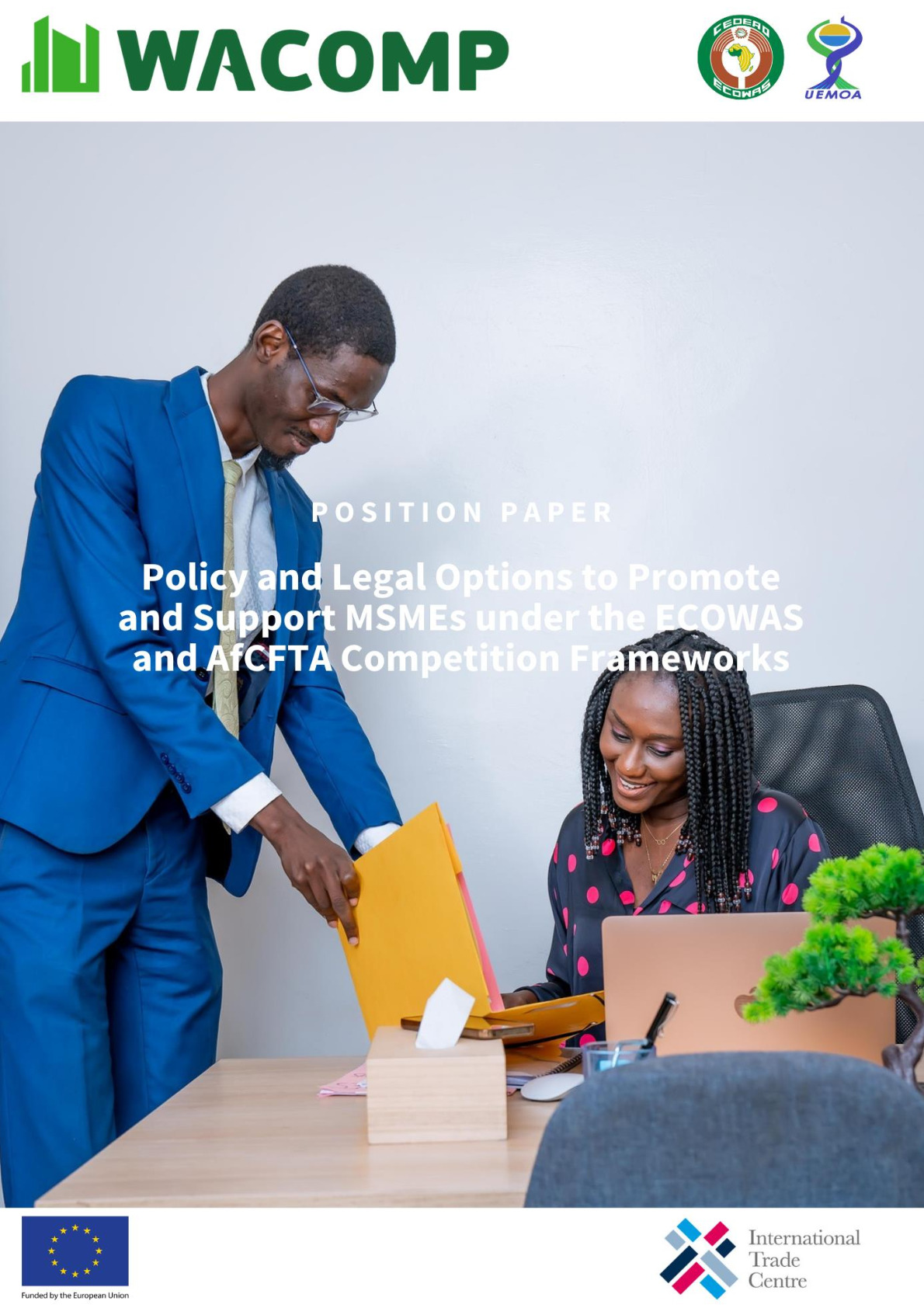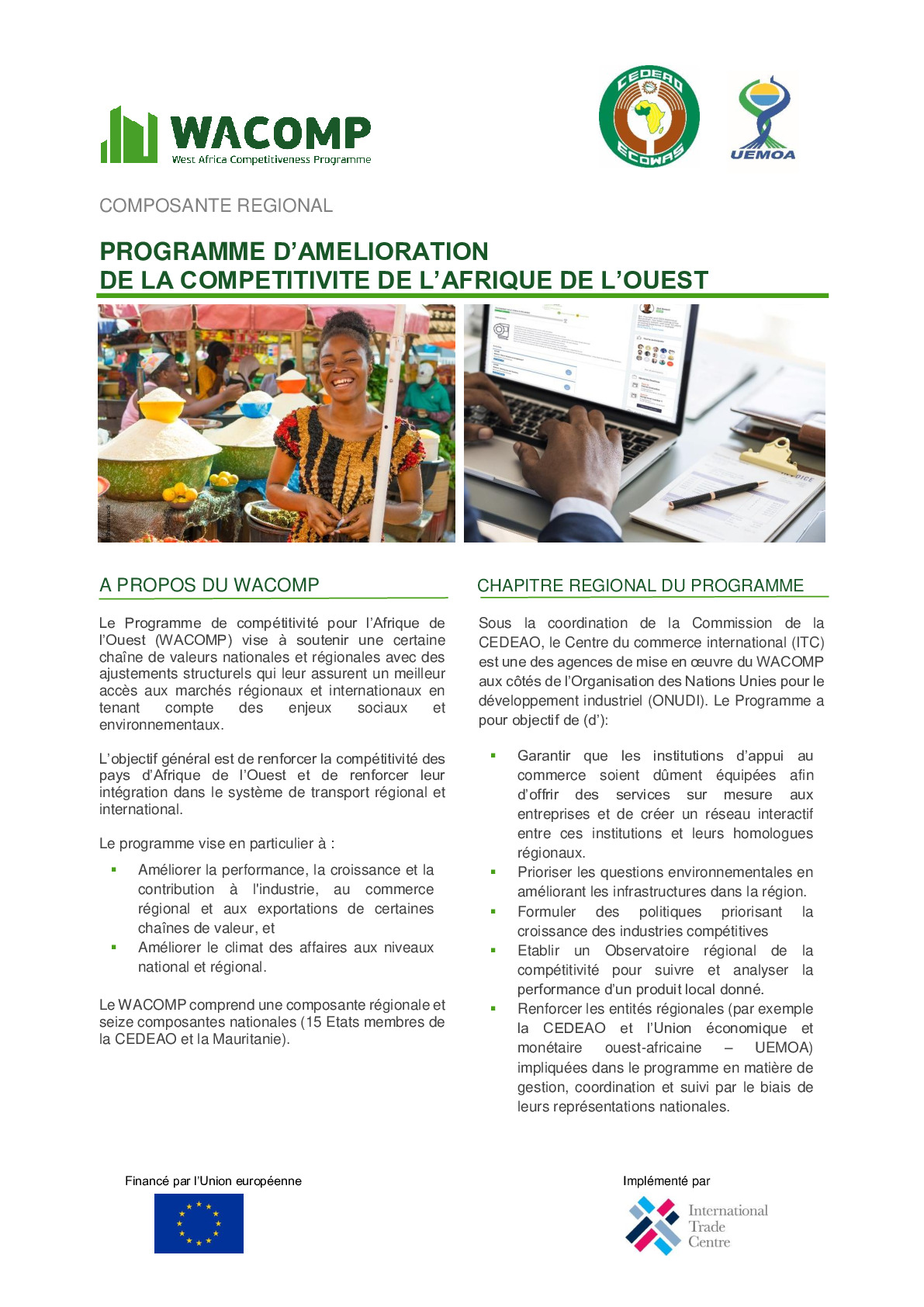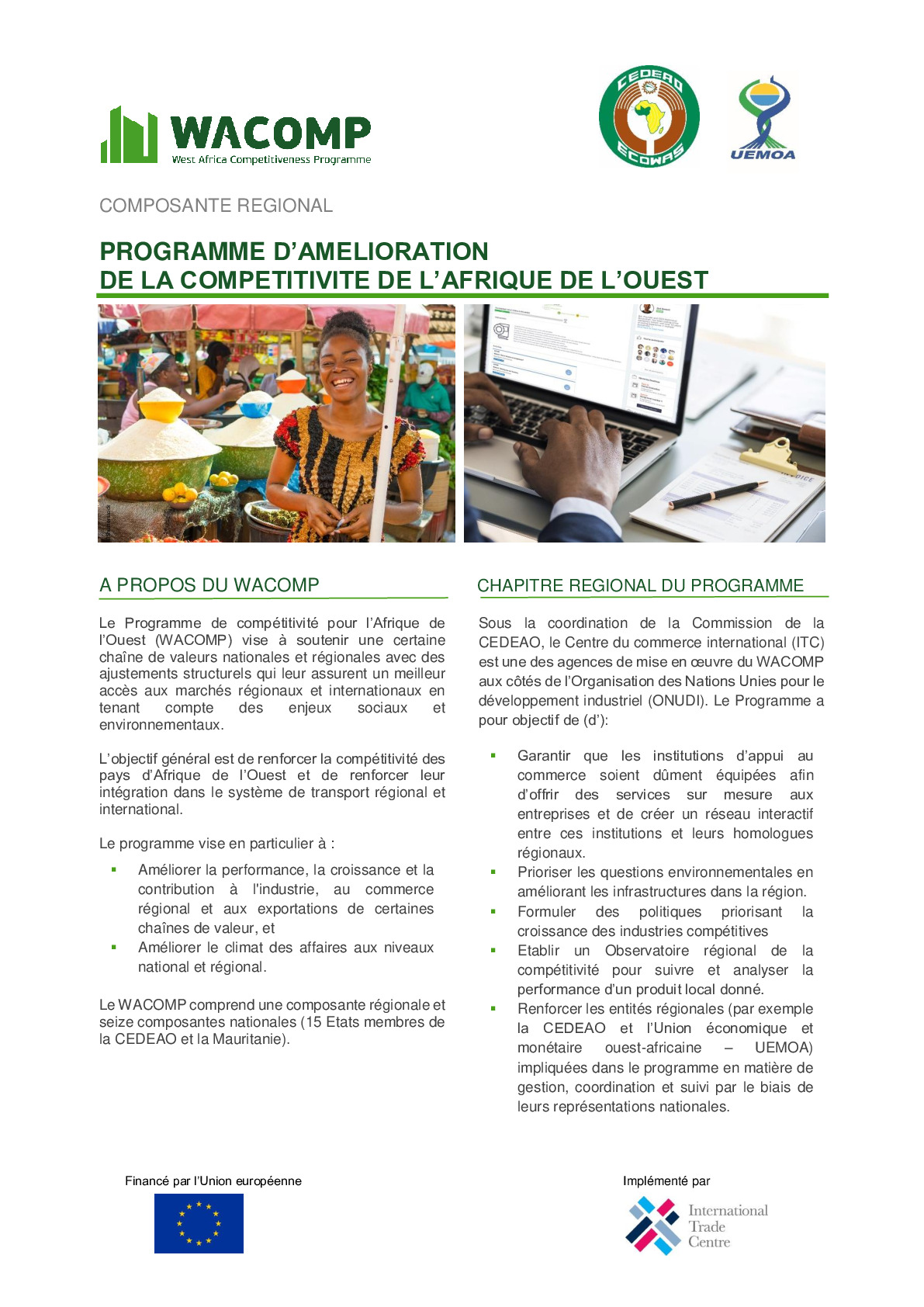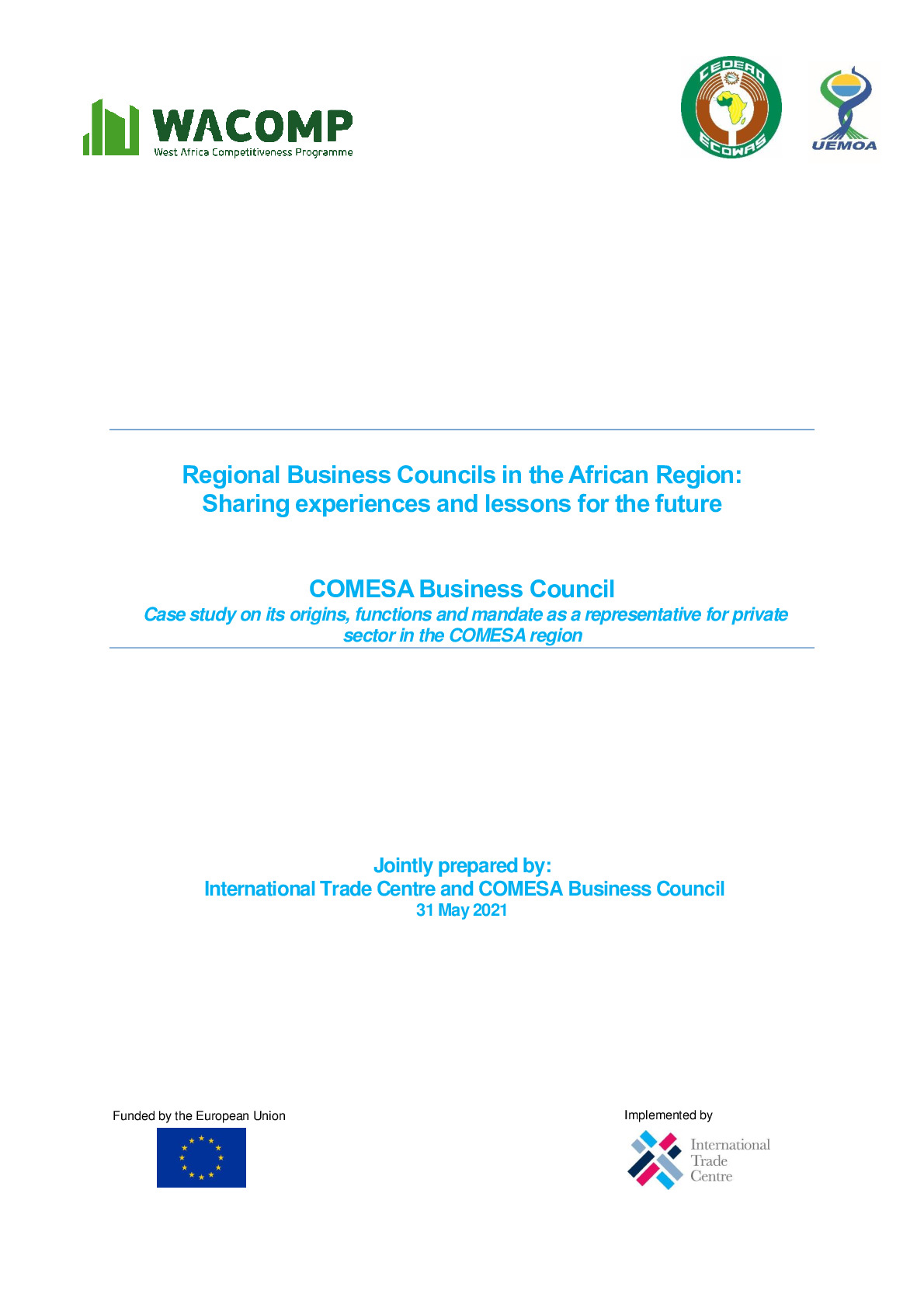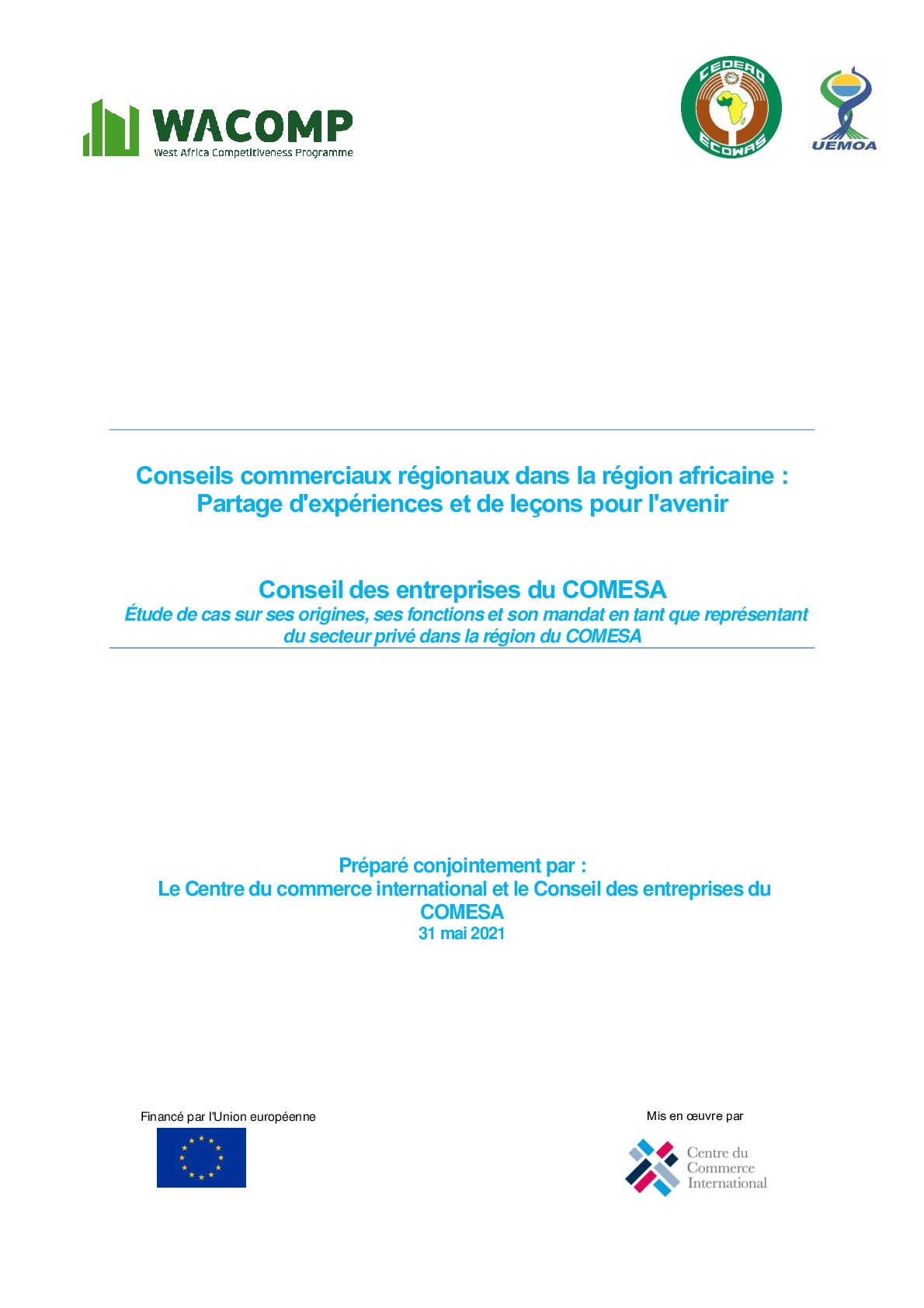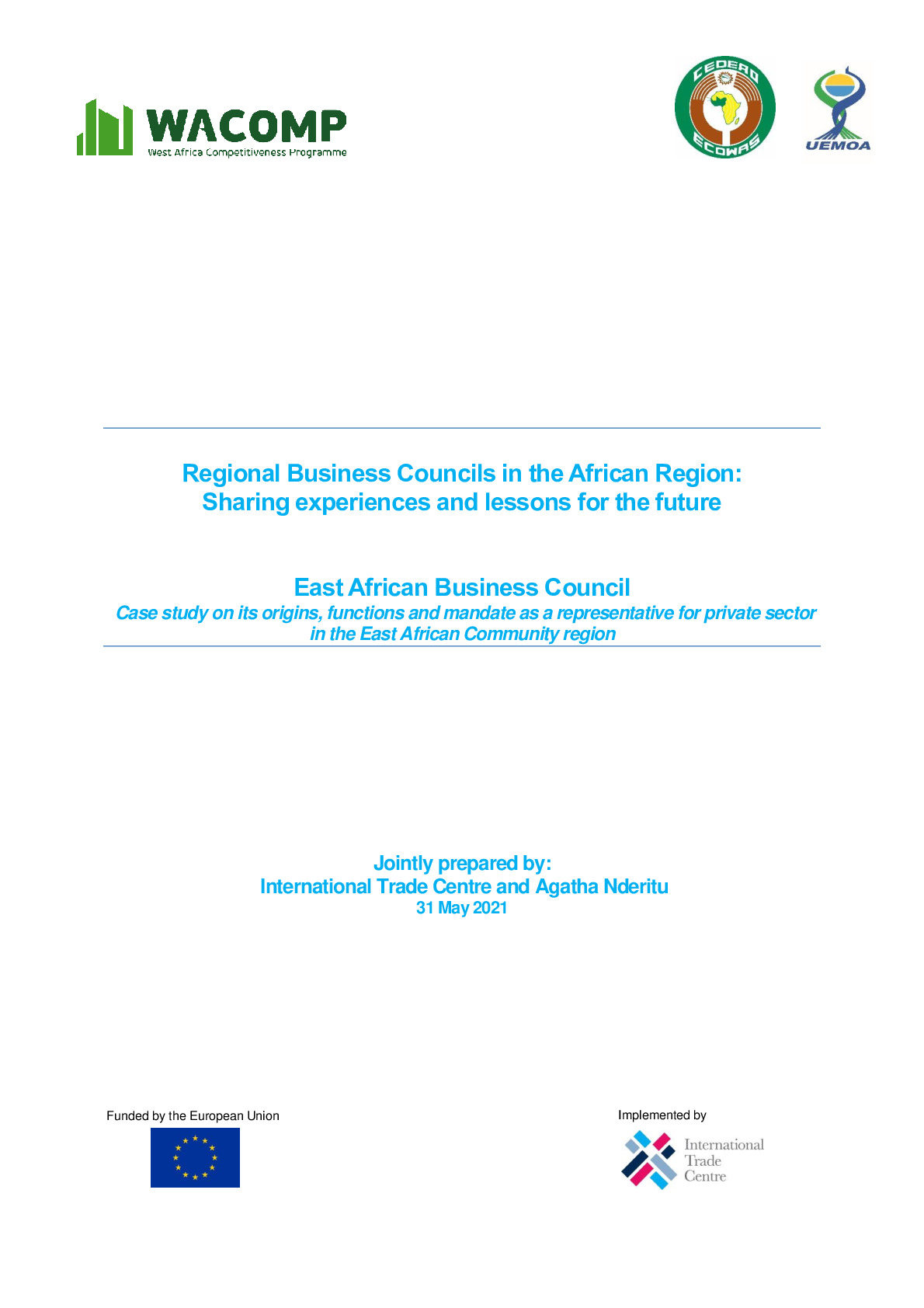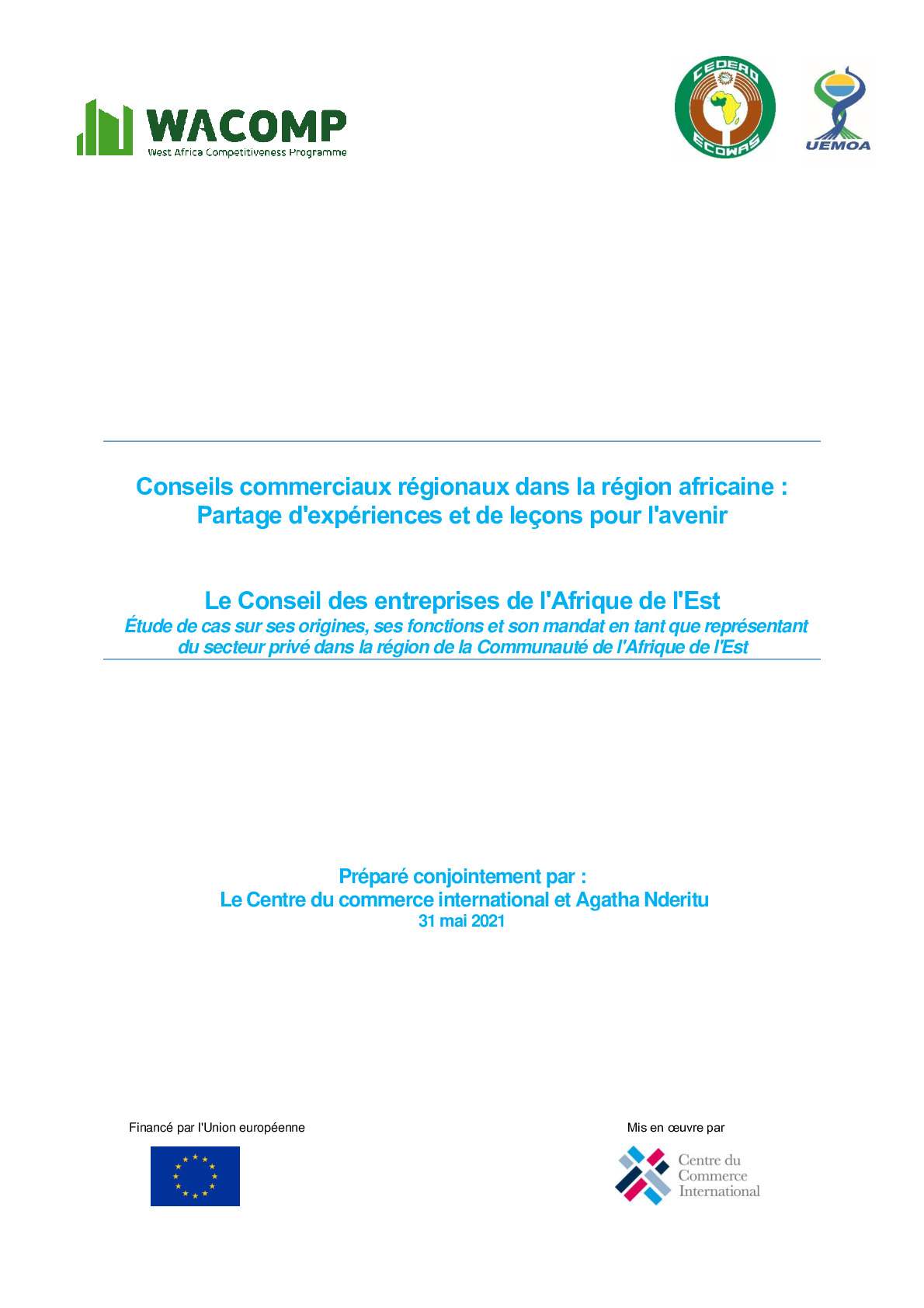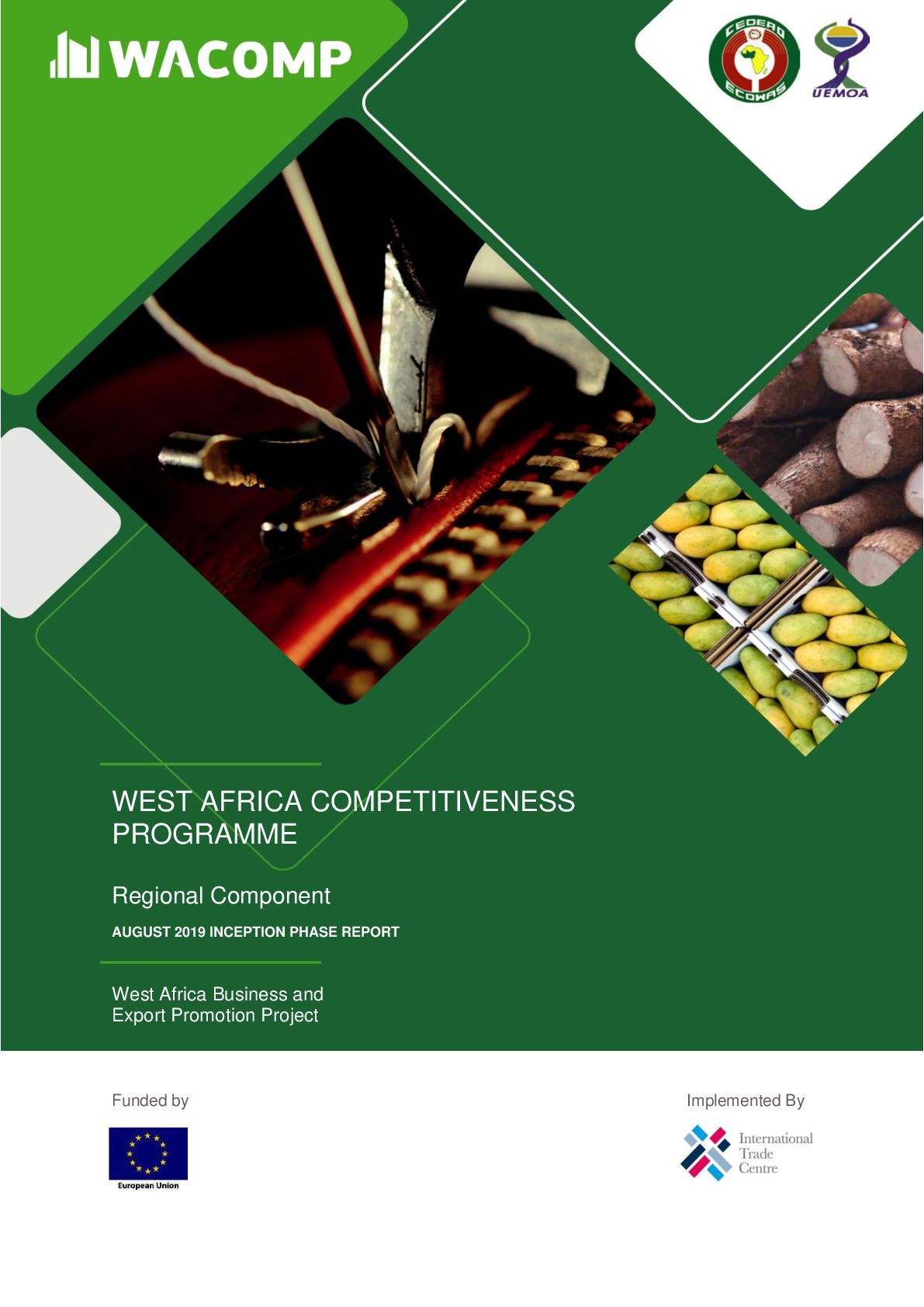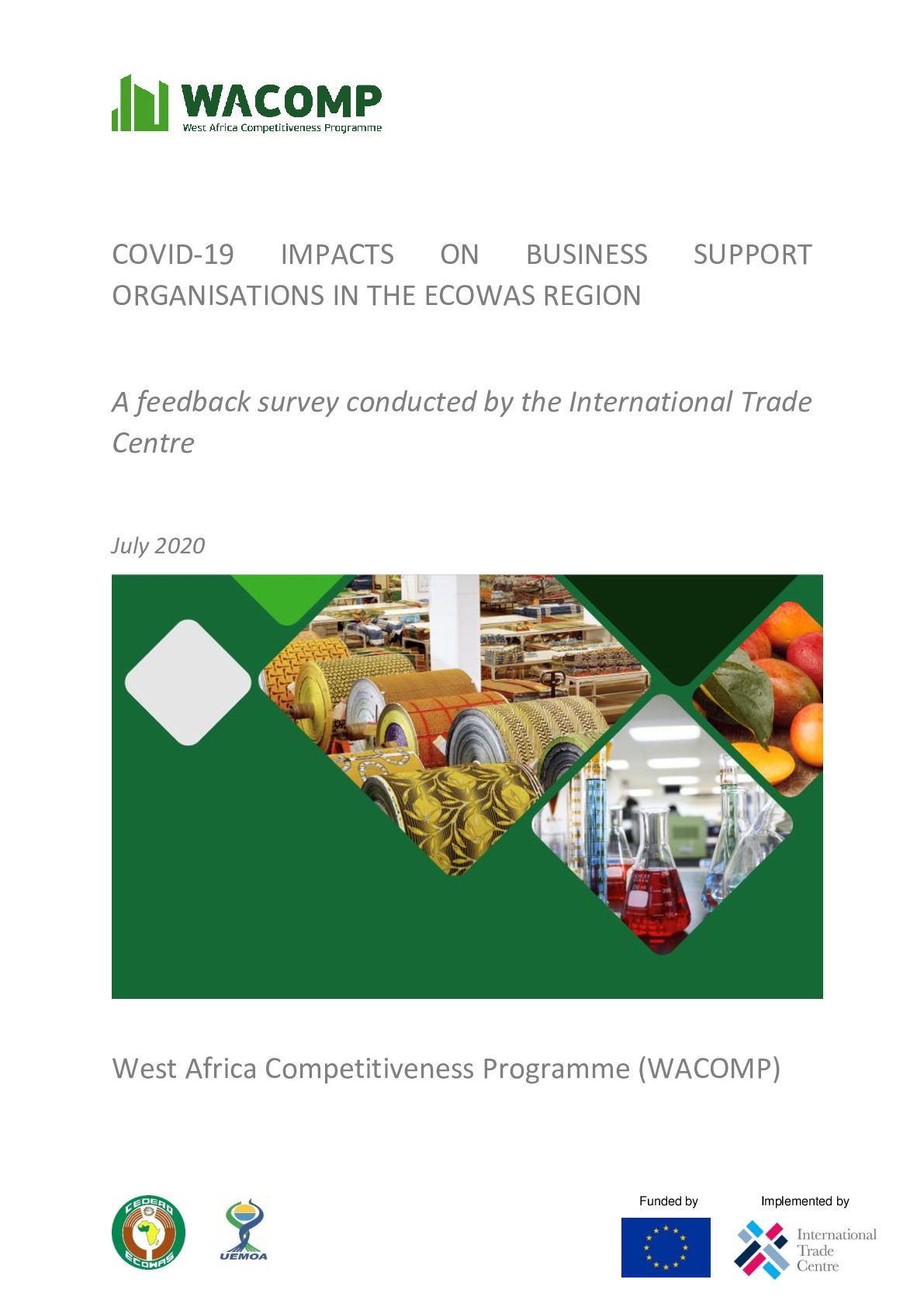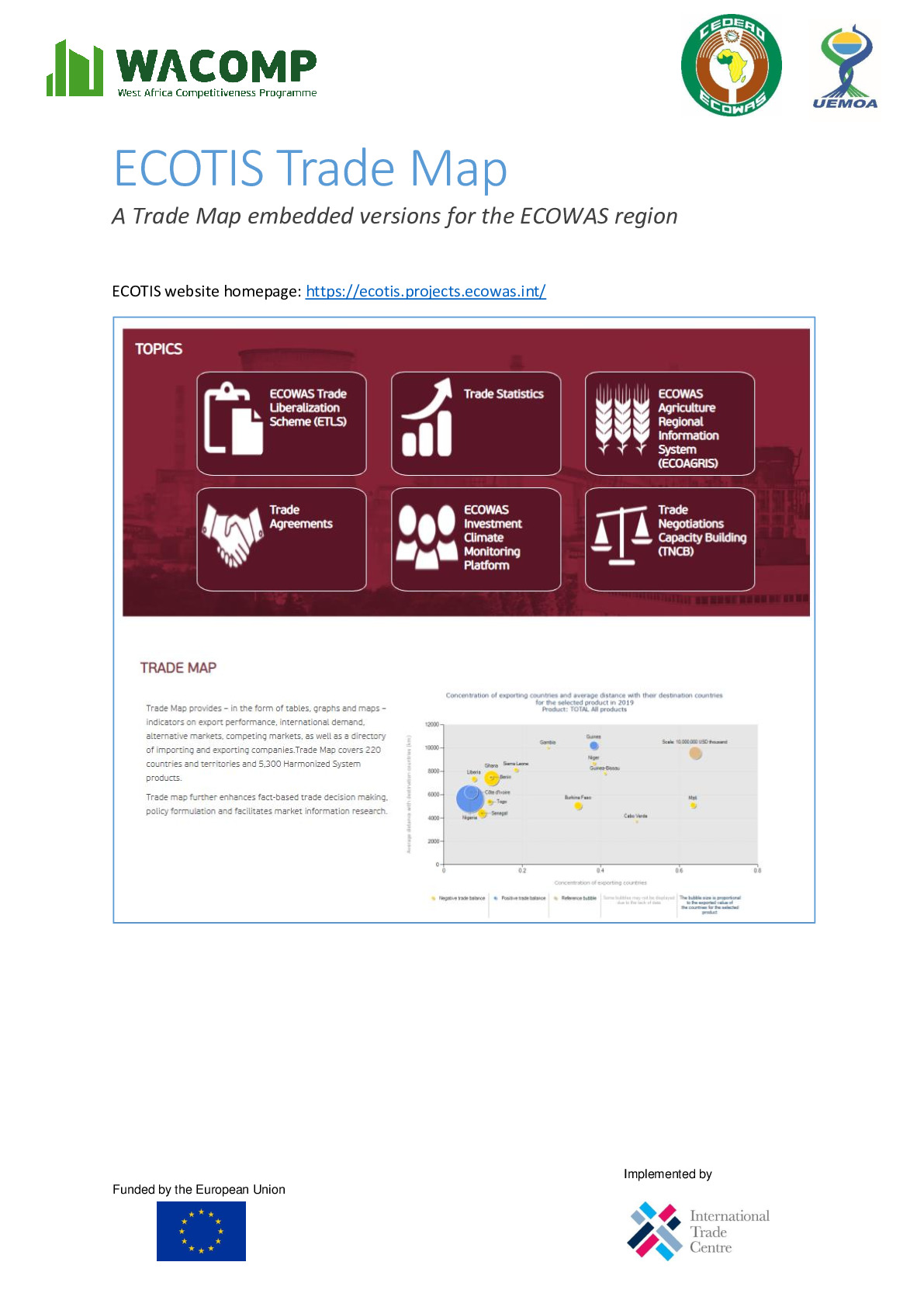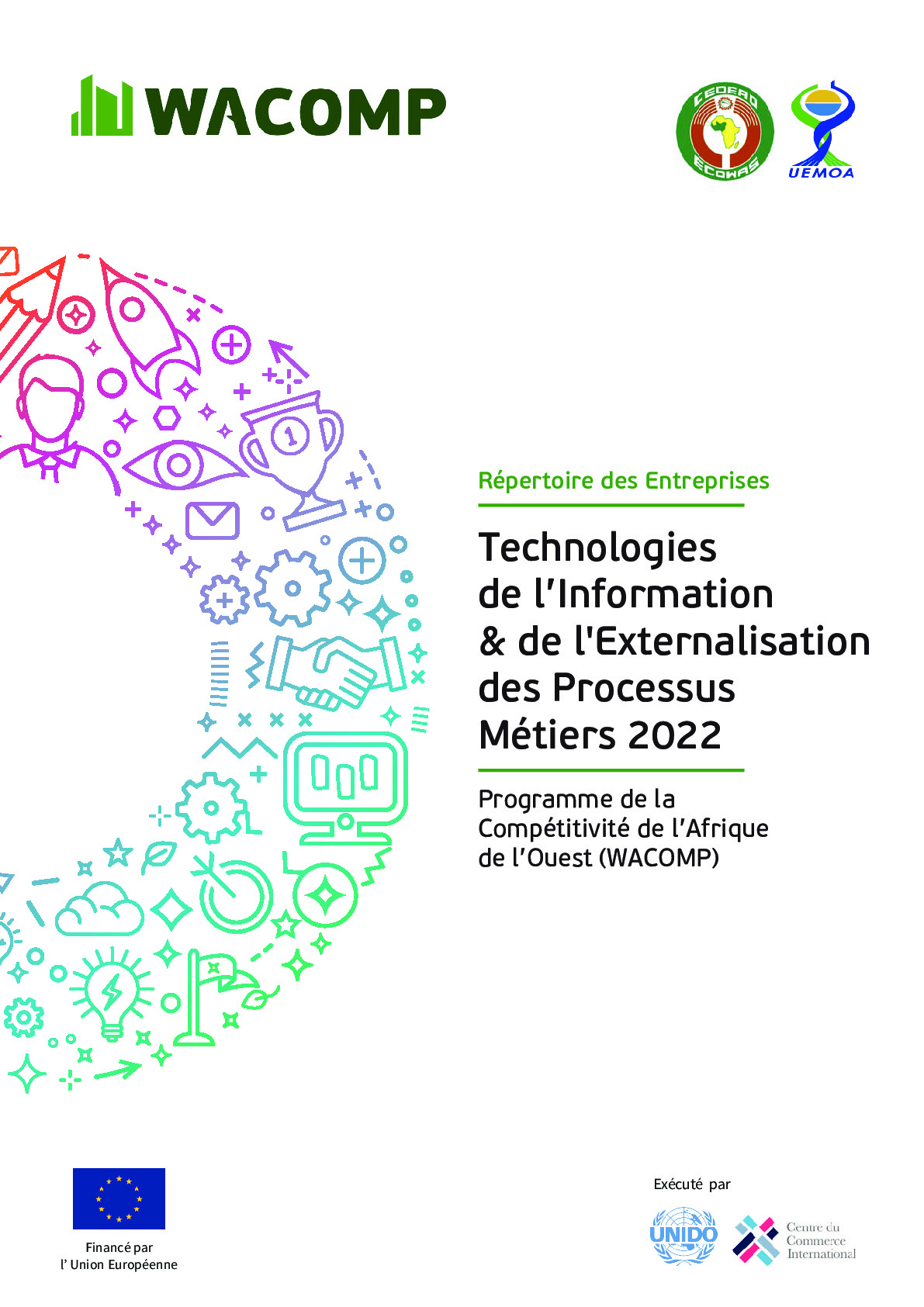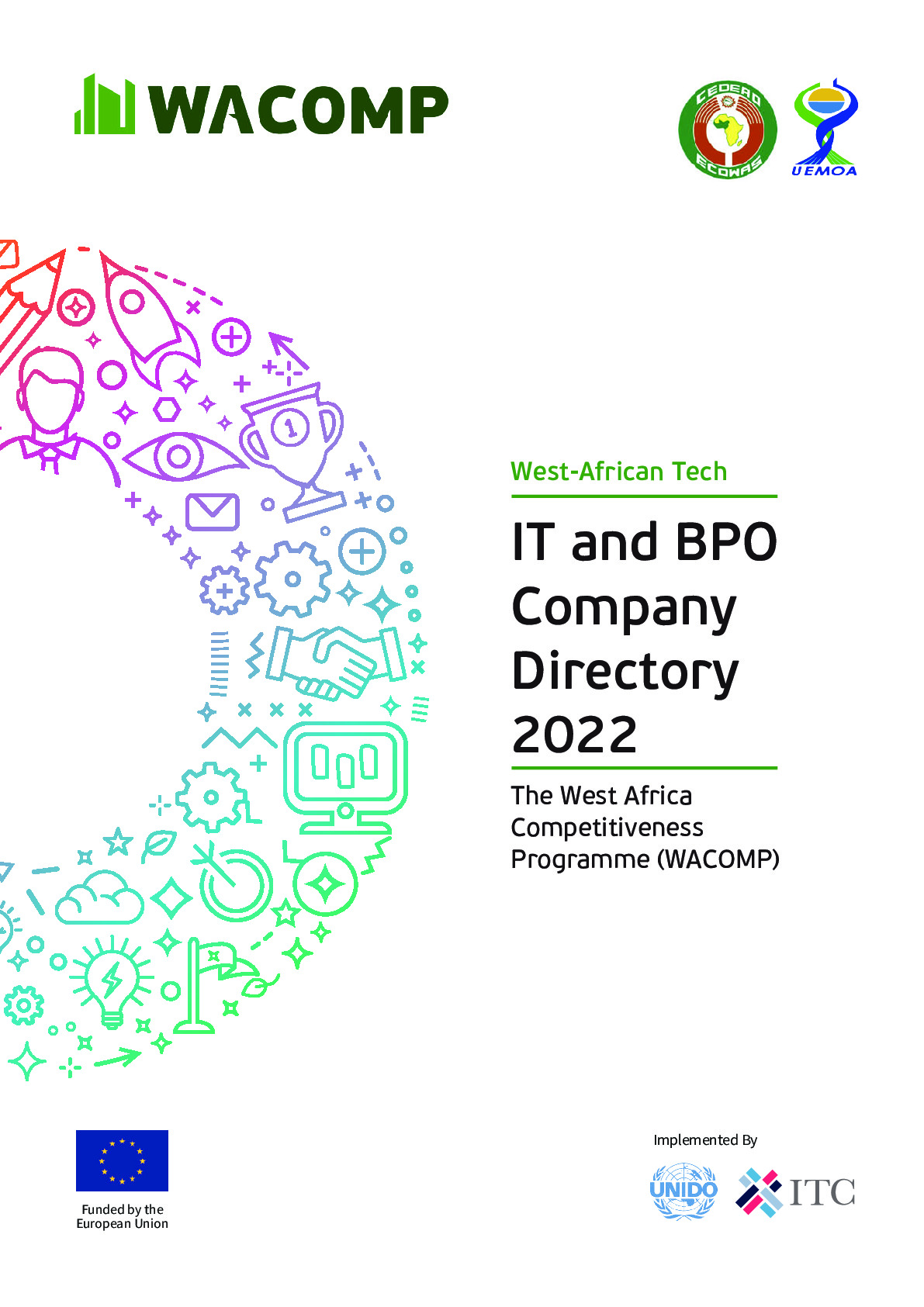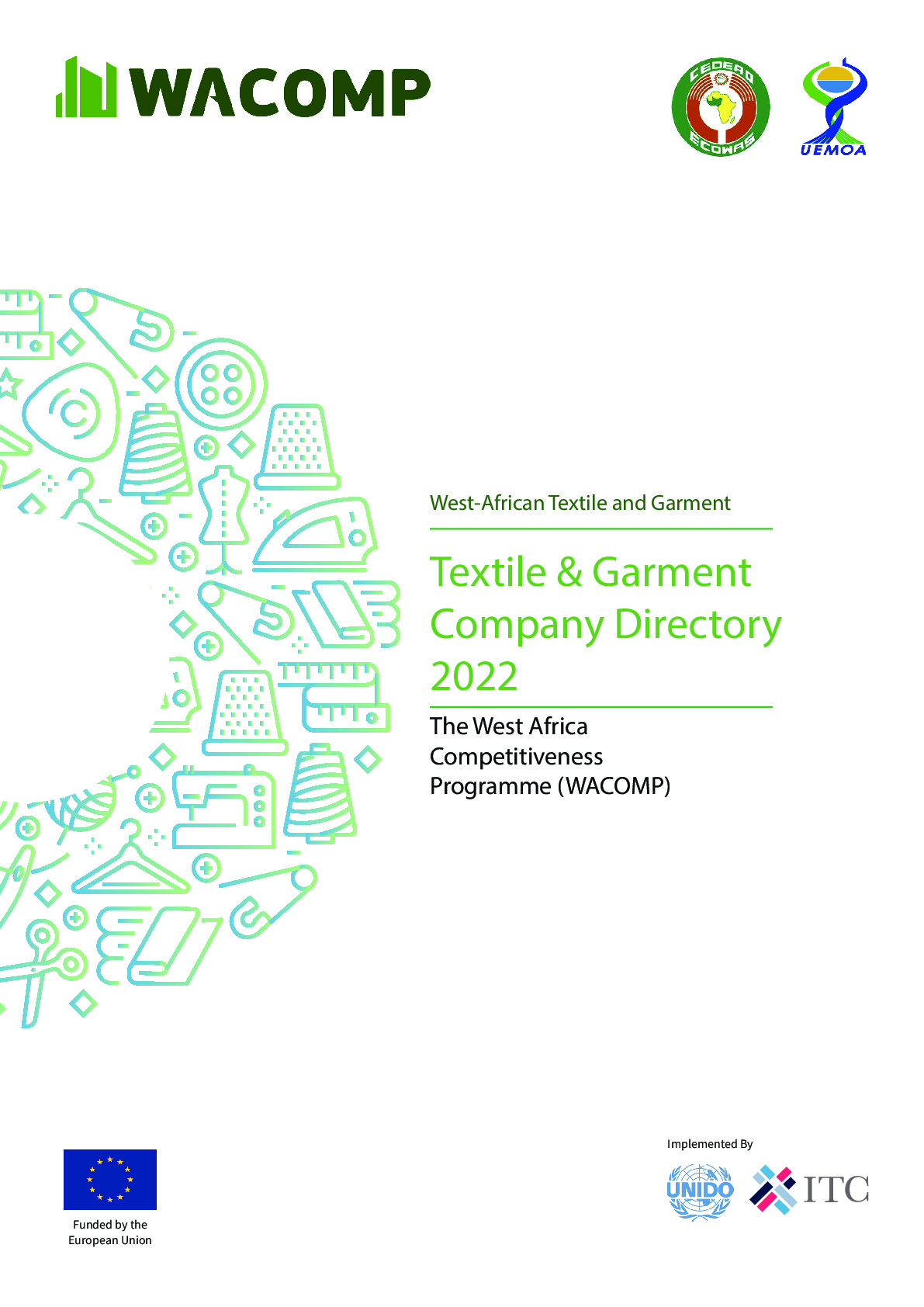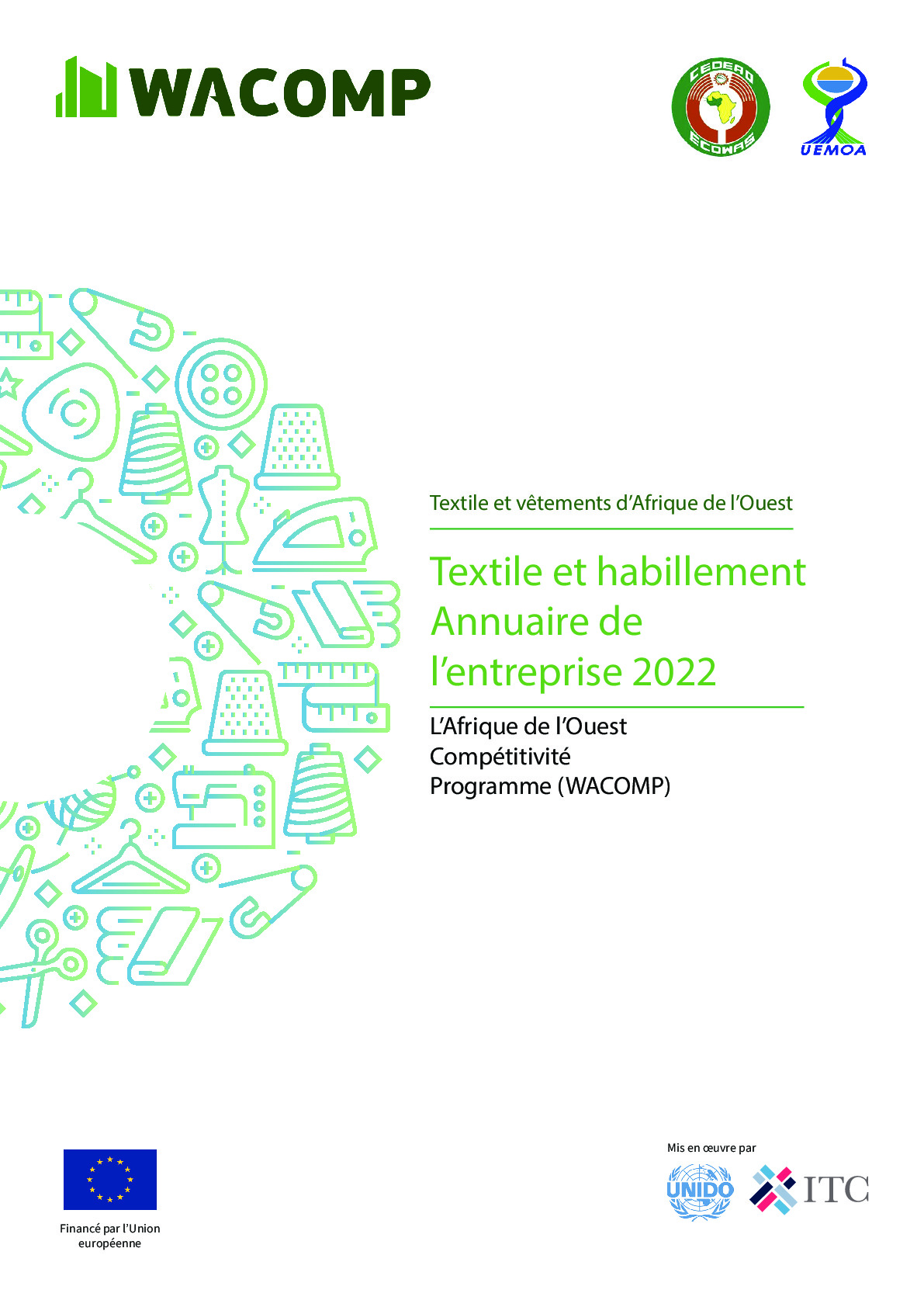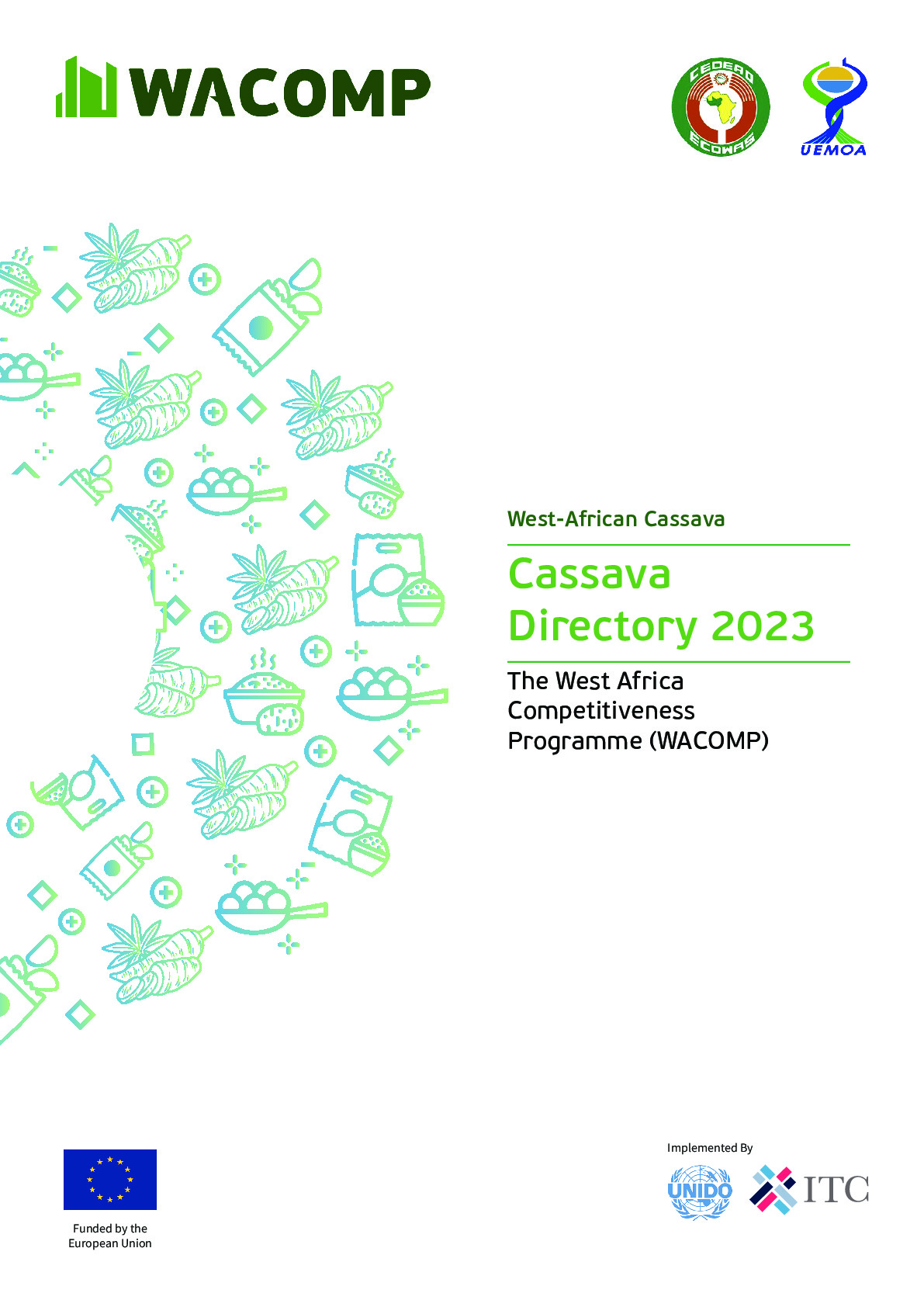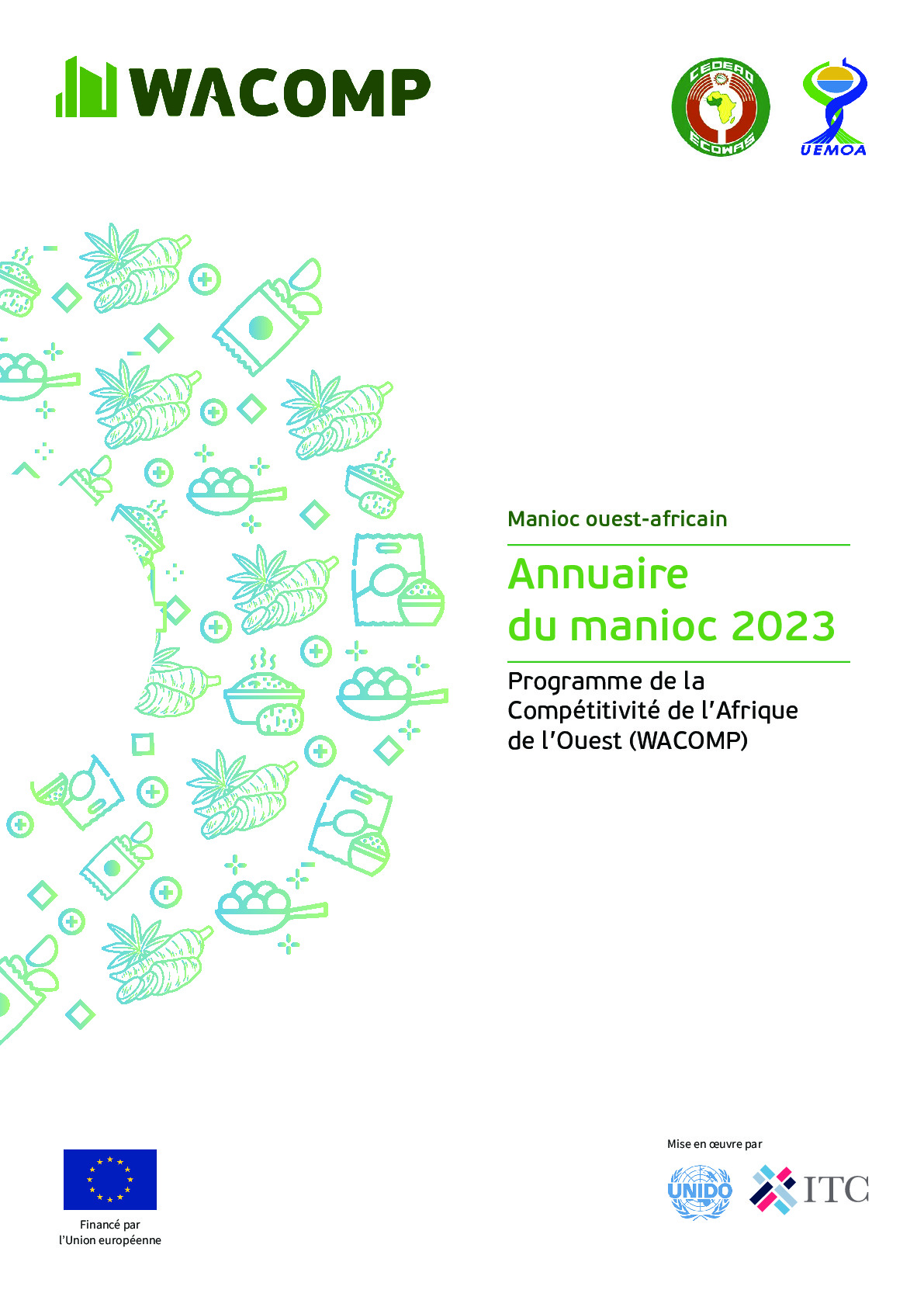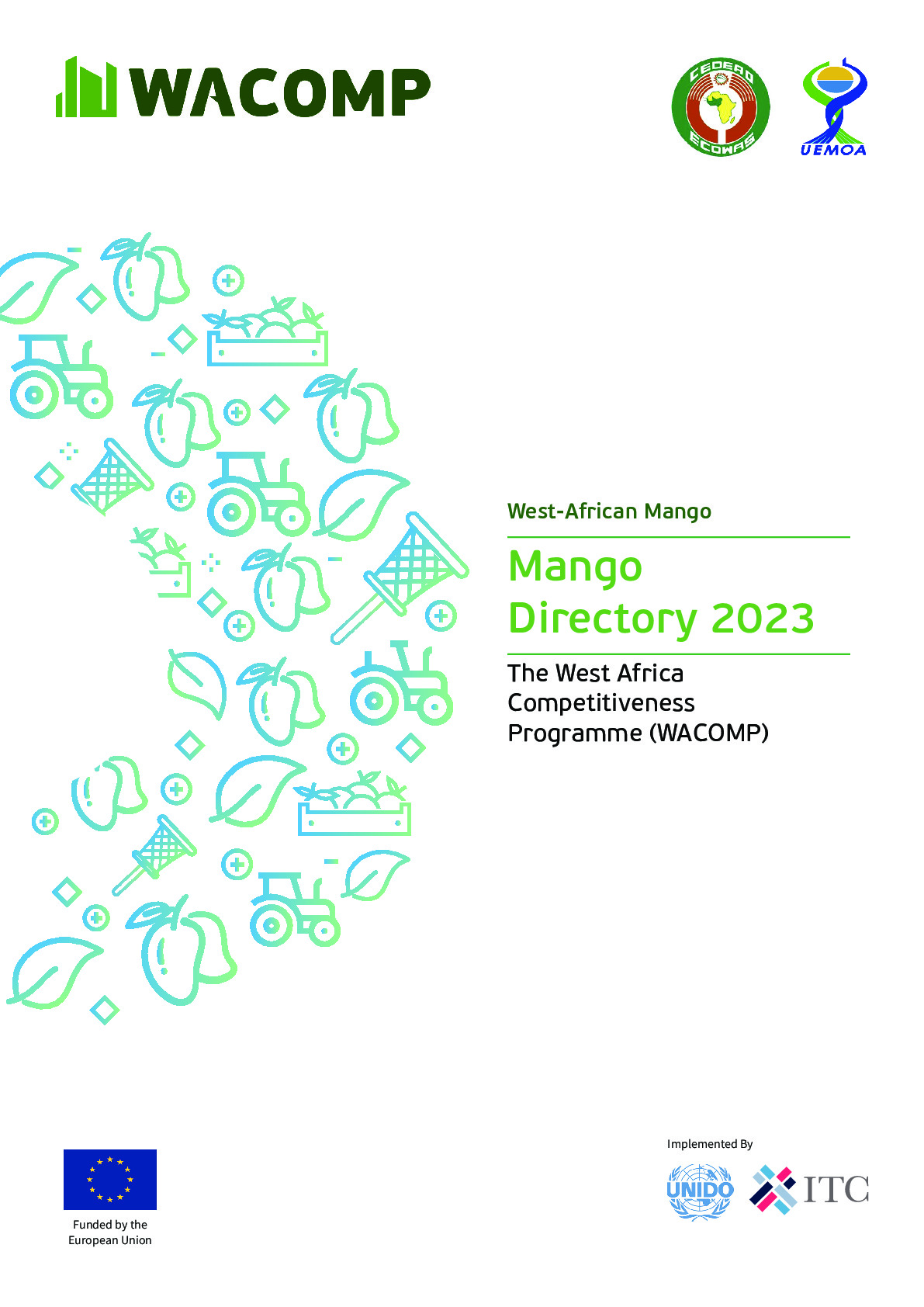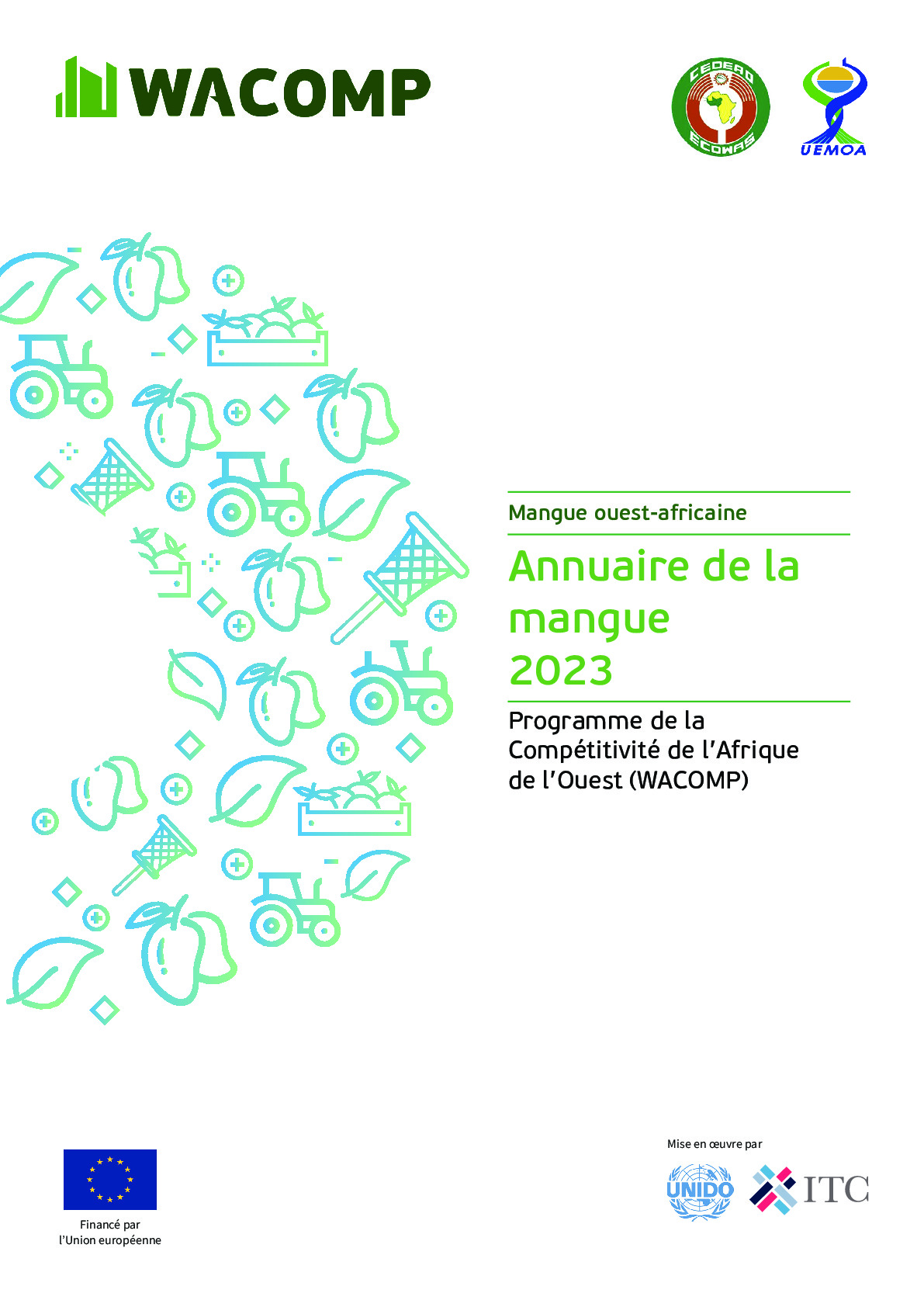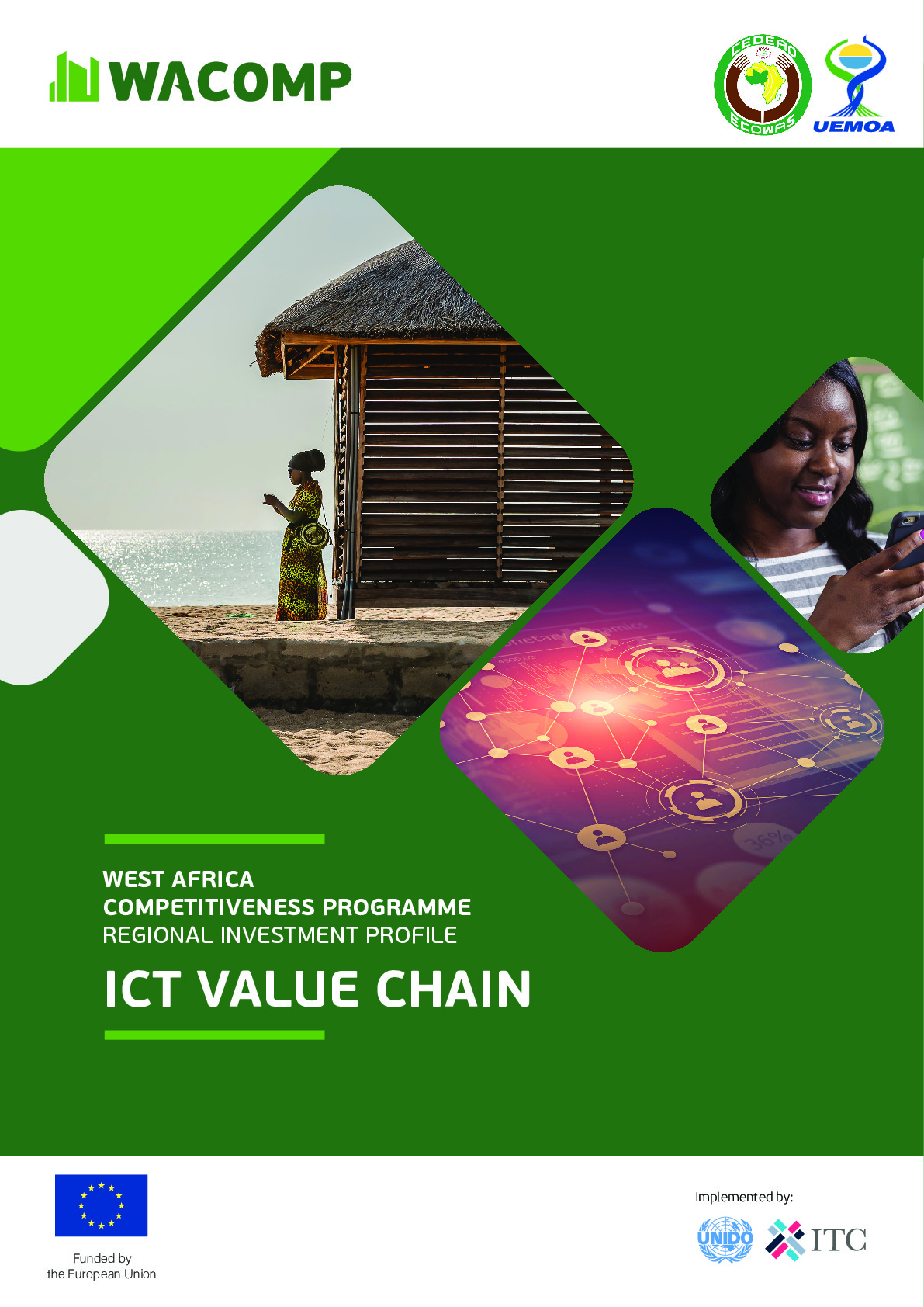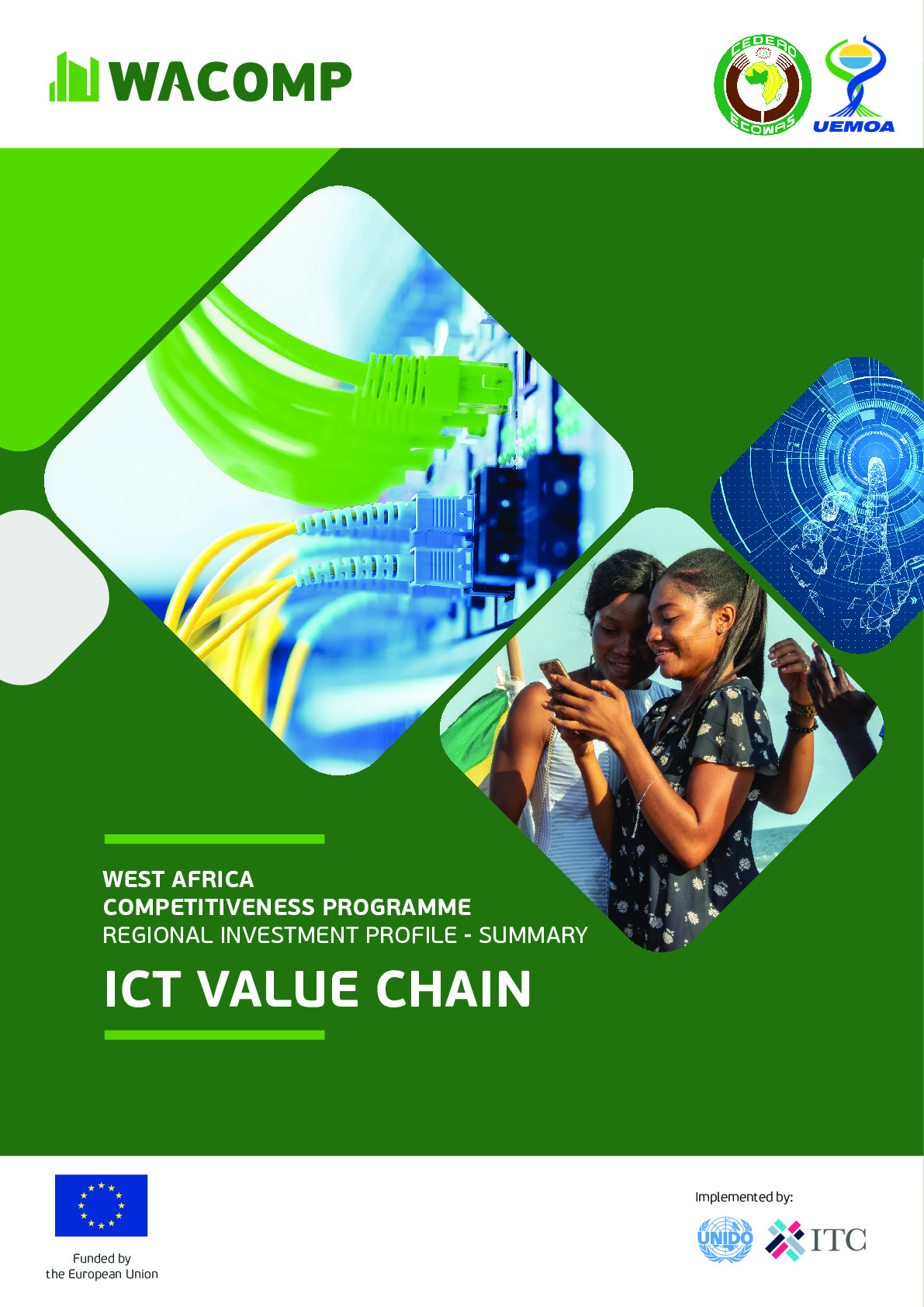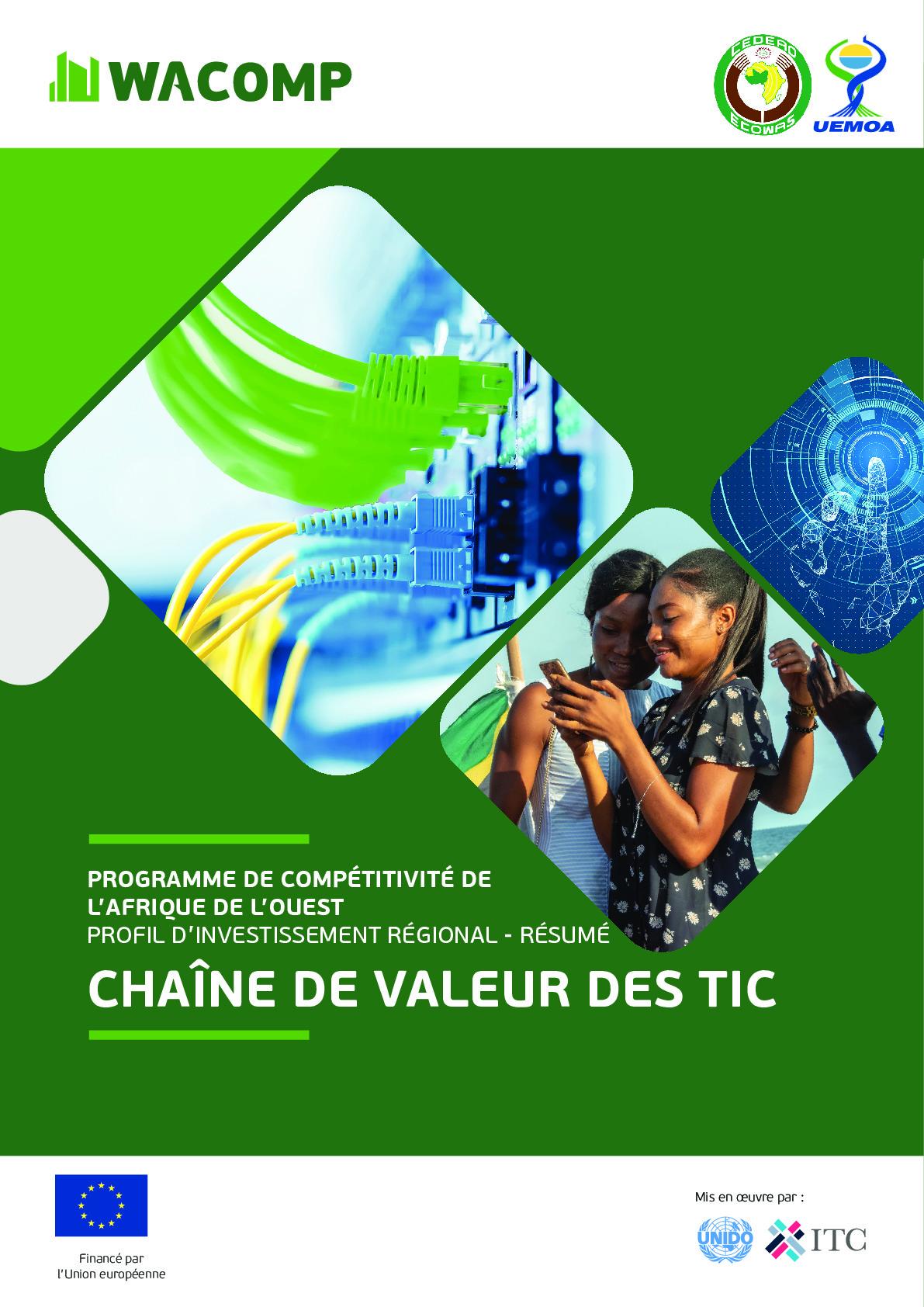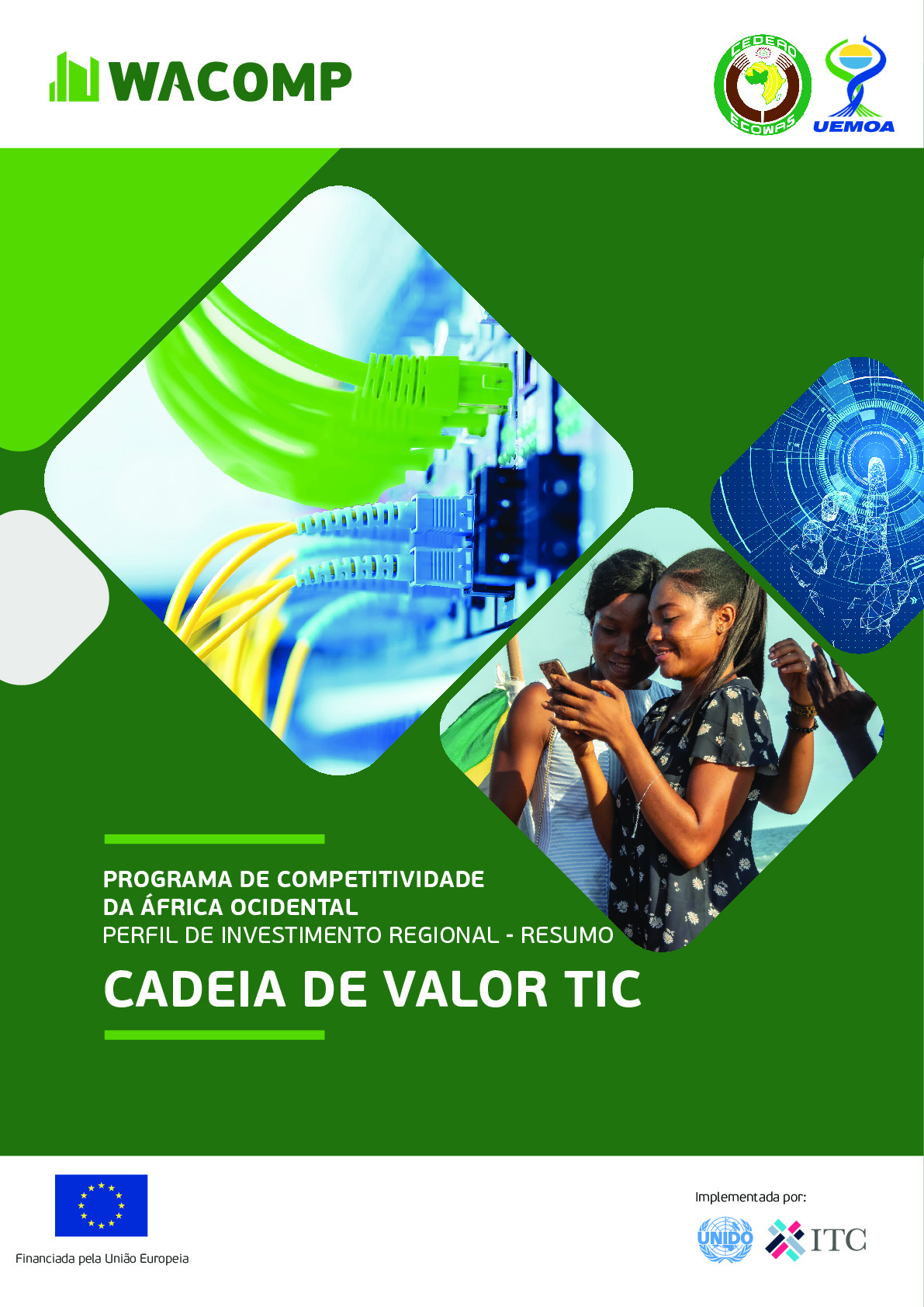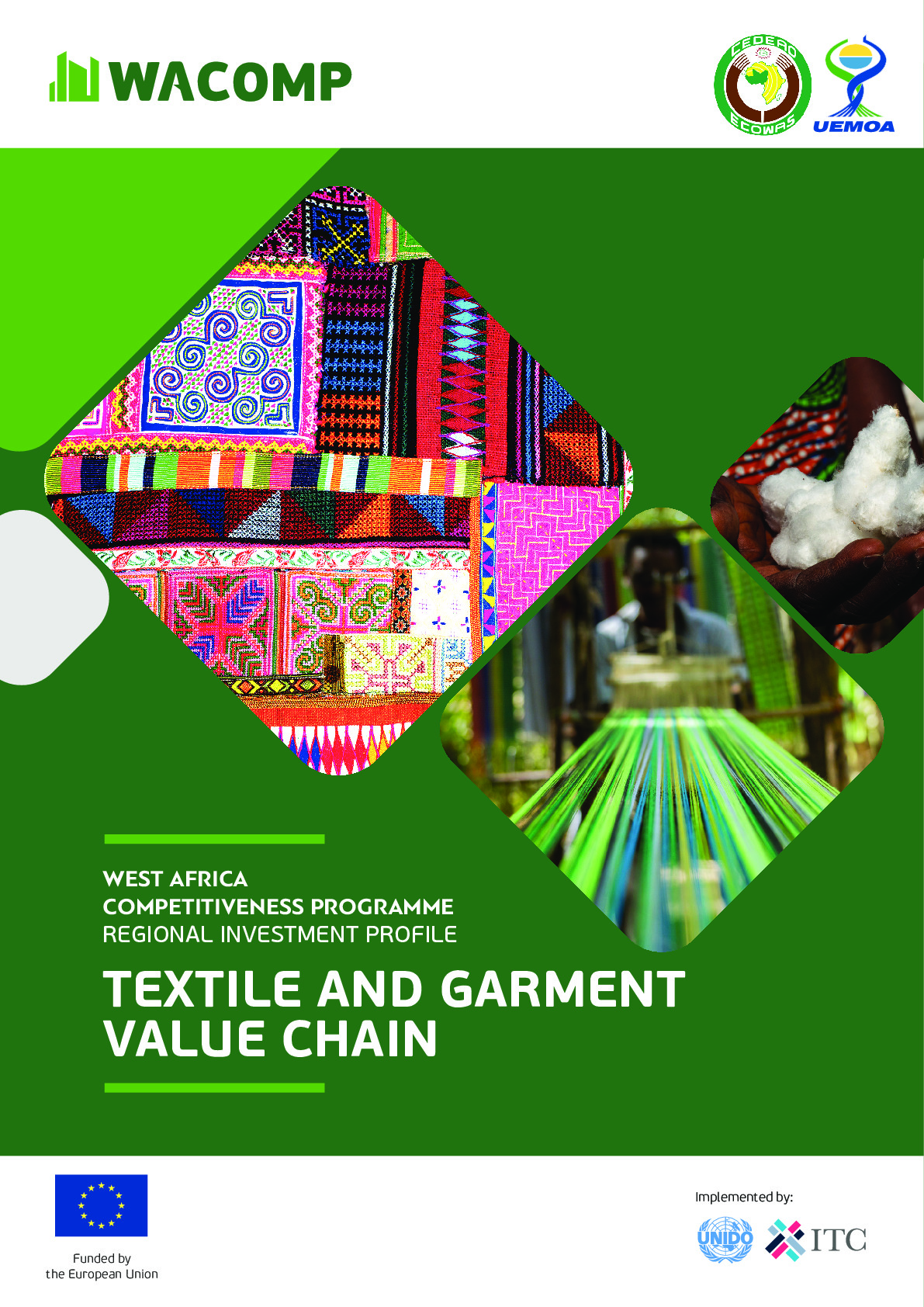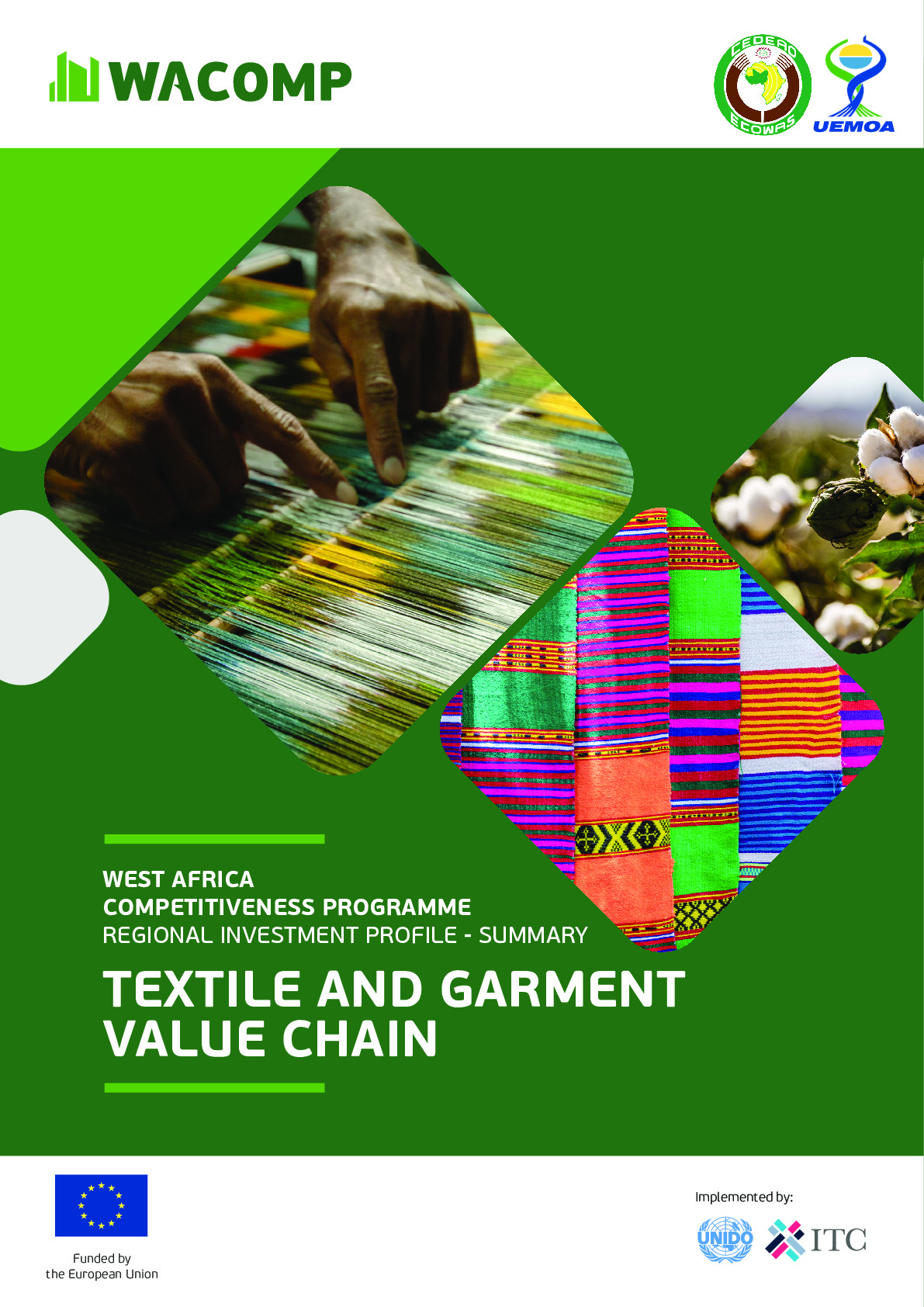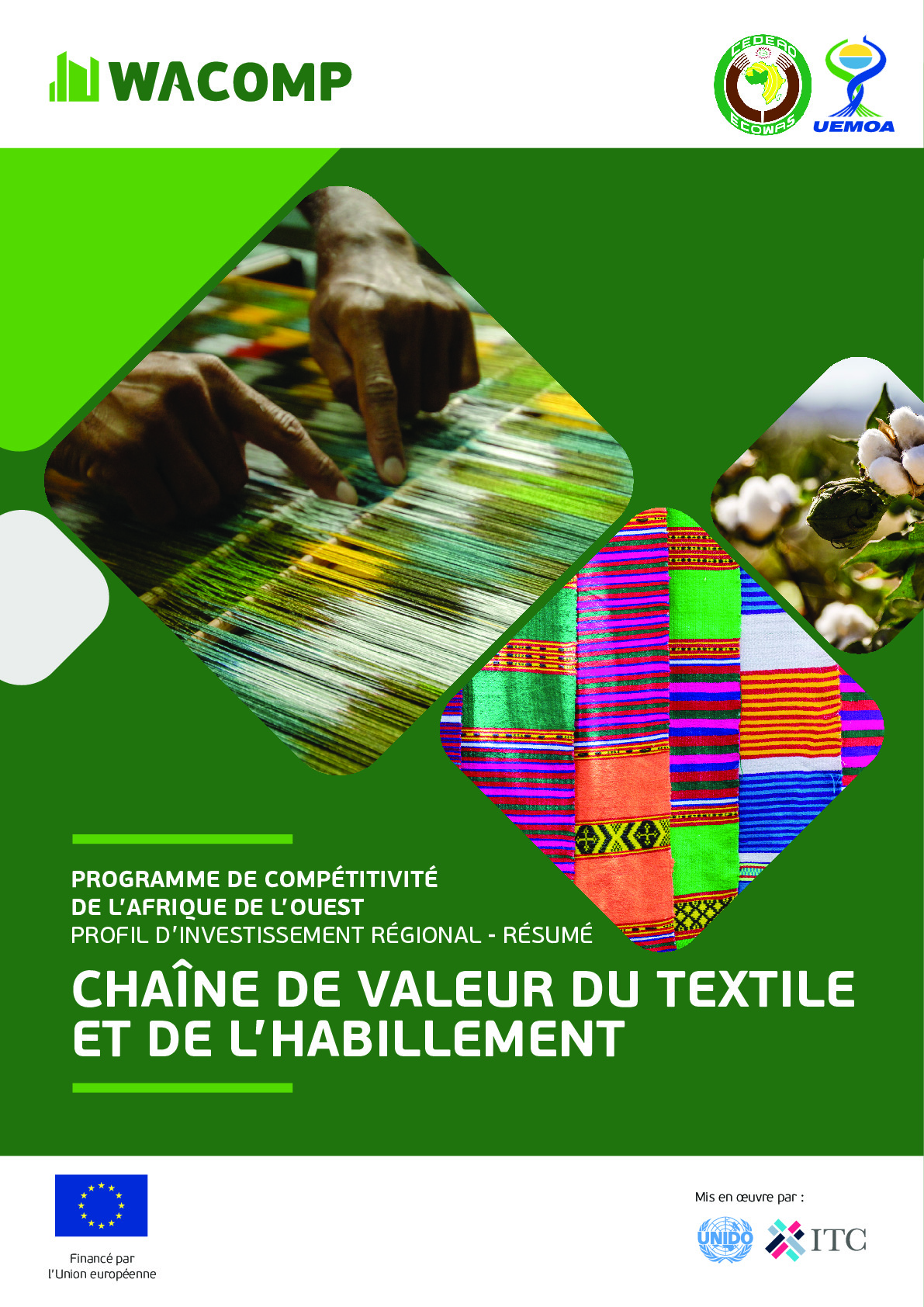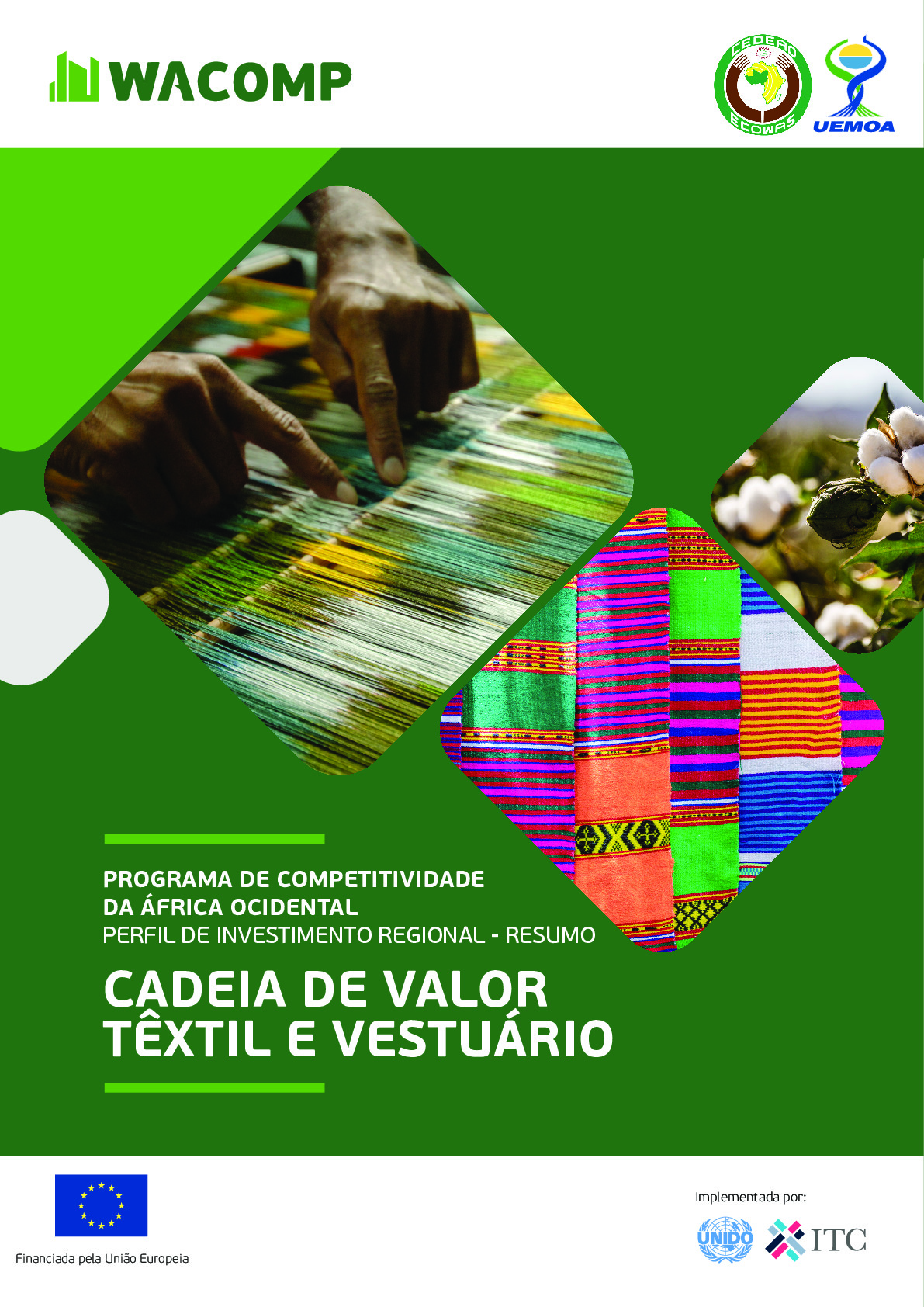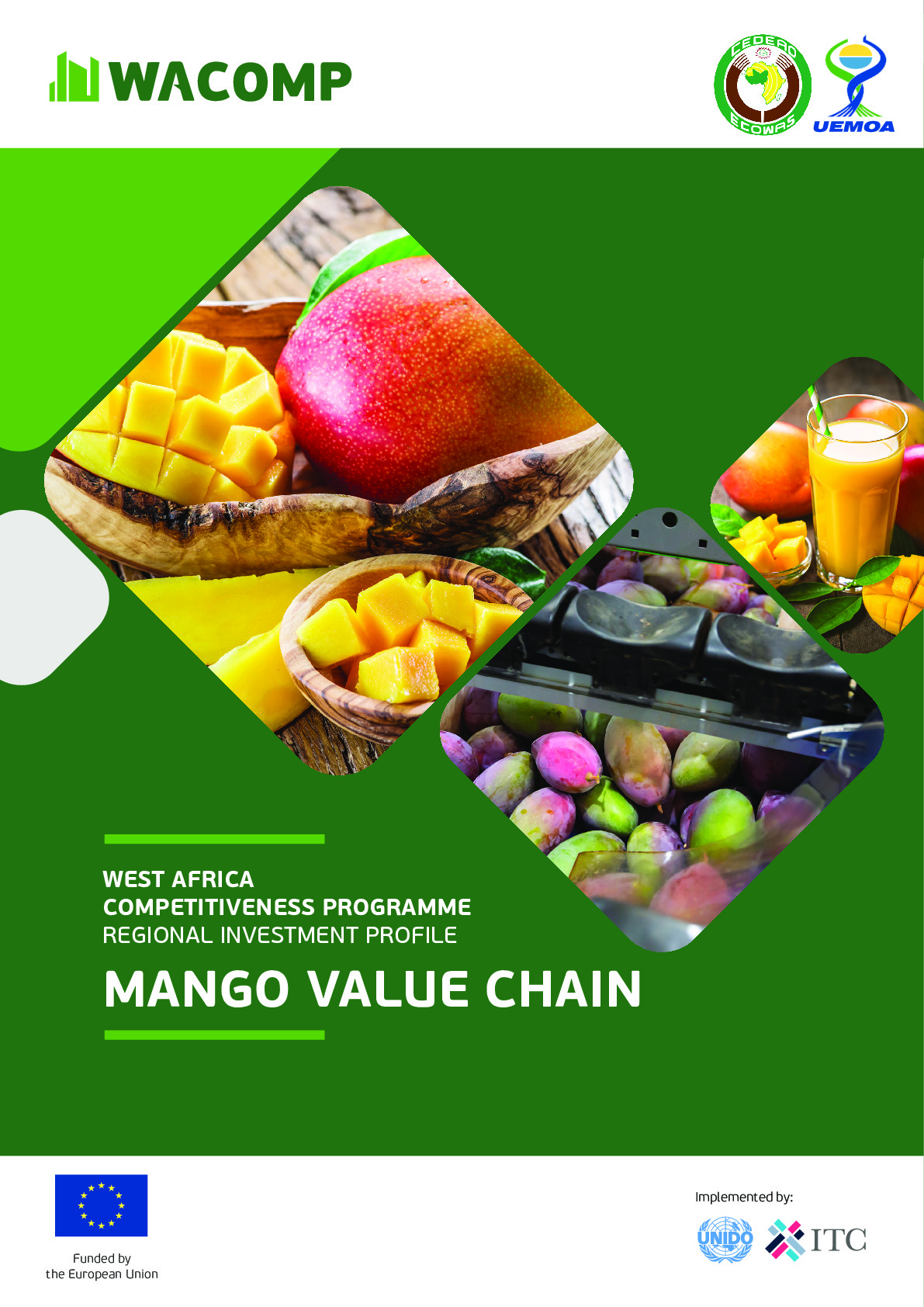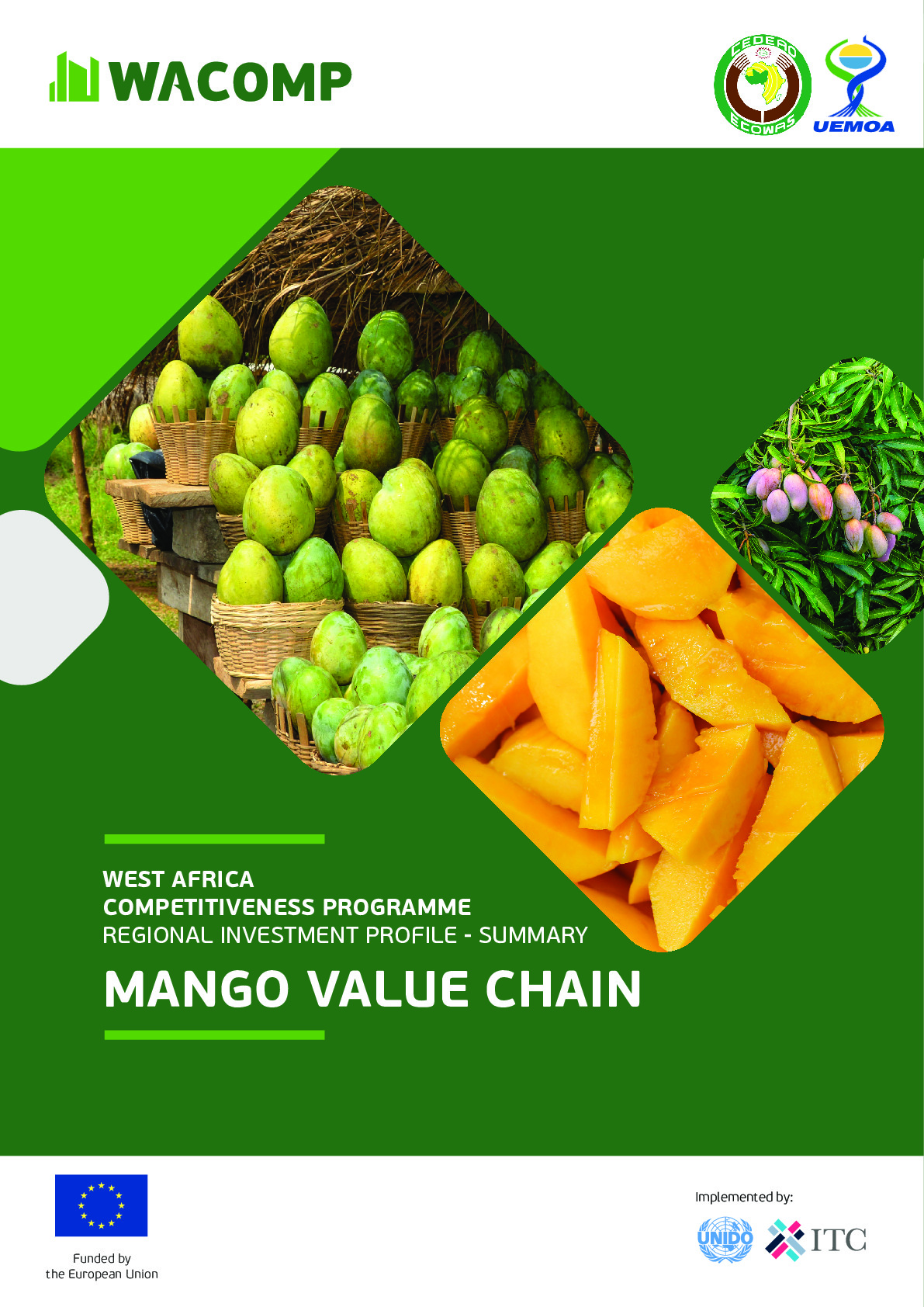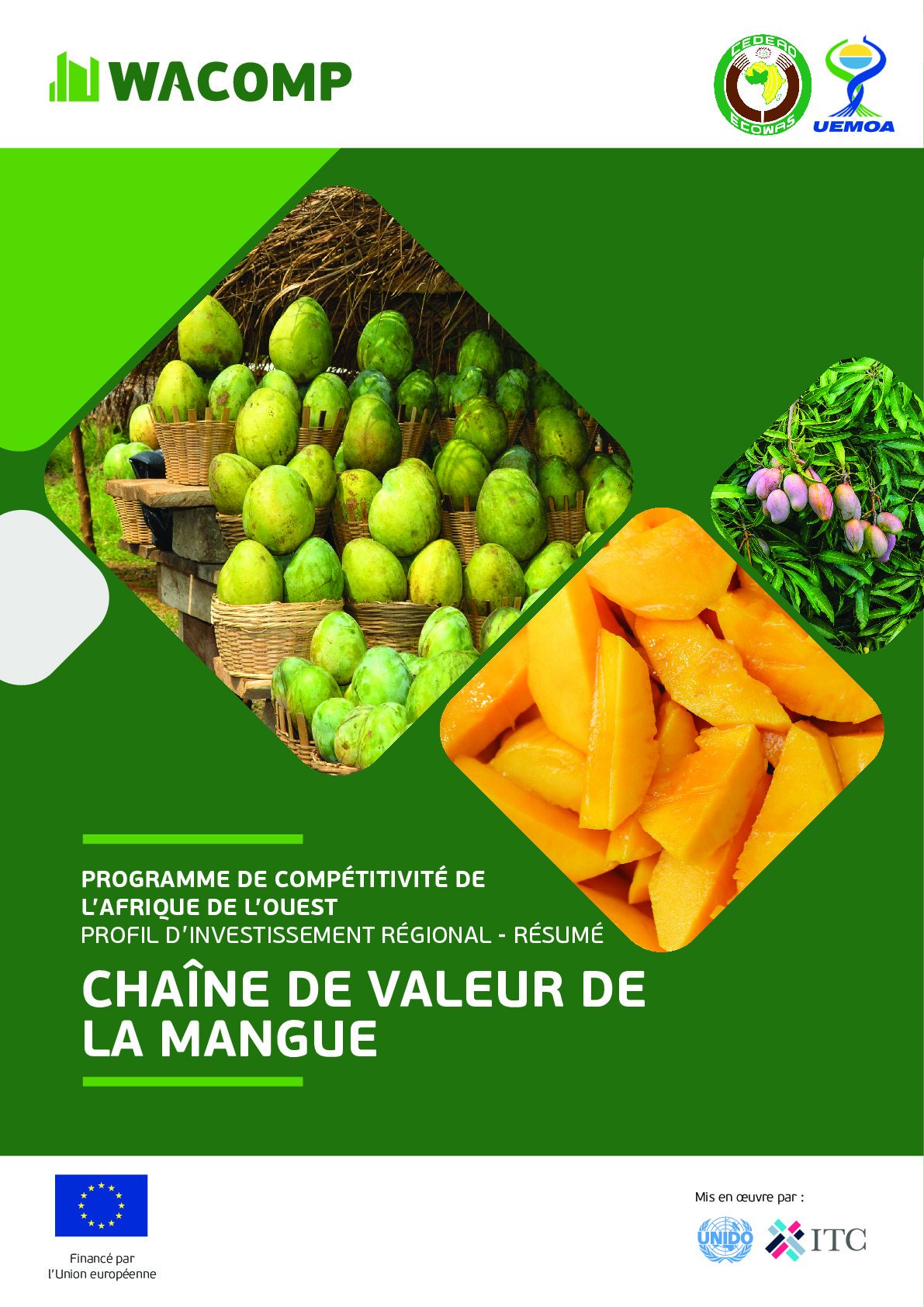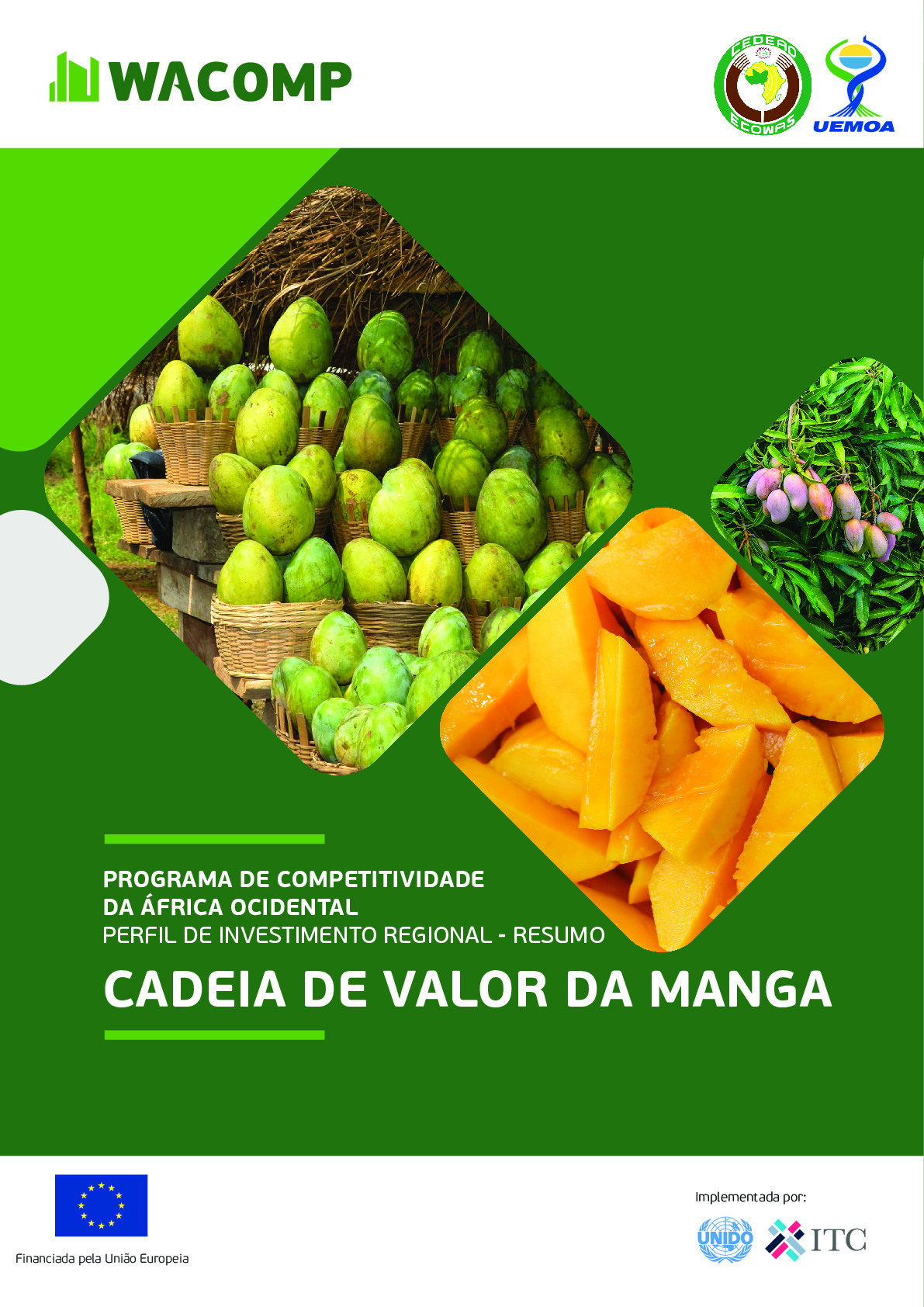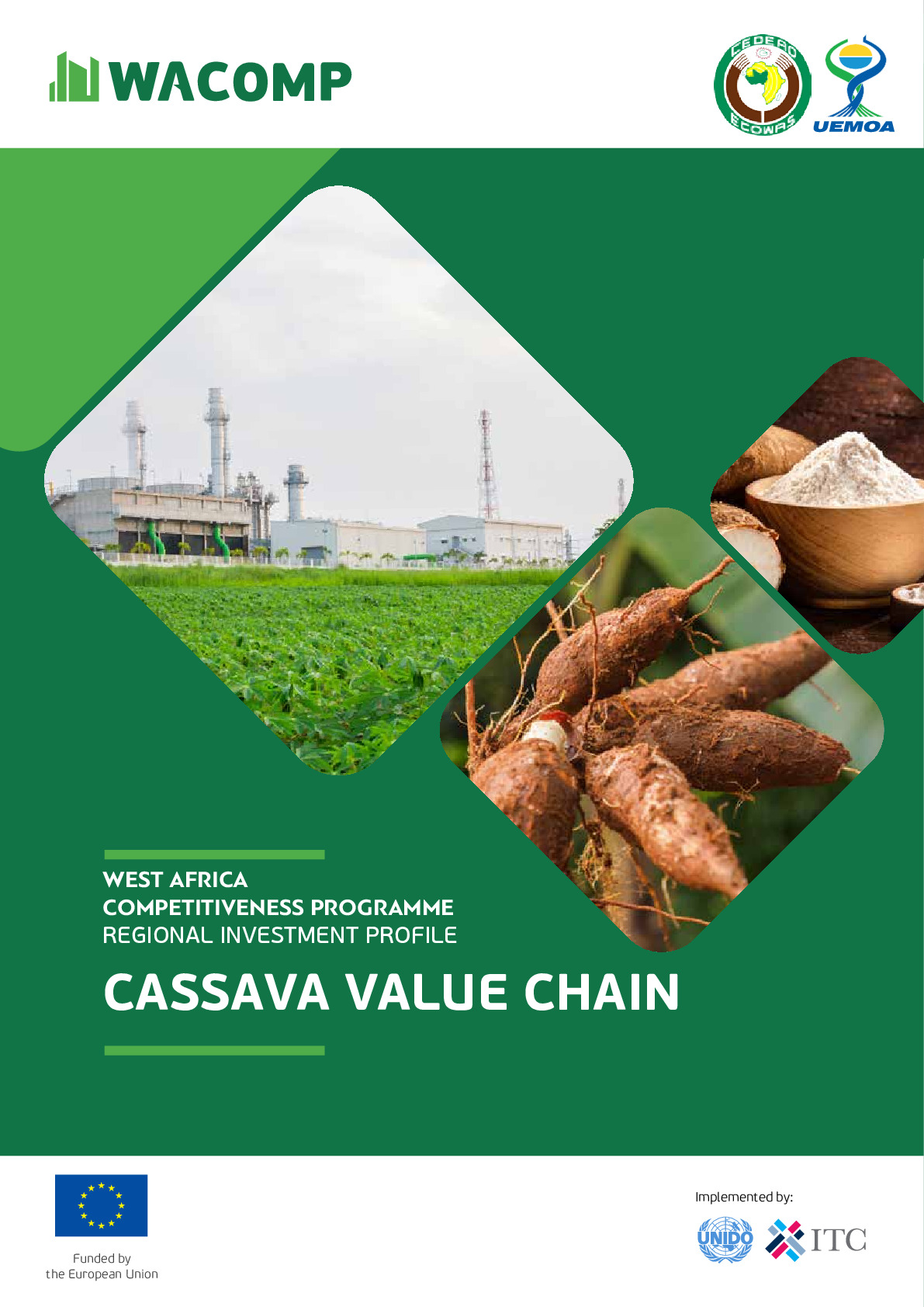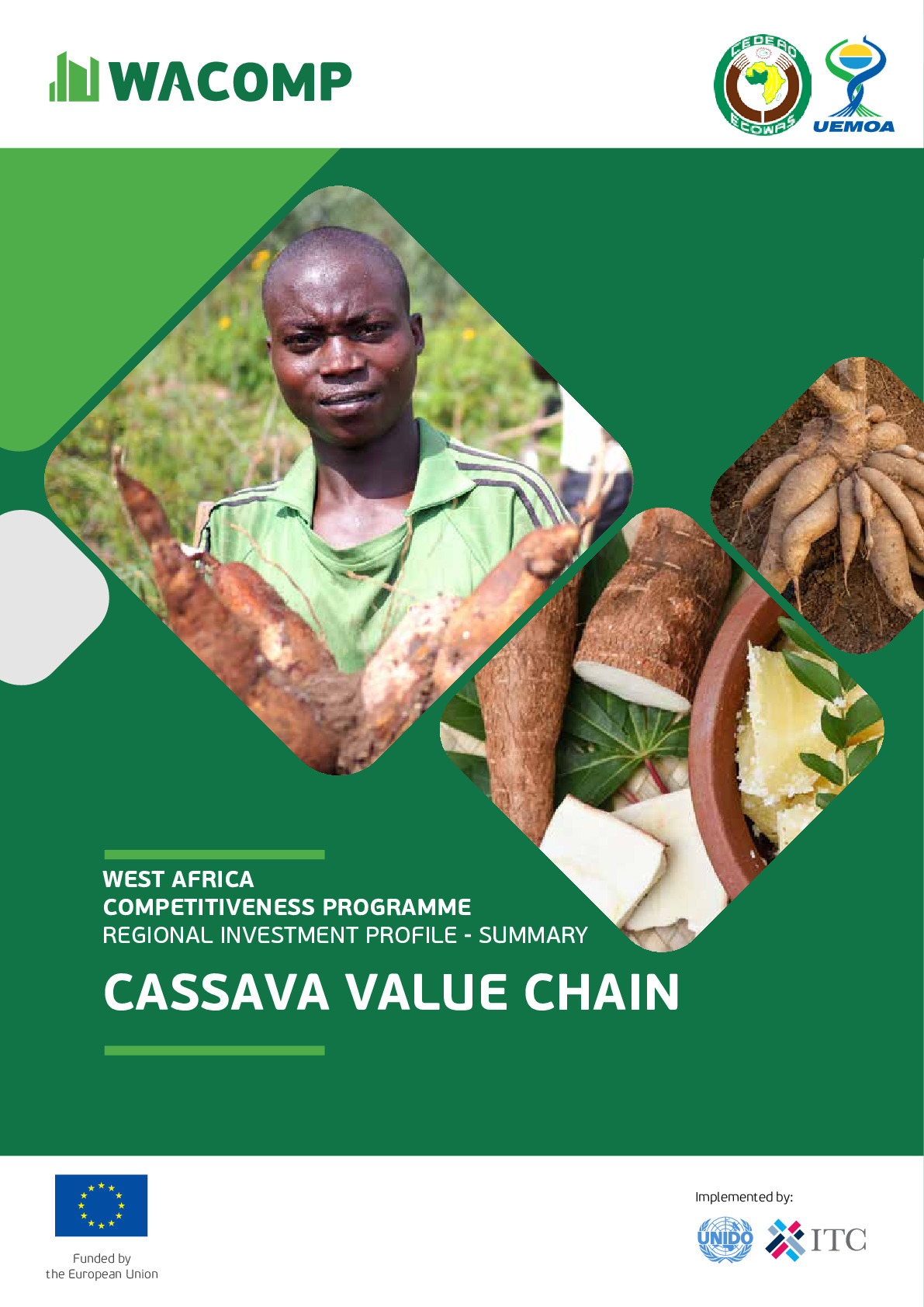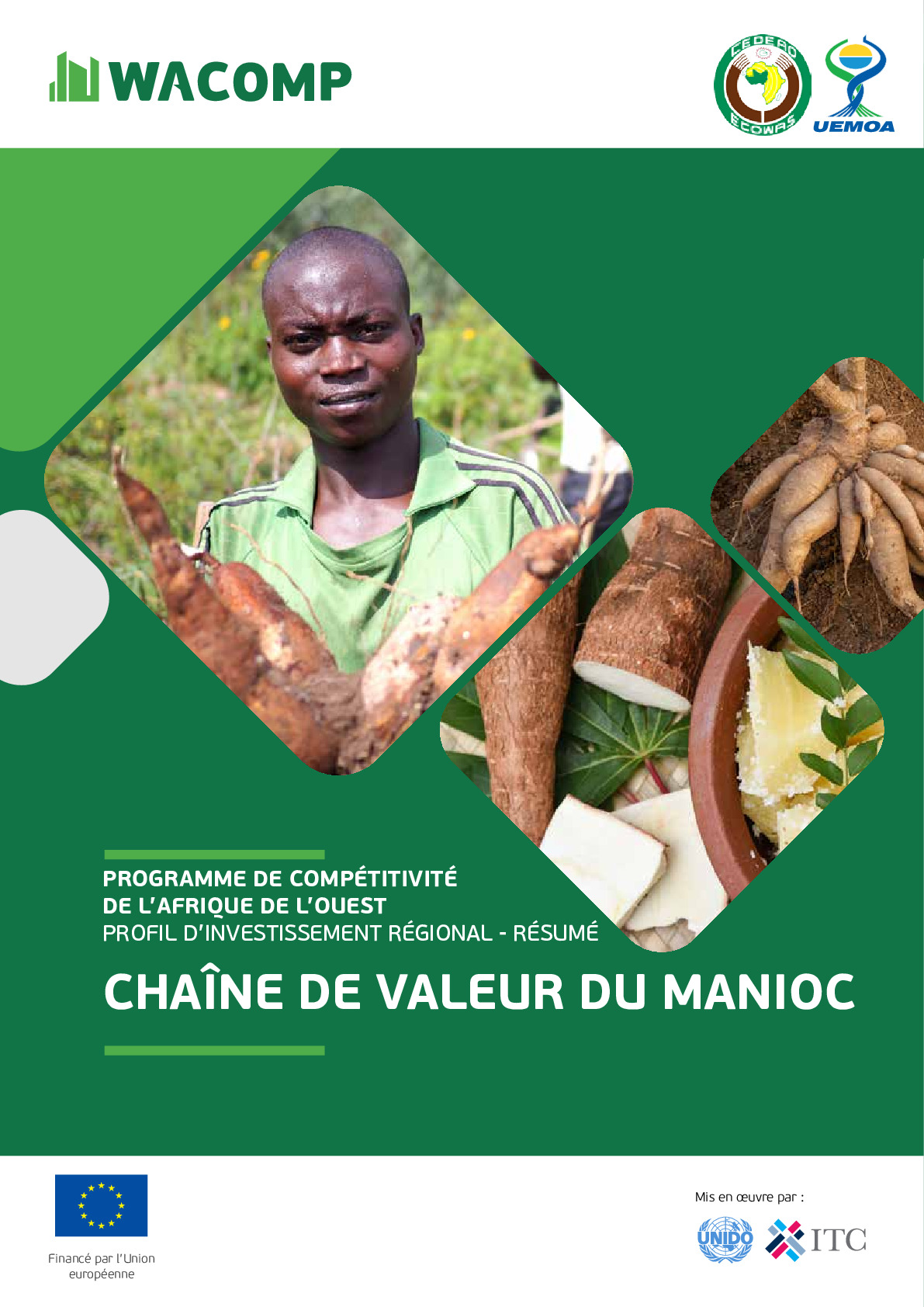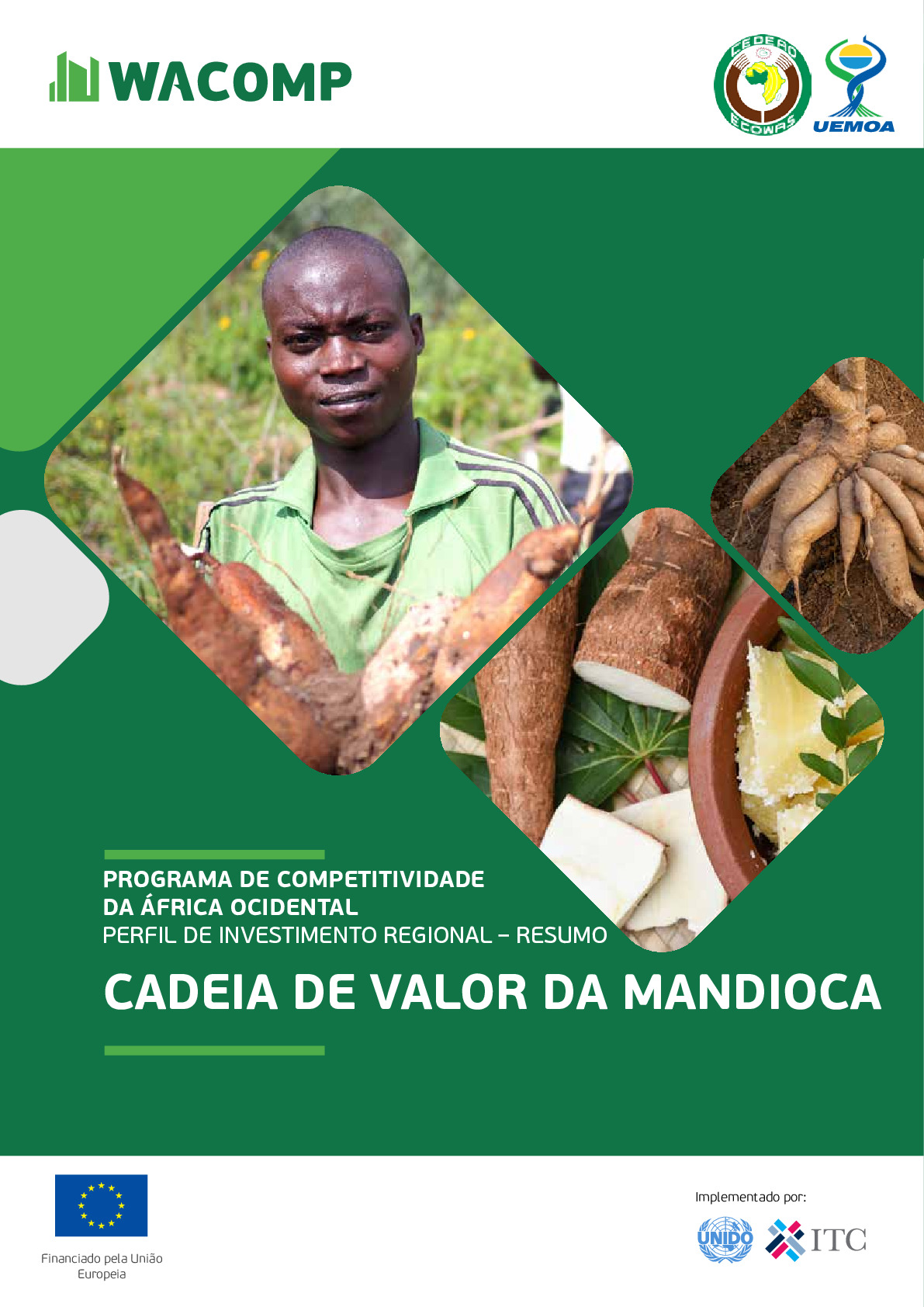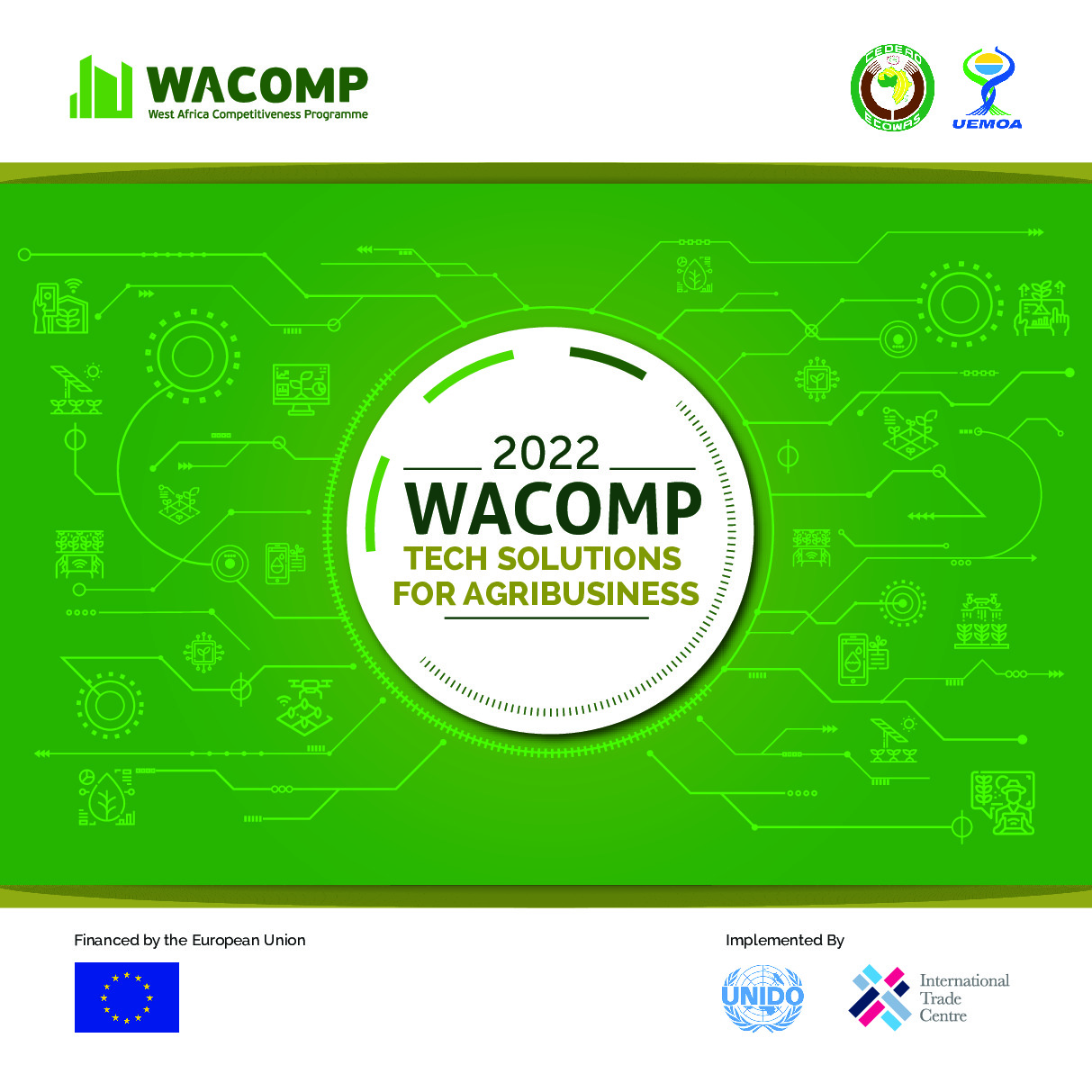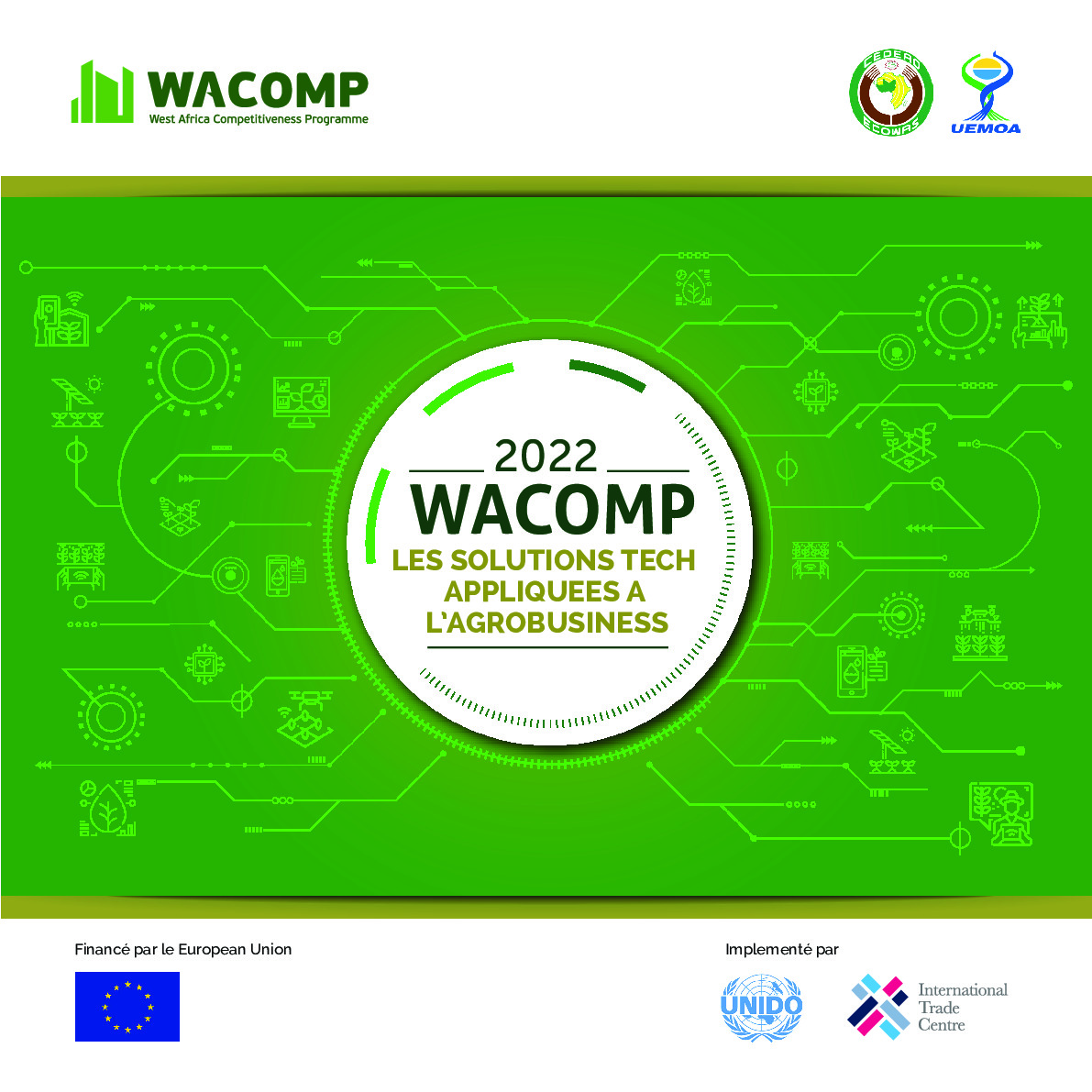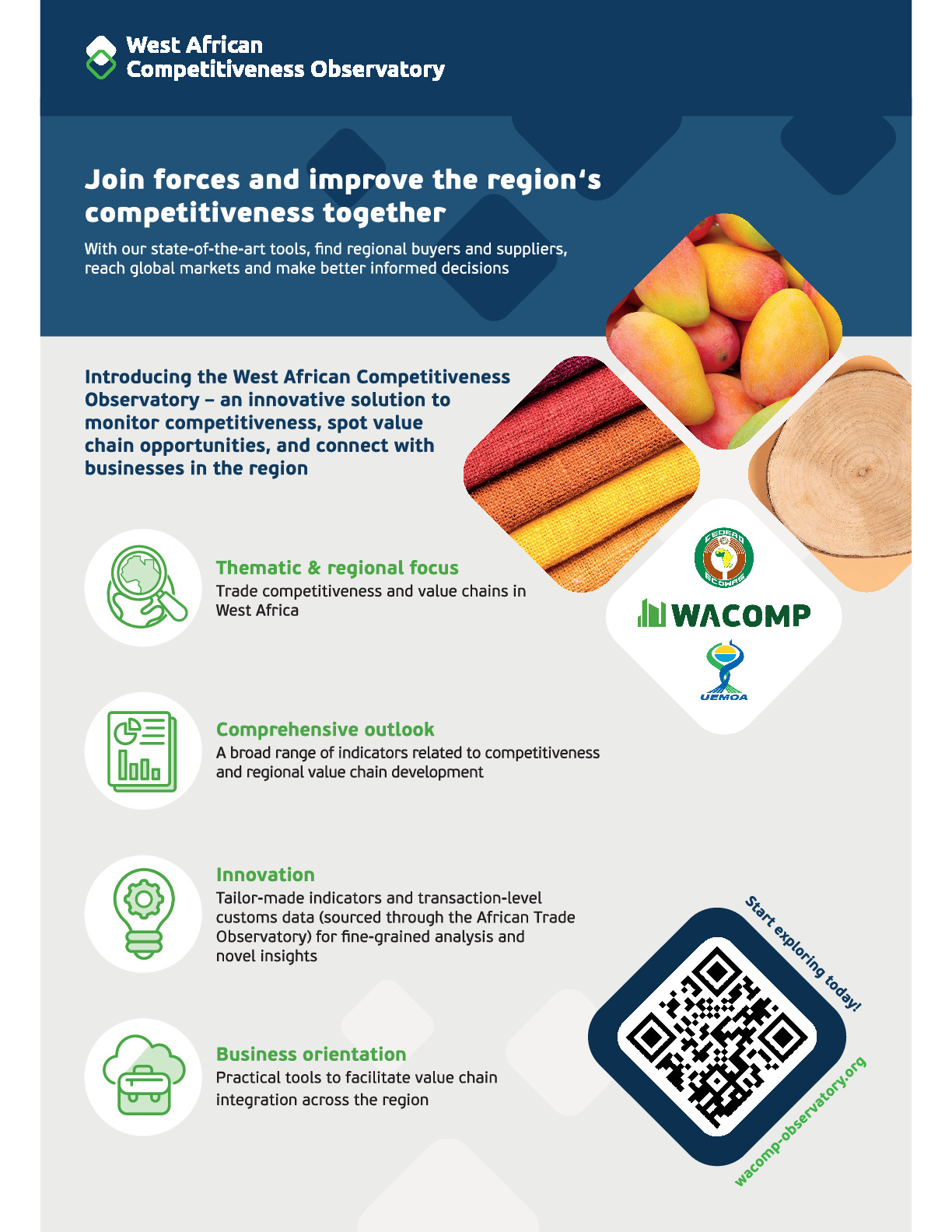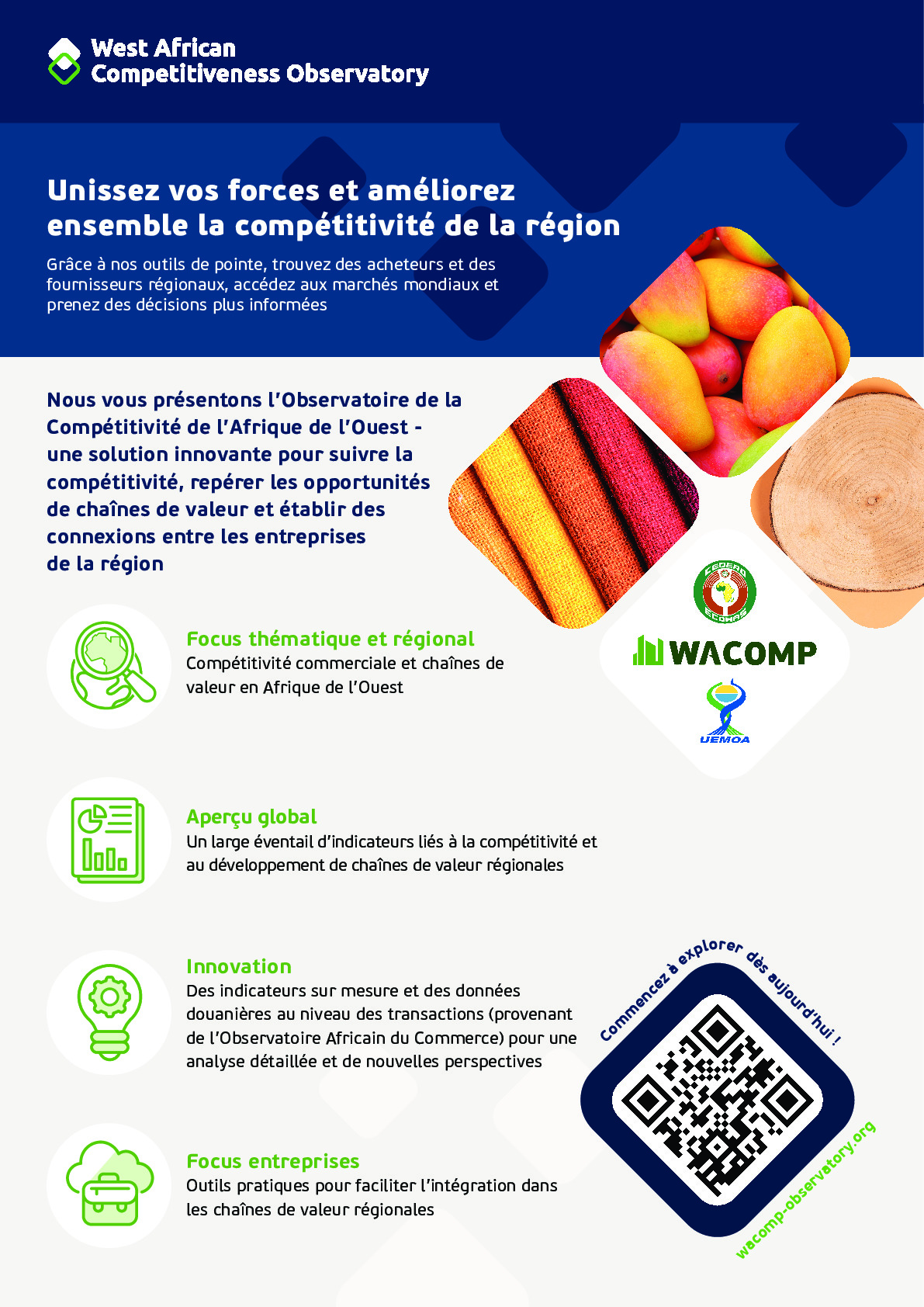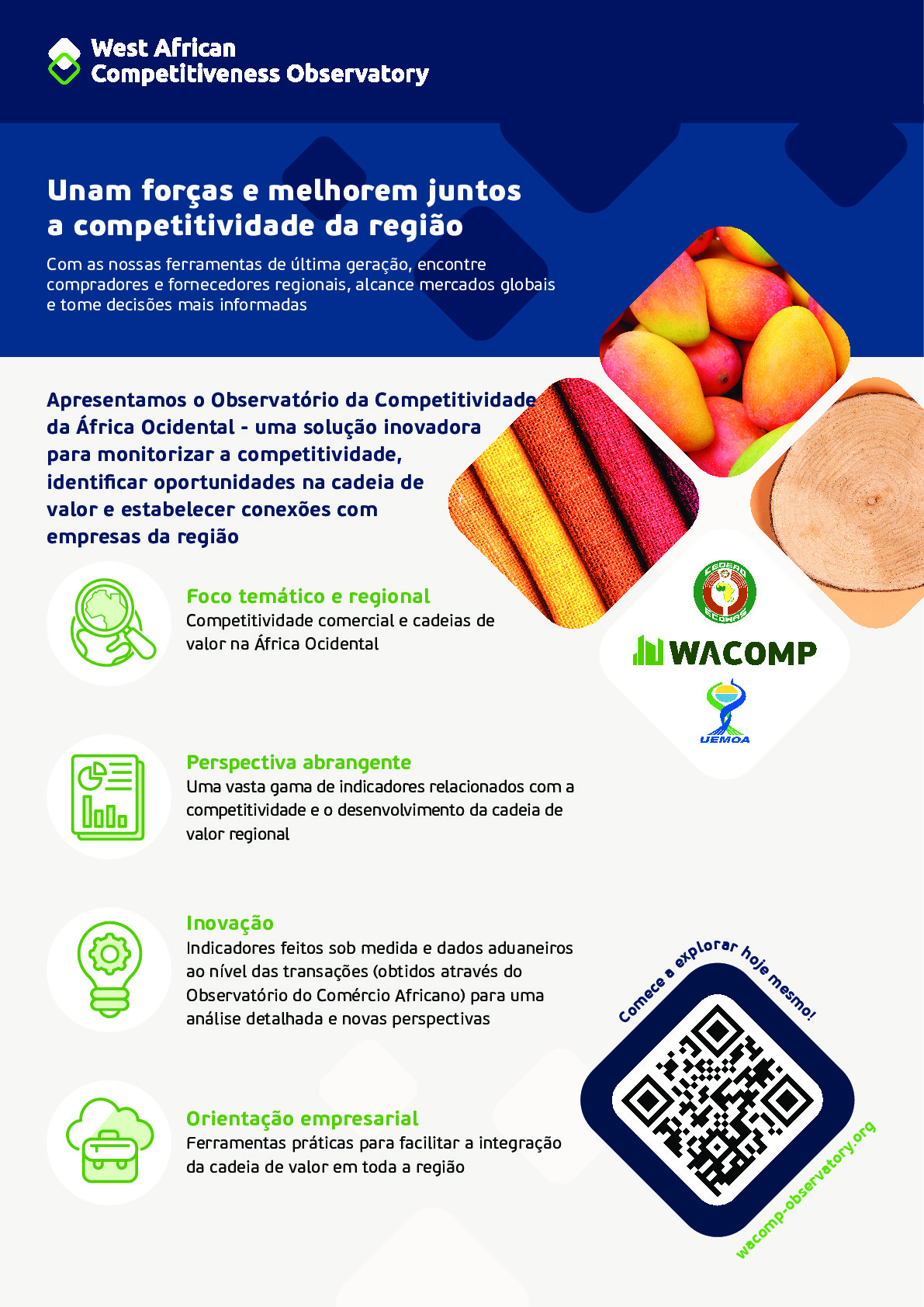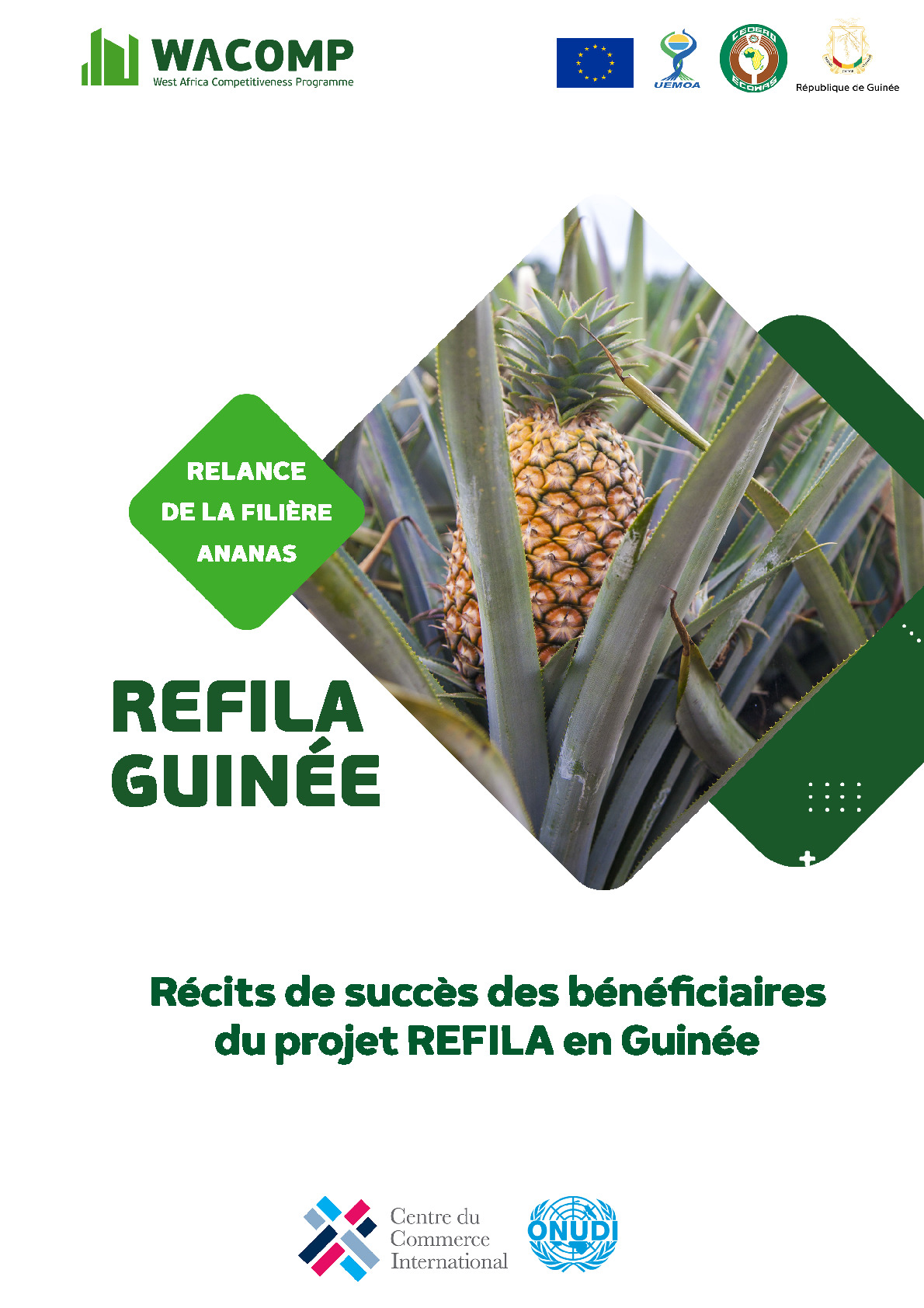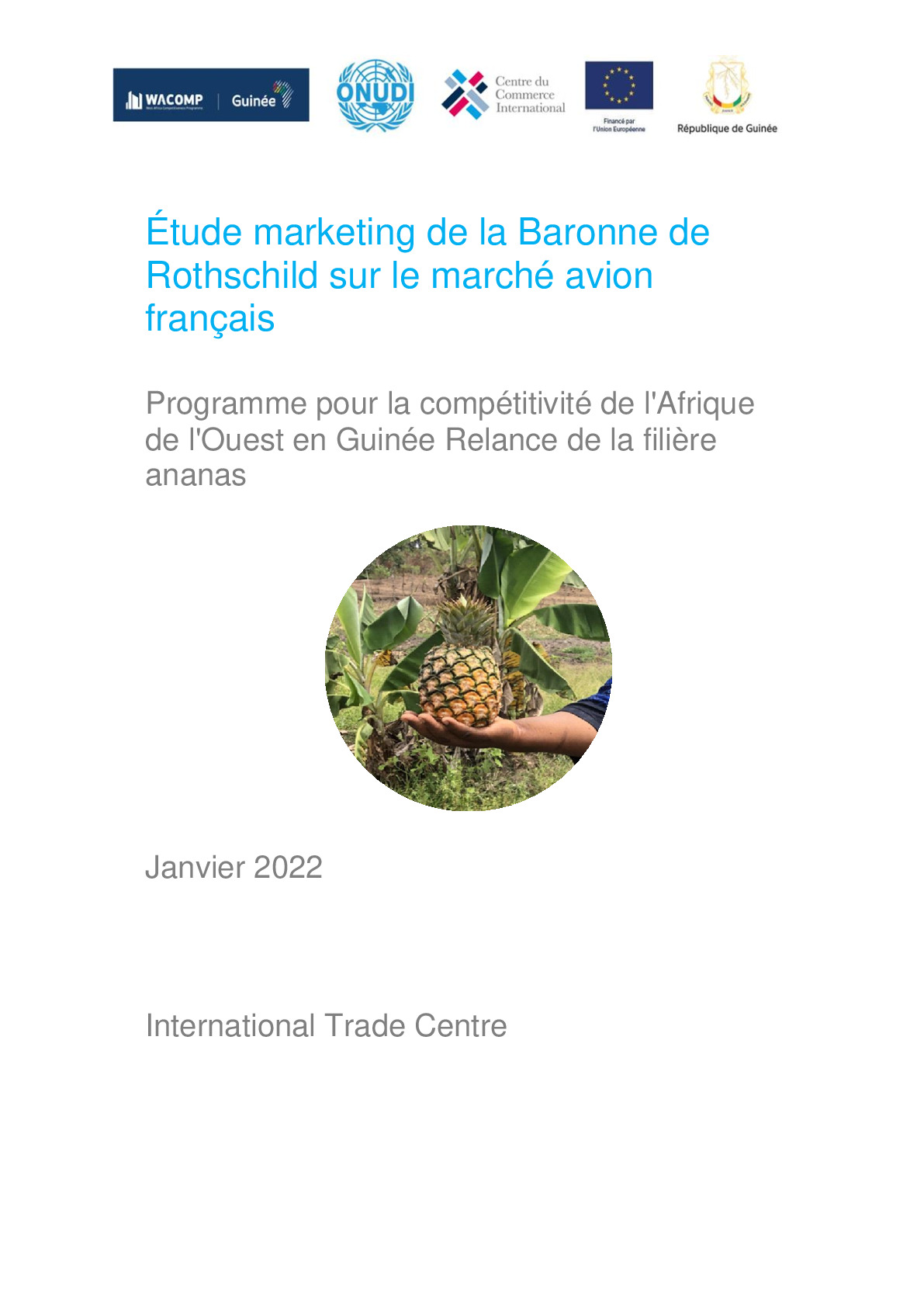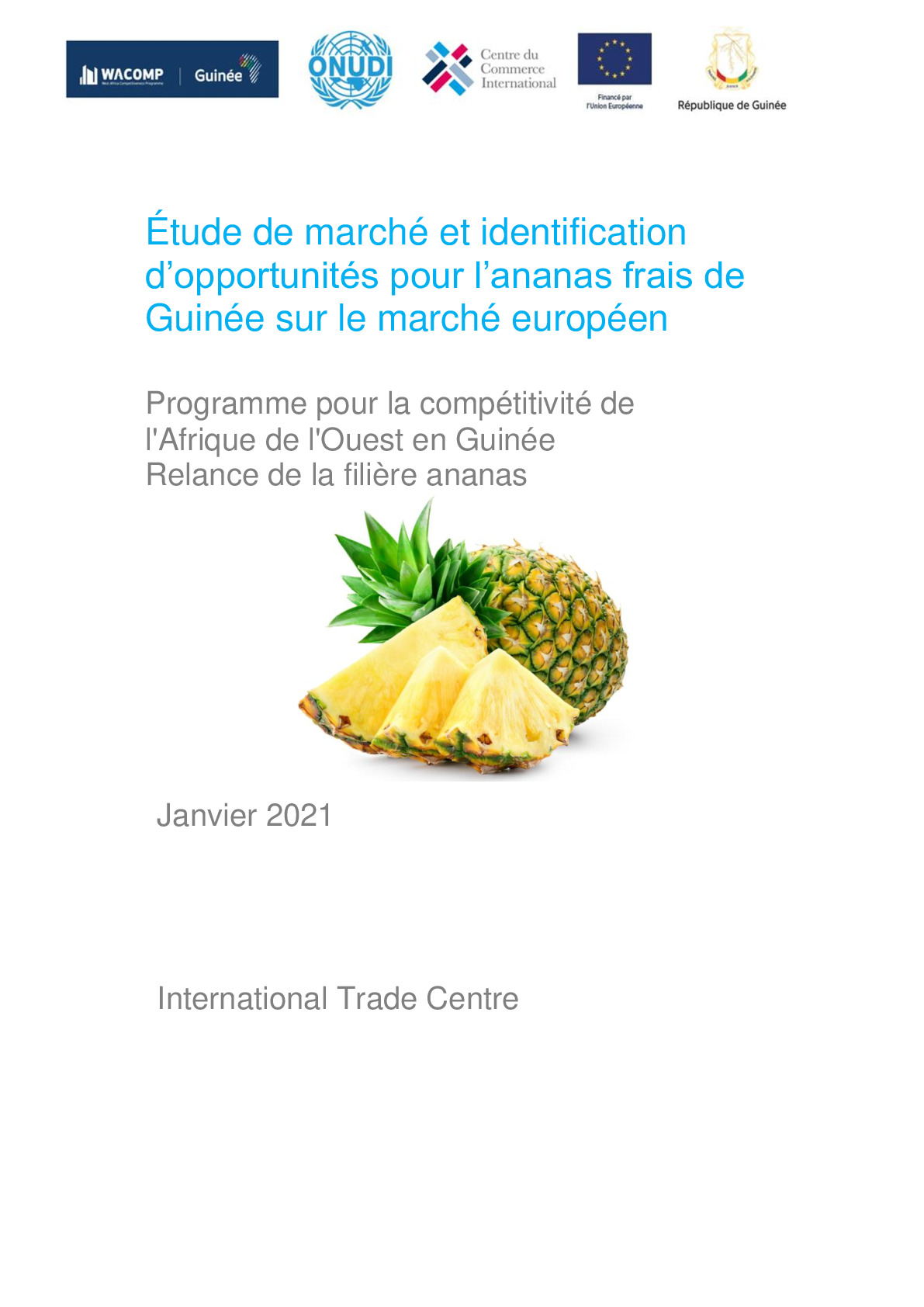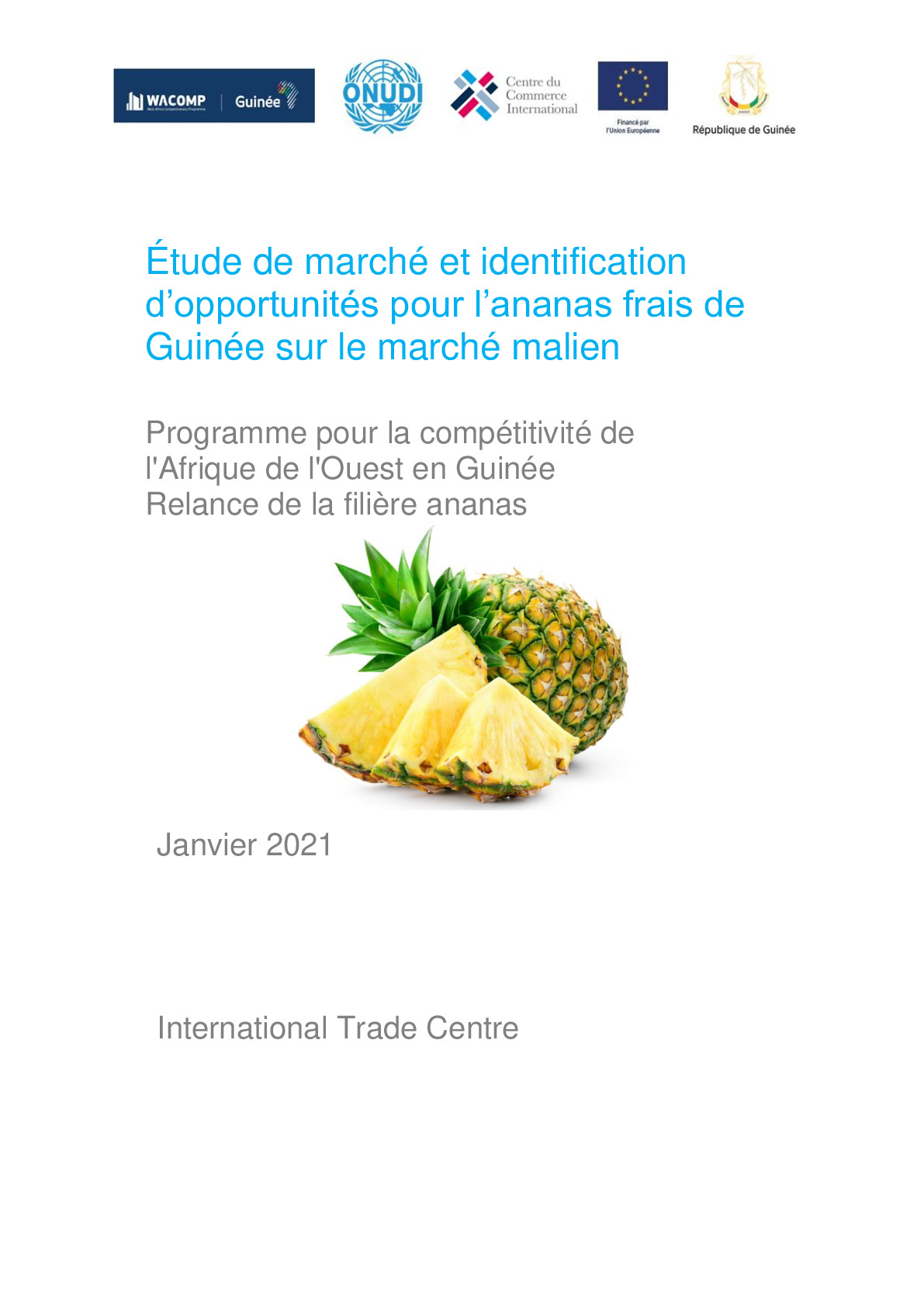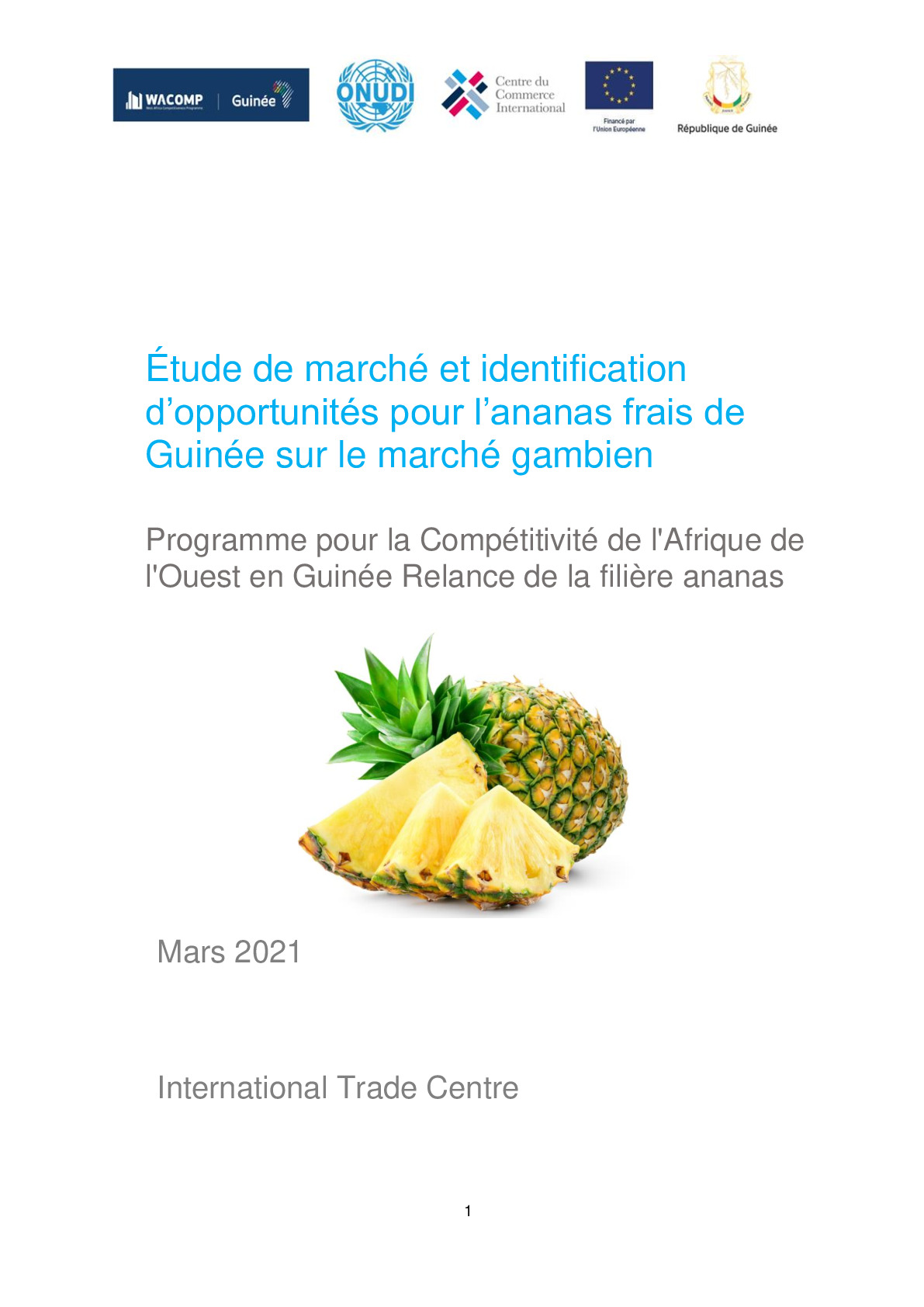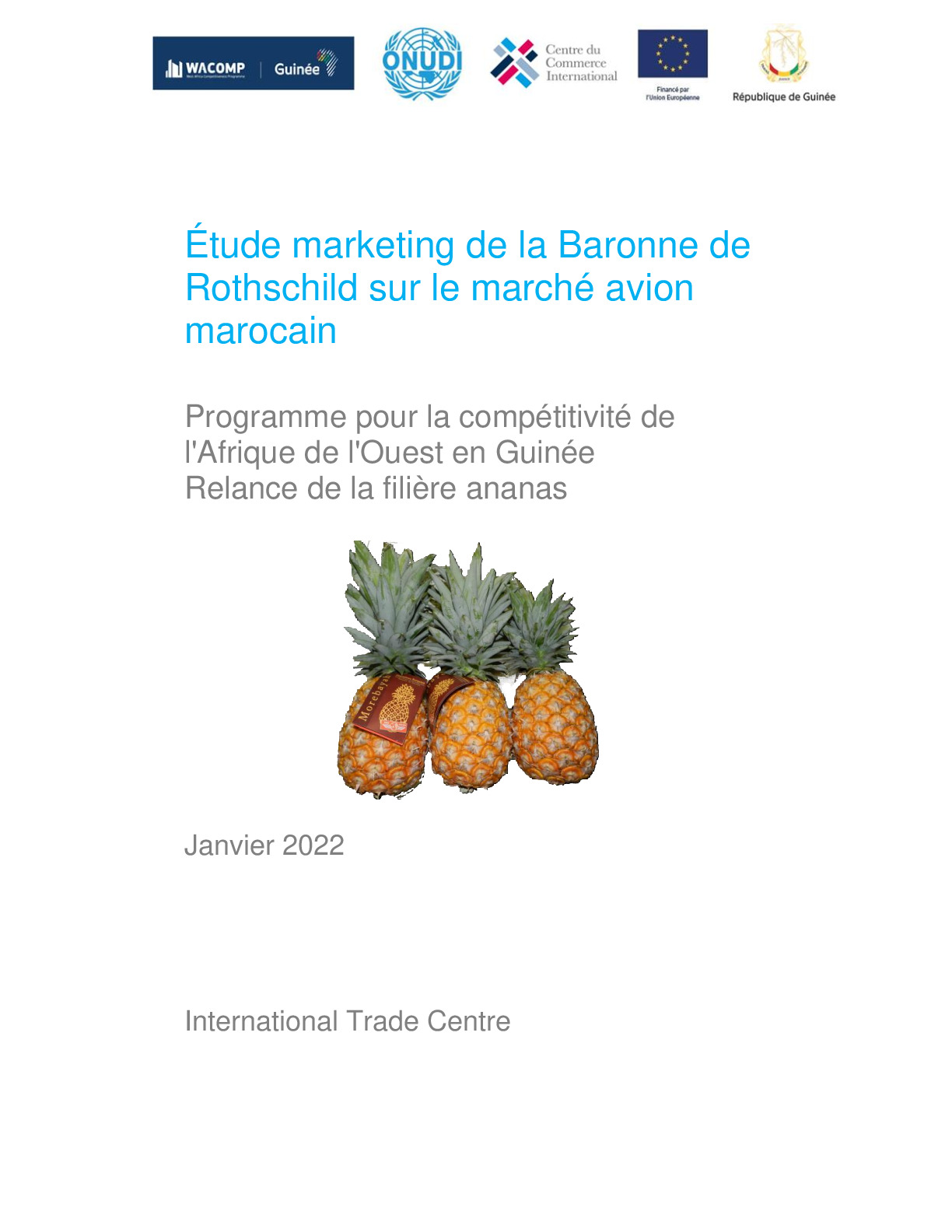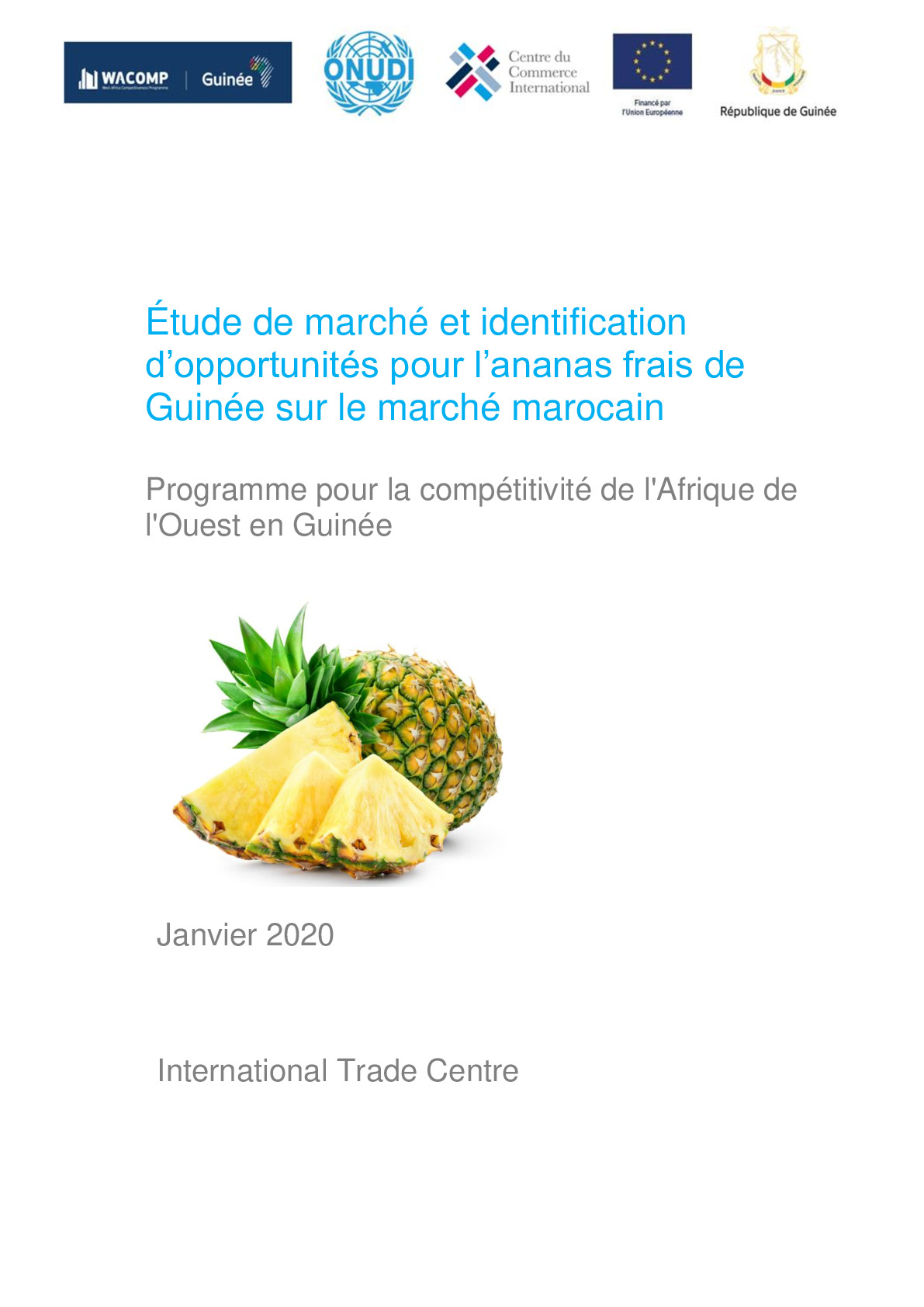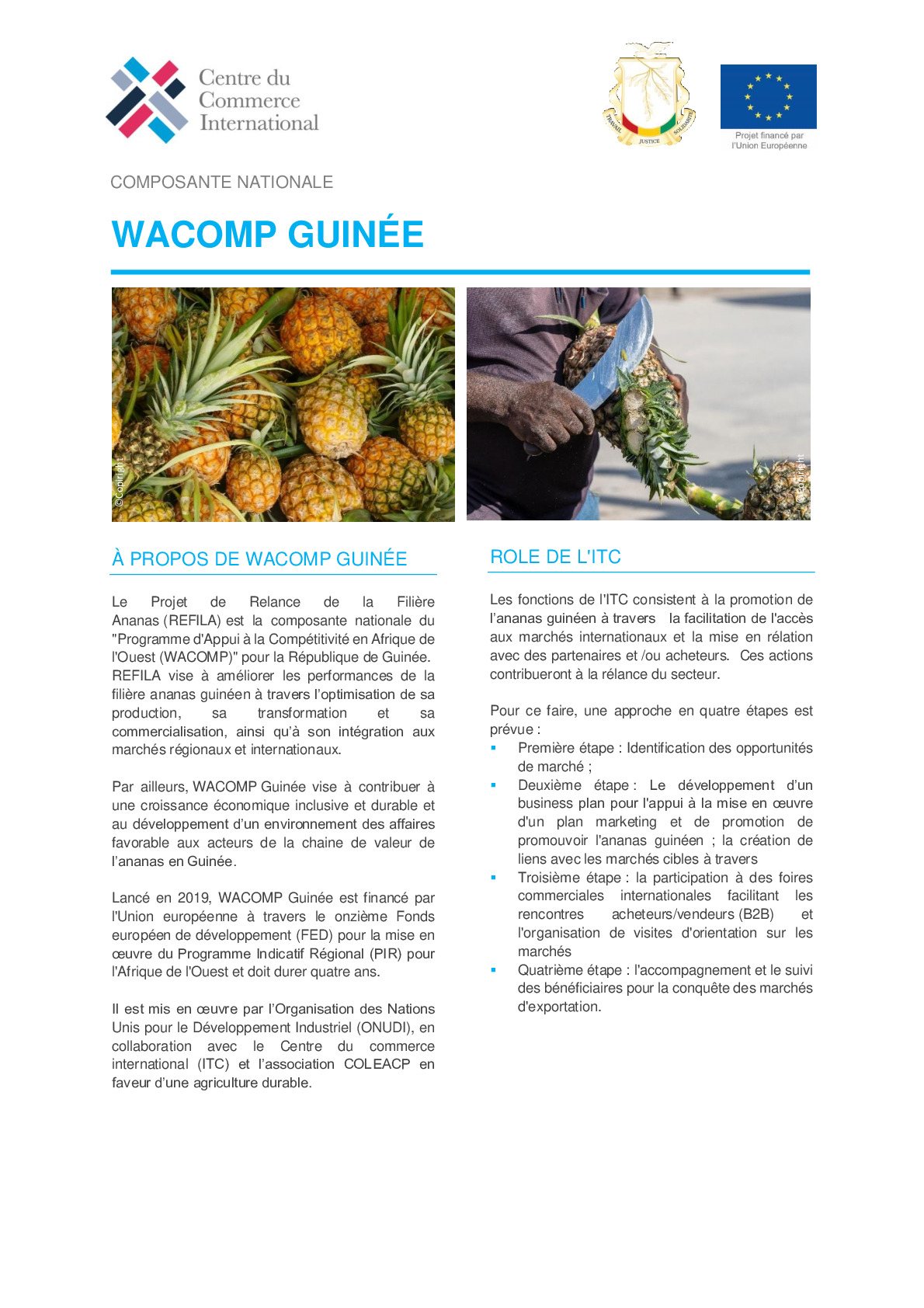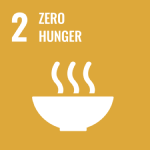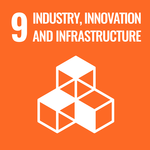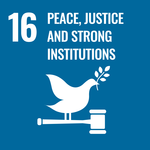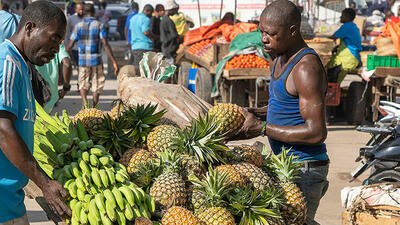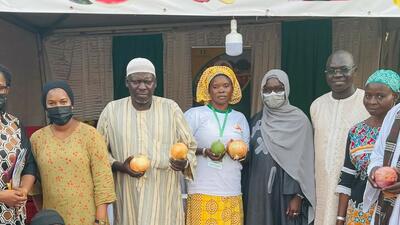ECOWAS: Strengthening agri-food trade in the region through institutional coordination and business support
Video
Agricultural trade challenges in West Africa
Malnutrition, rapid population growth, and heavy reliance on food imports are some of the key challenges facing the Economic Community of West African States (ECOWAS). Addressing these issues would foster economic development across the region. These factors also emphasize the urgent need to address food security and the effects of global geopolitical pressure on food prices.
Enhancing coordination on food trade policies within the region is paramount to tackling food security issues and mitigating the volatility of food prices. For this purpose, the ECOWAS Commission has developed various instruments, such as the ECOWAS Trade Liberalization Scheme (ETLS) and the ECOWAS Agricultural Policy (ECOWAP), aimed at boosting intra-regional agricultural trade volumes and coordination efforts.
However, recorded data on intra-regional agricultural trade volumes remains low. Customs points have Inadequate infrastructure and resources. Regional and national legislation need to be harmonized. Opaque administrative procedures lead to delays and unexpected costs. And businesses have limited information on market opportunities.
To address these issues, which are often at the origin of informal trade practices, the EAT programme aims to foster an environment conducive to intra-regional agricultural trade. It seeks to improve the capacity of policymakers to make informed decisions on trade and food security matters, strengthen regulatory frameworks, and streamline administrative procedures at the border to ensure the safety and quality of traded goods. Additionally, it aims to equip agri-food businesses with the tools and knowledge needed to better trade within the region, with a specific focus on gender and youth inclusion.
How we work
Within the framework of the EAT programme, ITC implements a multi-level and multi-stakeholder strategy, closely collaborating with the ECOWAS Commission, Member States, civil society, the private sector, and various trade entities. This holistic approach addresses the political, economic, gender, climate, food, and nutrition security aspects of regional agricultural trade.
ITC’s commitment under the EAT programme reflects its broader objectives. Those include bolstering regional institutions in Africa, promoting gender-sensitive and sustainable agricultural trade and enhancing local trade promotion services for the private sector to ensure the sustainability of the action.
ITC will provide advice and assistance to reinforce the ECOWAS Commission's capacity in coordinating agricultural trade policies, by facilitating public-private dialogues, introducing trade intelligence and monitoring tools, as well as advocating for cooperative trade facilitation approaches.
Regional organizations and national authorities will undergo tailored capacity-building programmes to improve their services to businesses and to ensure the application of agricultural trade measures at the border, with particular attention to testing their efficacy. The whole action is ultimately tailored to benefit small businesses and small agricultural traders, by upscaling their skills and providing them with a more conducive ecosystem for trading within the region.
Programme outputs
Trade Policy Harmonization: Advising the ECOWAS Commission and Member States on the coordination and harmonization of policies and initiatives to improve the region’s agricultural trade ecosystem.
Trade Facilitation: Supporting the implementation of gender-sensitive and sustainable trade facilitation measures and services at the border to unleash the potential of intra-regional agricultural trade and increase incentives to conduct formal trade operations.
Private Sector Promotion: Equipping small businesses and small agricultural traders, in collaboration with local business support organizations, with the knowledge and skills needed to tap into the opportunities offered by the regional agricultural market.
Target countries and sectors
Aside from regional policy interventions, the EAT programme focuses on field activities in Benin, Burkina Faso, Côte d'Ivoire, Ghana, Niger and Nigeria to establish a methodology that can later be applied throughout the entire region.
Product sectors targeted by the initiative were identified keeping in mind their importance as staple food, the risk of value loss due to their perishability, as well as the comparative advantages offered by the region. These include cassava, corn, fertilizer, onion, pineapple, processed meat, rice and tomato.
Main partners and beneficiaries
The programme is implemented under the guidance of the ECOWAS Commission, involving directorates overseeing agriculture and rural development, trade, customs, free movement of people, and the Gender Development Center. ITC is an implementing partner, alongside GIZ and the OECD Sahel and West Africa Club (SWAC). Additional partners encompass regional and national trade associations, chambers of commerce and agriculture, pertinent national ministries and authorities, civil society organizations, and private sector stakeholders. Directly benefiting small businesses, cooperatives, and associations of small-scale cross-border traders operating in the agri-food sector.
<p>The ECOWAS Agricultural Trade (EAT) programme, funded by the Federal Ministry of Economic Cooperation and Development (BMZ), "One World – No Hunger" special initiative, is a crucial component of the German-ECOWAS cooperation and implemented by The Deutsche Gesellschaft für Internationale Zusammenarbeit GmbH (GIZ) and The International Trade Centre (ITC). This initiative is designed to tackle regional policy coordination, economic integration and food security, focusing on enhancing intra-ECOWAS agro-food-trade.</p><p><br></p>





